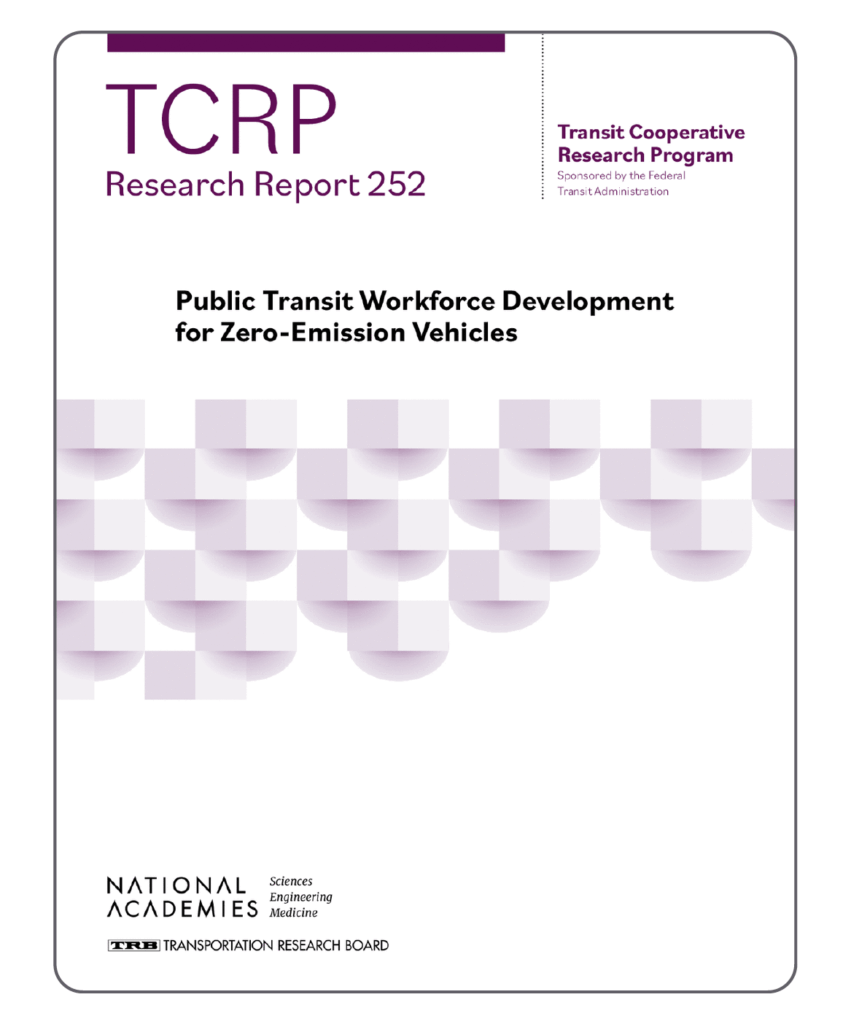
Public Transit Workforce Development for Zero-Emission Vehicles
This TCRP report focuses on vehicle maintenance of battery-electric and fuel-cell transit buses, including case studies from transit as well as lessons from the automotive and school transportation industries. Recommendations include assessing workforce skills through skills-gap analysis, building a systematic process for building skills (including through frontline worker engagement and the creation of formalized training programs, e.g., registered apprenticeship), and working proactively on recruitment and retention.
Transit Cooperative Research Program
December 2025
TOPICS: Low-No , Policy and Planning , Procurement , Safety and Health , Training
Contributor(s): National Academies of Sciences, Engineering, and Medicine; Transportation Research Board; Transit Cooperative Research Program; International Transportation Learning Center, John Schiavone, Karitsa Holdzkom, Douglas Nevins, Michaela Boneva; Planning Communities, Ann Steedly, Brandy Hutson, James Farrell
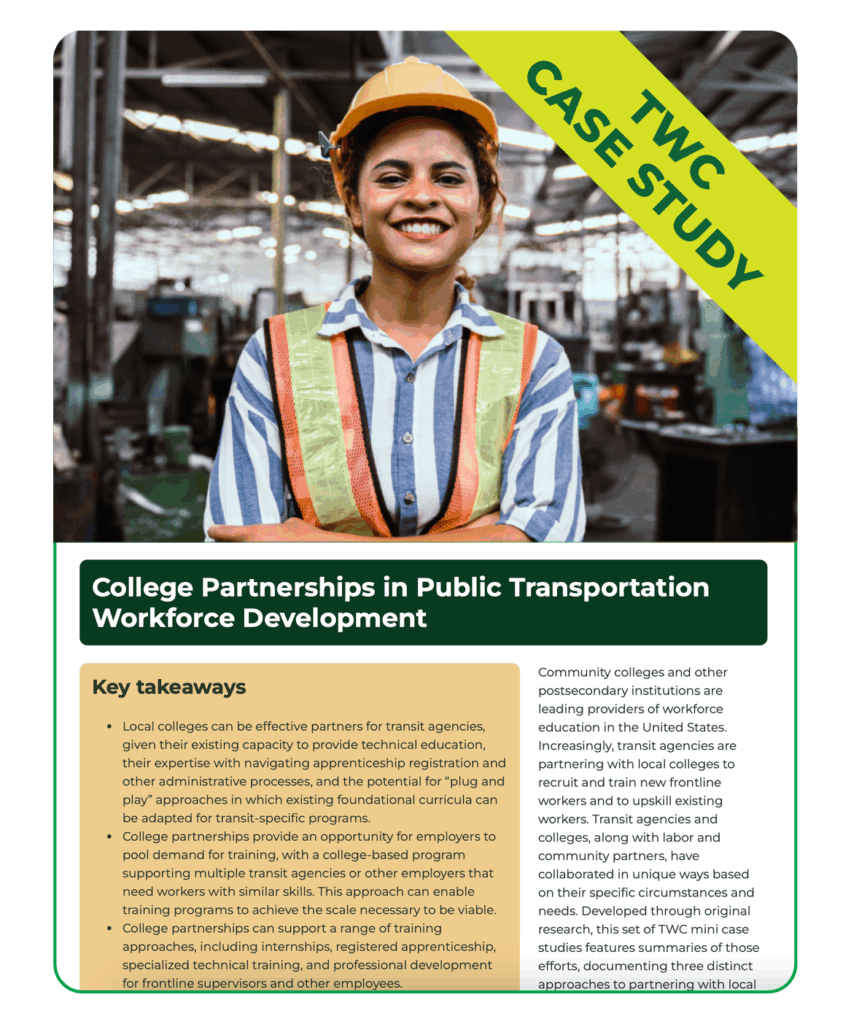
College Partnerships in Public Transportation Workforce Development
Community colleges and other postsecondary institutions are leading providers of workforce education in the United States. Increasingly, transit agencies are partnering with local colleges to recruit and train new frontline workers and to upskill existing workers. Transit agencies and colleges, along with labor and community partners, have collaborated in unique ways based on their specific circumstances and needs. Developed through original research, this set of TWC mini case studies features summaries of those efforts, documenting three distinct approaches to partnering with local colleges.
Transit Workforce Center
September 2025
TOPICS: Apprenticeship , Career Pathways , Community Engagement , Hiring and Recruitment , Training
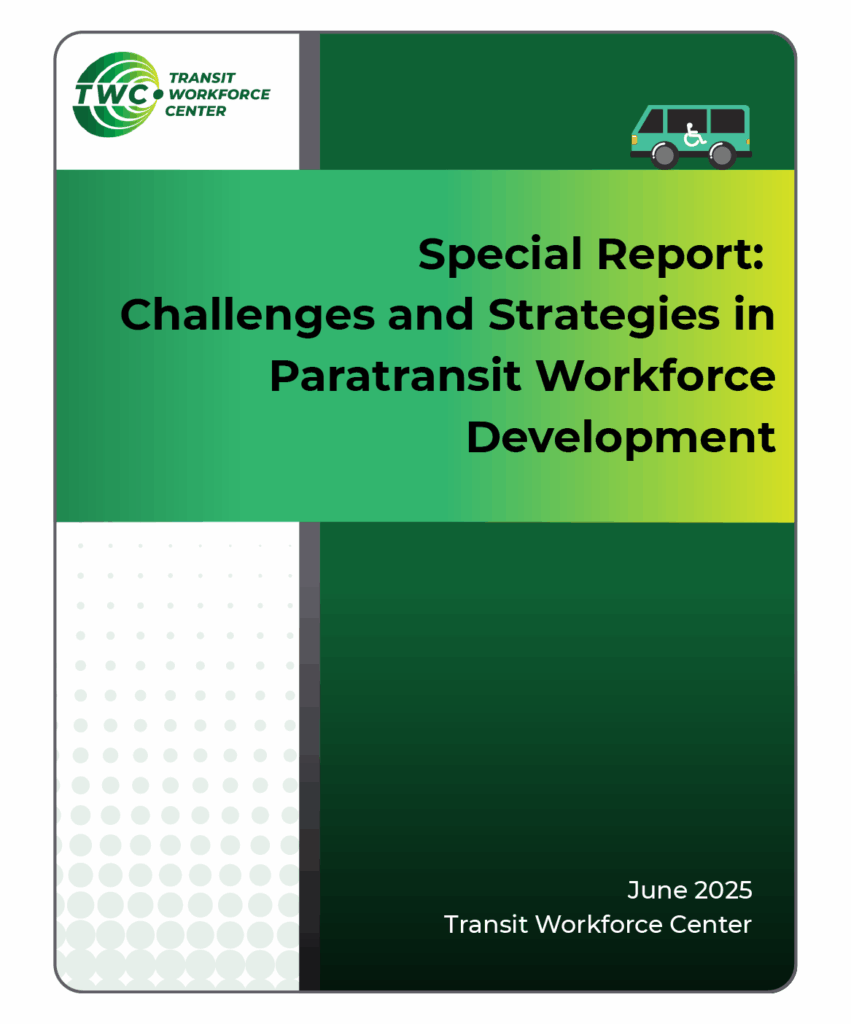
Special Report: Challenges and Strategies in Paratransit Workforce Development
Transit Workforce Center
June 2025
TOPICS: Hiring and Recruitment , Policy and Planning , Retention , Training , Workforce Shortage
Since the passage of the Americans with Disabilities Act (ADA) in 1990, paratransit has been a staple component of public transportation systems across the United States. ADA complementary paratransit provides transportation to people who, because of a disability, cannot use fixed-route service independently. Despite the importance of this mode in the overall health of urban transportation infrastructure, very little research has focused on the development of the paratransit workforce since a seminal 2010 study on paratransit operator recruitment and retention. This report aims to provide a brief update to the 2010 study, focusing not just on operators but on the entire paratransit workforce, including a range of frontline roles. To learn more about the unique workforce challenges of this modal context, as well as what successful strategies paratransit providers have used to combat those challenges, the Transit Workforce Center (TWC) research team conducted interviews involving 22 individuals across 13 paratransit systems in nine states. This report documents our learning from those interviews.
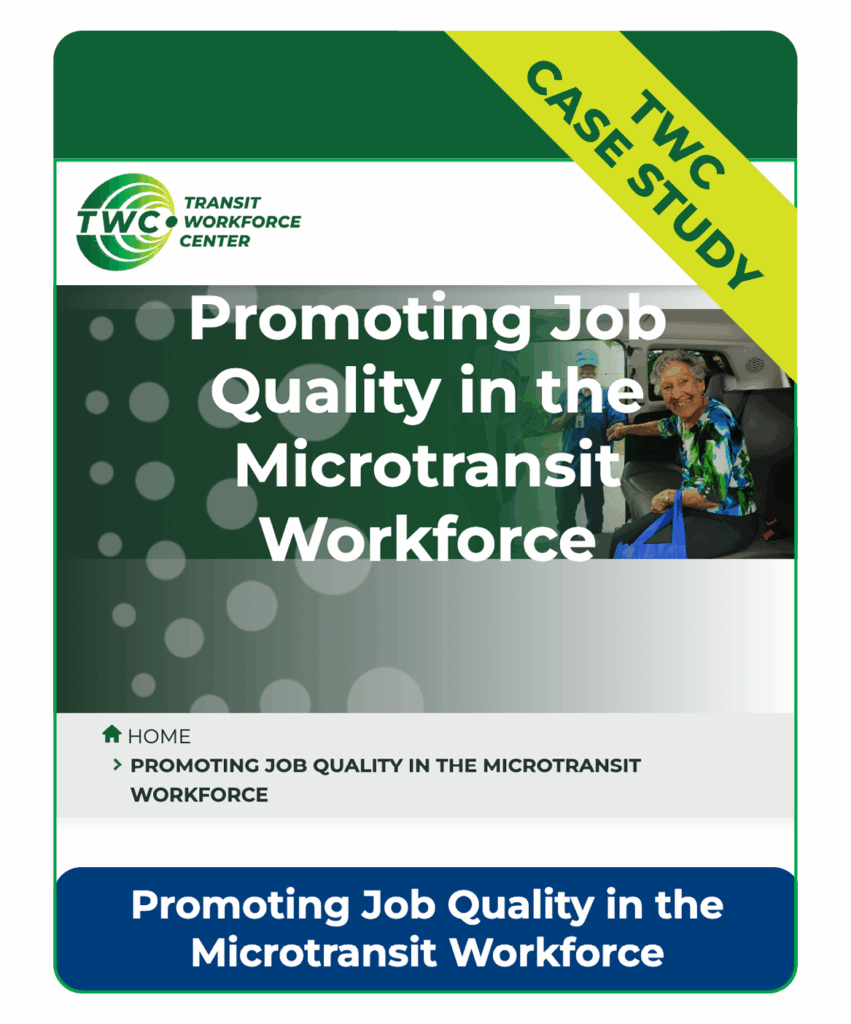
Case Study: Promoting Job Quality in the Microtransit Workforce
Microtransit, a relatively new form of demand response public transportation, is on the rise. TWC’s new set of microtransit case studies provides various perspectives on microtransit that include examples of how it has successfully been provided in-house and with a union-represented workforce. The case studies share experiences from four transit locations that are implementing microtransit service in ways that promote job quality for operators, technicians, and others, while also providing greater control over the quality of the service.
Transit Workforce Center
May 2025
TOPICS: Career Pathways , Hiring and Recruitment , Policy and Planning , Retention , Training
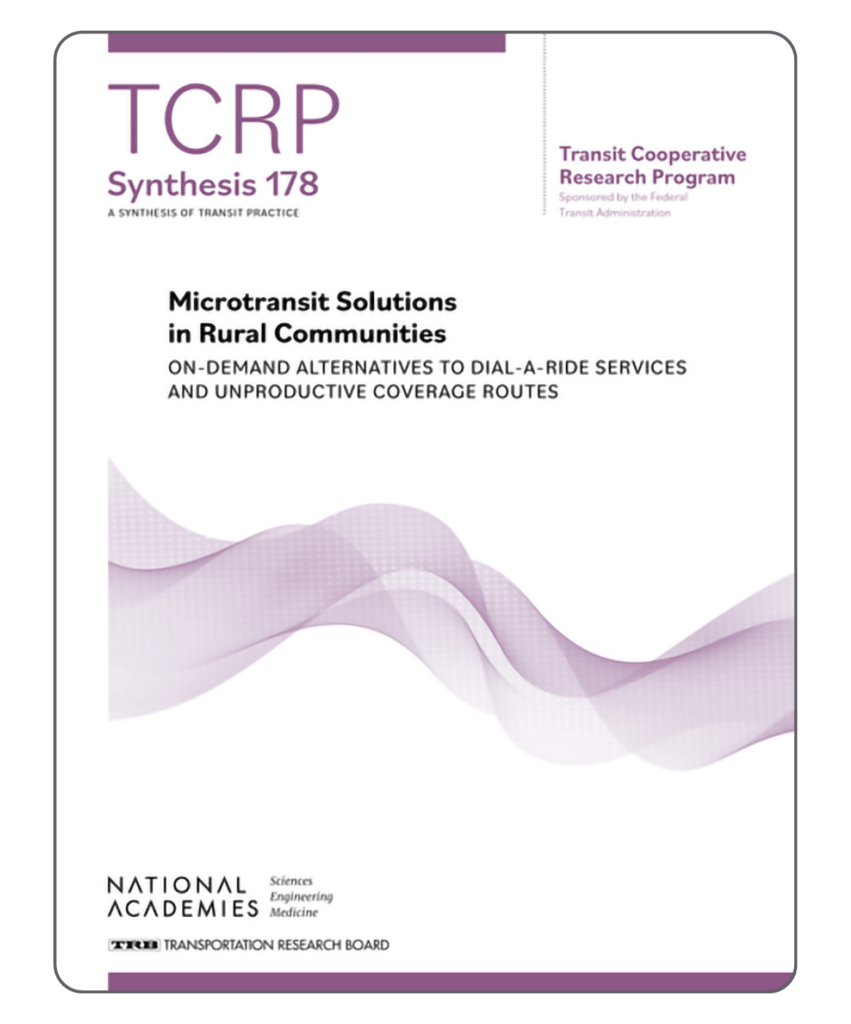
Microtransit Solutions in Rural Communities
TCRP Synthesis 178: Microtransit Solutions in Rural Communities: On-Demand Alternatives to Dial-a-Ride Services and Unproductive Coverage Routes provides a comprehensive overview of rural microtransit operations through a literature review, surveys of 19 transit providers, and case examples of seven agencies.
Transit Cooperative Research Program
May 2025
TOPICS: Policy and Planning
Contributor(s): National Academies of Sciences, Engineering, and Medicine; Transportation Research Board; Transit Cooperative Research Program; Alanna McKeeman; Jessica Klion; Laura Duke
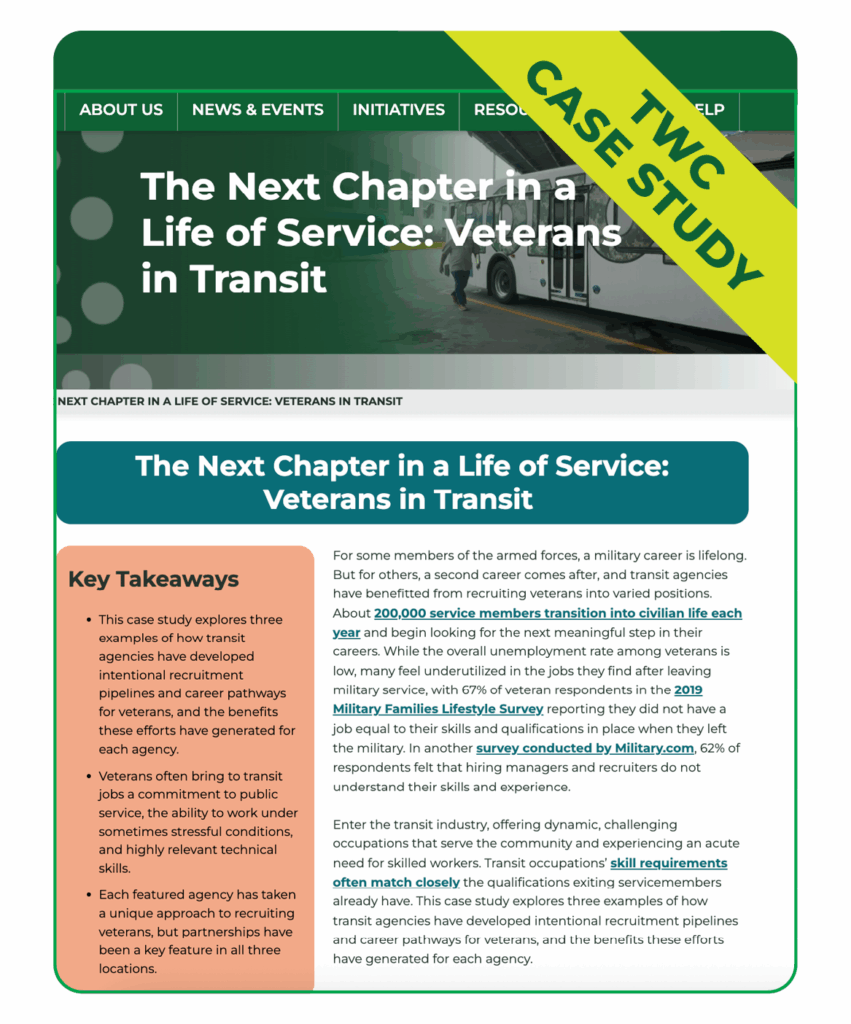
Case Study—The Next Chapter in a Life of Service: Veterans in Transit
For some members of the armed forces, a military career is lifelong. But for others, a second career comes after, and transit agencies have benefitted from recruiting veterans into varied positions. About 200,000 service members transition into civilian life each year and begin looking for the next meaningful step in their careers.
The transit industry offers dynamic, challenging occupations that serve the community and is experiencing an acute need for skilled workers. Transit occupations’ skill requirements often match closely the qualifications exiting servicemembers already have. This case study explores three examples of how transit agencies have developed intentional recruitment pipelines and career pathways for veterans, and the benefits these efforts have generated for each agency.
Transit Workforce Center
March 2025
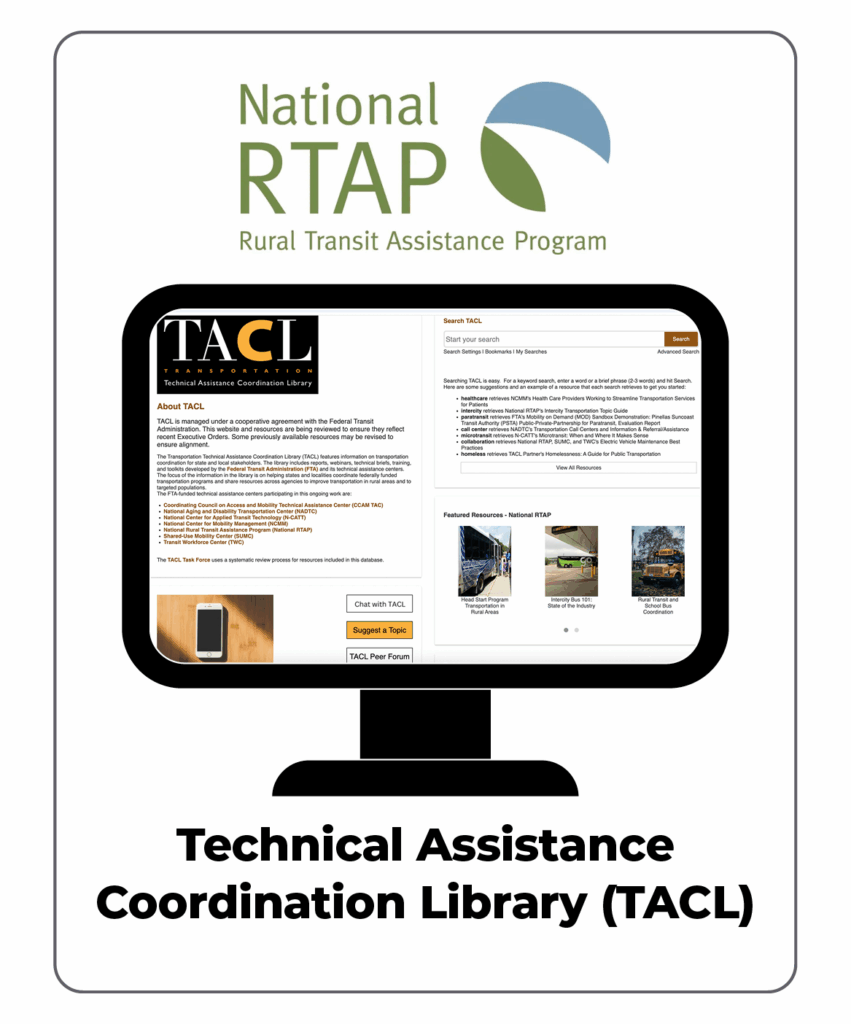
Technical Assistance Coordination Library (TACL)
National Rural Transit Assistance Program
TOPICS: Apprenticeship , Career Pathways , Community Engagement , Hiring and Recruitment , Labor-Management Partnerships , Low-No , Mentorship , Policy and Planning , Procurement , Program Evaluation and ROI , Retention , Safety and Health , Trainer and Mentor Development , Training , Workforce Shortage
Transportation Technical Assistance Coordination Library (TACL)
The Transportation Technical Assistance Coordination Library (TACL) provides a viable methodology and platform for access and findability of rural and tribal transit coordination resources across a broad range of transportation technical assistance centers and the Federal Transit Administration (FTA).
The FTA-funded Technical Assistance (TA) Centers participating in this ongoing work are:
- National Aging and Disability Transportation Center (NADTC)
- National Center for Applied Transit Technology (N-CATT)
- National Center for Mobility Management (NCMM)
- National Rural Transit Assistance Program (National RTAP)
- Shared Use Mobility Center (SUMC)
- Transit Workforce Center (TWC)
The TACL Task Force uses a systematic review process for resources included in the database. New resources will be added on a quarterly basis. Let us know if you would like to serve as a peer reviewer for our resources.
Why was TACL created?
The United States Government Accountability Office (GAO) published Public Transportation: Enhanced Federal Information Sharing on Coordination Could Improve Rural Transit Services in January 2020. GAO recommended that FTA “develop a communication plan that will effectively share information with state and local stakeholders on coordination opportunities in an accessible and informative way.” This effort was created to improve interagency resource coordination between FTA and its five TA Centers.
How can TACL be used?
TACL resources can be used to identify high quality technical assistance on transportation coordination. The resources can be used for research, training, practice, operations, planning, and other purposes. We encourage authors to cite TACL resources.
Ready to get started?
Visit http://transportation-tacl.org. Click on the Training tab at the top for instructions.
If you have a question about TACL, or if you would like to be considered to become a TACL peer reviewer, please contact info@nationalrtap.org
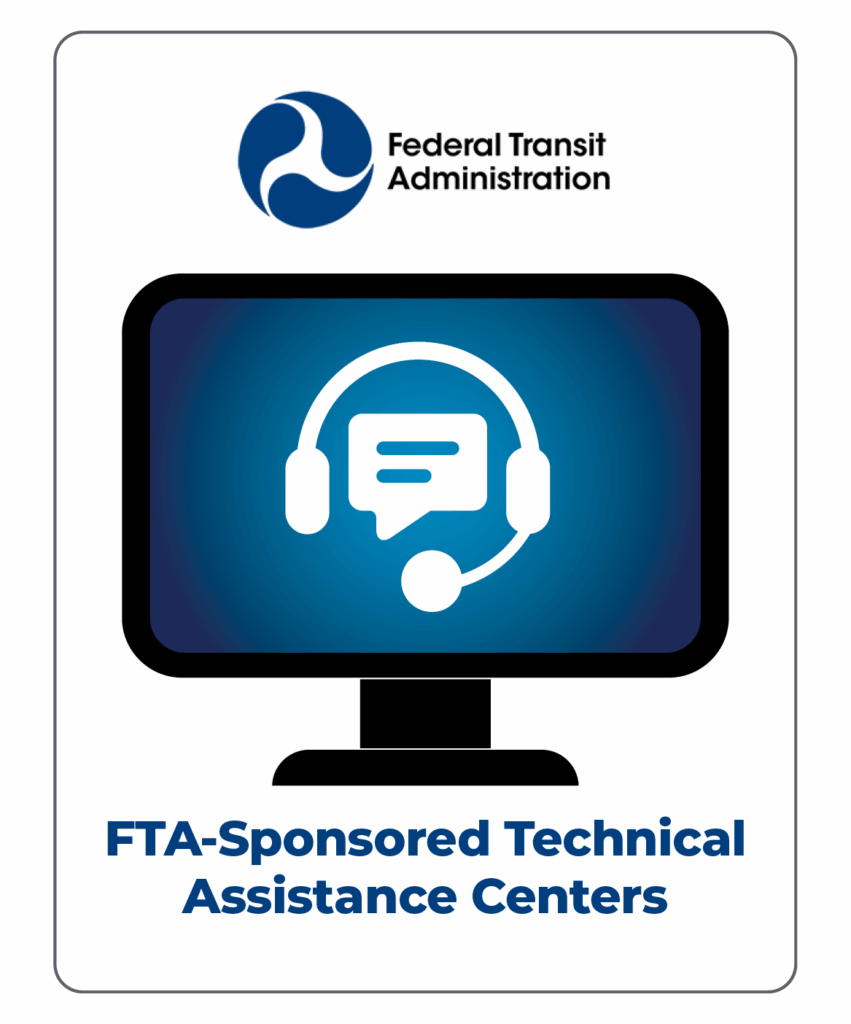
FTA-Sponsored Technical Assistance Centers
Federal Transit Administration
TOPICS: Apprenticeship , Career Pathways , Community Engagement , Hiring and Recruitment , Labor-Management Partnerships , Low-No , Mentorship , Policy and Planning , Procurement , Program Evaluation and ROI , Retention , Safety and Health , Trainer and Mentor Development , Training , Workforce Shortage
FTA’s Technical Assistance and Workforce Development Program (49 U.S.C. § 5314) and the Public Transportation Innovation Program (49 U.S.C. § 5312) fund technical assistance centers through national nonprofit organizations across a number of areas to improve public transportation. These nonprofit partners and the work they do play a critical role in supporting public transit agencies. Their services help to:
- Improve transportation for older adults and people with disabilities
- Drive the adoption of mobility management and related promising practices
- Accelerate innovative mobility practices and strategies
- Support rural communities
- Leverage new transit technologies
- Train the public transit workforce
- Provide workforce development technical assistance
- Support research projects chosen by the transit industry that address day to day issues
- Support the transit industry meet safety regulations
National Center for Applied Transit Technology (N-CATT)
The National Center for Applied Transit Technology (N-CATT) delivers expert, focused technical assistance to transit agencies and organizations in rural areas and small cities to use or develop transit technologies and innovations that make services more cost-effective and efficient. N-CATT’s work supports FTA’s mission and focus on innovation by developing and supporting transit programs and services in rural and small-city America.
National Aging and Disability Transportation Center (NADTC)
The National Aging and Disability Transportation Center (NADTC) is a national technical assistance center funded by FTA with guidance from the U.S. Department of Health and Human Services’ Administration for Community Living to promote the availability of transportation options that serve the needs of people with disabilities, seniors and caregivers with a focus on the Section 5310 program and other transit investments. NADTC supports the delivery of more effective, efficient, high-quality and coordinated specialized transportation services that maximize federal investments. NADTC provides technical assistance, information and referral; develops field training; implements interactive communication and outreach strategies; and supports communities in assessing their needs and developing innovative transportation solutions.
National Rural Transit Assistance Program (National RTAP)
The National Rural Transportation Assistance Program (RTAP) was established by FTA in 1987 to provide a wide range of professional services and products. National RTAP addresses the training and technical assistance needs of rural and tribal transit programs across the nation and supports state RTAP programs. National RTAP provides comprehensive free technical assistance programs and resources including training materials, webinars, newsletters and technical briefs, peer resources, research, and innovative technology initiatives. The National RTAP also manages the Transportation Technical Assistance Coordination Library (TACL), which provides a sustainable methodology and platform to access resources across a diverse range of transportation technical assistance centers and FTA.
Shared-Use Mobility Center (SUMC)
The Shared-Use Mobility Center is a public-interest organization dedicated to achieving equitable, affordable, and environmentally sound mobility across the US through the efficient sharing of transportation assets. By connecting the public and private sectors, piloting programs, conducting new research, and providing policy and technical expertise to cities and regions, SUMC seeks to extend the benefits of shared mobility for all. The Shared Mobility 2030 Action agenda includes improving access to public transit, on-demand shuttles or buses, ride-on-demand services, carpooling and vanpooling, and carsharing, bikesharing and scooter-sharing.
Coordinating Council on Access and Mobility (CCAM)
The strategic goal of CCAM, operated but the Community Transportation Association of America, is to support federal agencies, their grantees, partners, and stakeholders in improving transportation access for people with disabilities, older adults, and individuals of low income. CCAM promotes and facilitates human services transportation, public transit, and non-emergency medical transportation (NEMT) coordination that advances people’s access to everyday destinations.
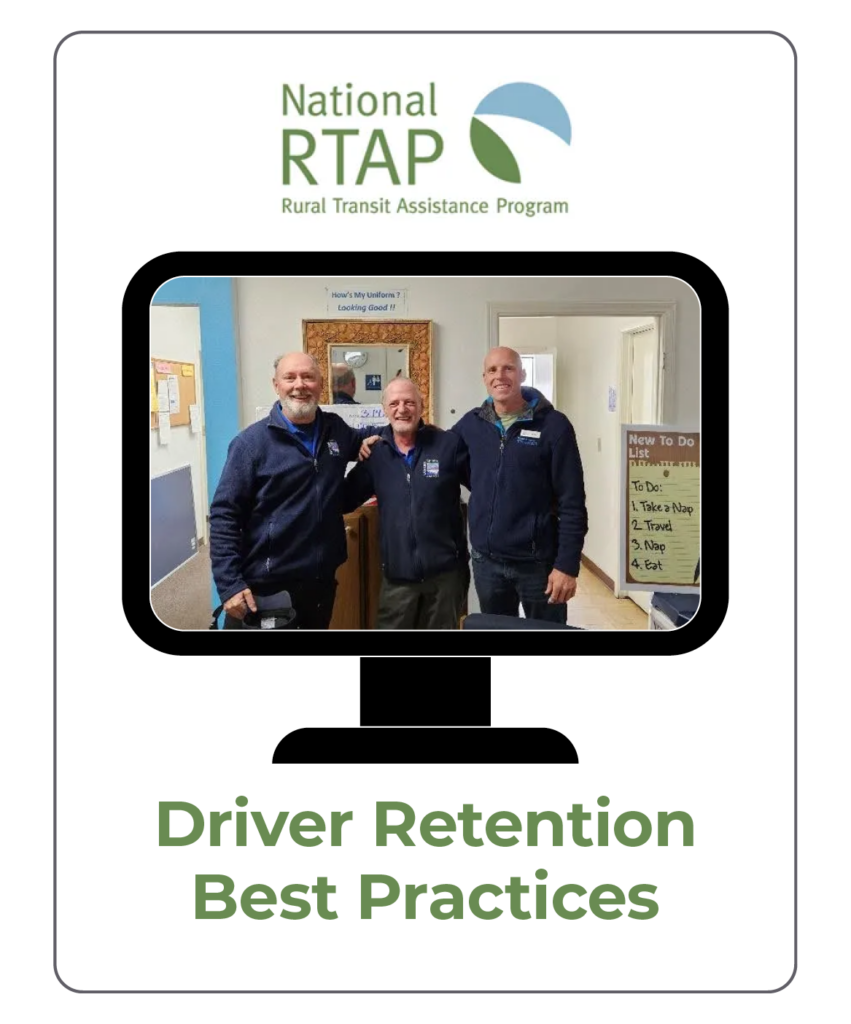
Driver Retention Best Practices
National RTAP
December 2024
TOPICS: Hiring and Recruitment , Retention , Workforce Shortage
It is increasingly difficult to recruit and retain rural and tribal transit drivers. This National RTAP Best Practices Spotlight Article provides practical and easy-to-implement strategies from transit leaders that agencies can use to create a workplace that drivers will want to remain in and thrive in. This article includes advice from Eastern Sierra Transit Authority (ESTA), Redding Area Bus Authority (RABA), Heart of Iowa Regional Transit Agency (HIRTA), and Big Woods Transit (BWT).
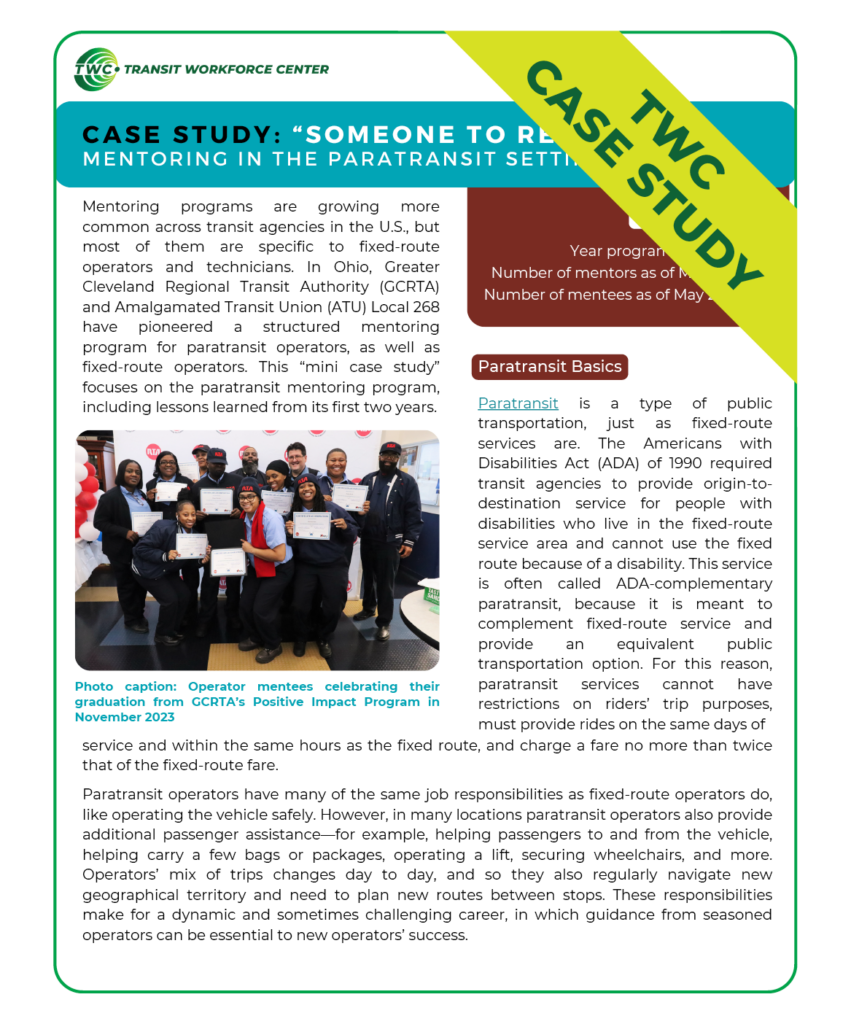
Case Study: Mentoring in the Paratransit Setting
Transit Workforce Center
September 2024
TOPICS: Community Engagement , Mentorship , Trainer and Mentor Development , Training
“Someone to Rely On”
Mentoring programs are growing more common across transit agencies in the U.S., but most of them are specific to fixed-route operators and technicians. In Ohio, Greater Cleveland Regional Transit Authority (GCRTA) and Amalgamated Transit Union (ATU) Local 268 have pioneered a structured mentoring program for paratransit operators, as well as fixed-route operators. This “mini case study” focuses on the paratransit mentoring program, including lessons learned from its first two years.
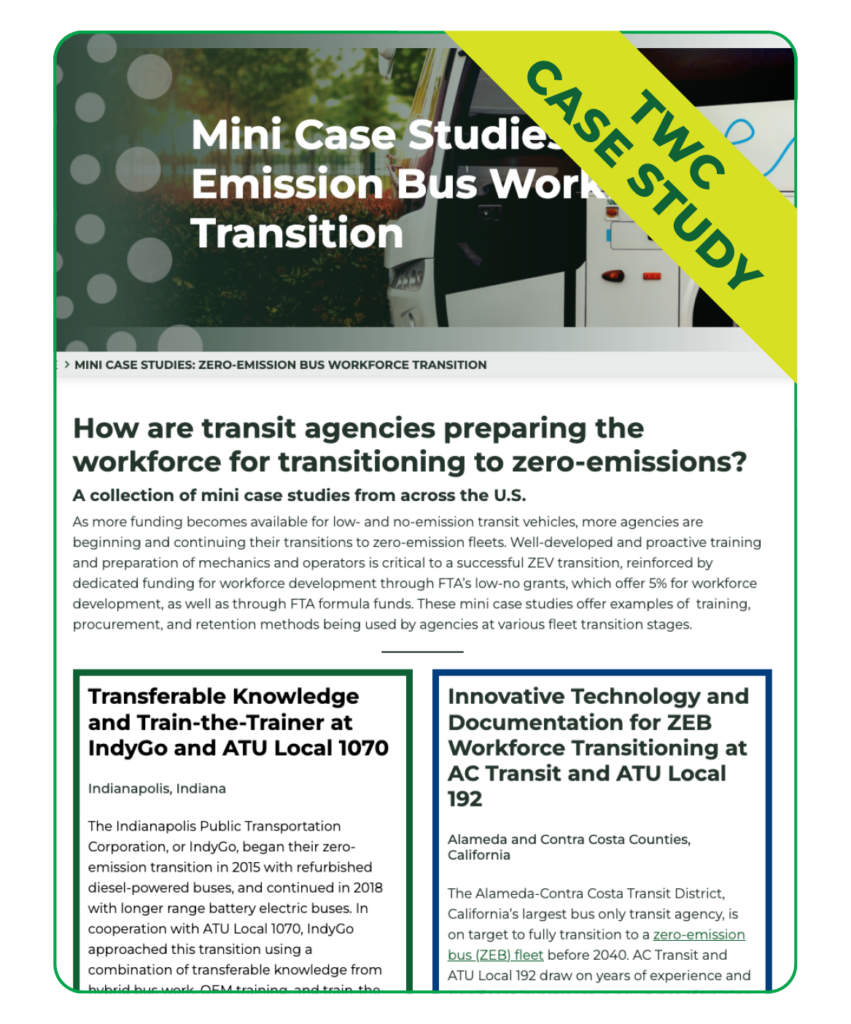
Mini Case Studies: Low-No Workforce Transition
Transit Workforce Center
August 2024
TOPICS: Apprenticeship , Low-No , Trainer and Mentor Development , Training
In the past decade, the number of hybrid, battery-electric, and hydrogen fuel cell buses has increased substantially across the U.S., particularly as transit locations have made use of FTA’s Low-No grant program. Well-developed and proactive training and preparation of technicians and operators is critical for a successful transition to new vehicle technologies; maintaining and operating newly procured vehicles effectively is necessary for fleet reliability and efficiency. Transit locations have supported training and other initiatives through FTA’s Low-No grants, which offer 5% for workforce development, as well as through formula funds. These mini case studies offer examples of training, retention, and procurement methods being used by transit agencies to support new fleet technologies.
- Foundational Skills and Technician Engagement at Champaign-Urbana Mass Transit District
- Bringing Training In-House at Mountain Line and Teamsters Local 2
- Transferable Knowledge and Train-the-Trainer at IndyGo and ATU Local 1070
- Innovative Technology and Documentation for Workforce Transitioning at AC Transit and ATU Local 192
- Training Operators Through Pre-Apprenticeship, Apprenticeship, and Mentorship at Golden Gate Transit and ATU Local 1575
- Frontline Worker Involvement in Vehicle Procurement at SporTran and ATU Local 588
- Midwest Hydrogen Center of Excellence at SARTA and AFSCME Local 1880

Steering Success: AC Transit’s Holistic Strategy for Bus Operator Shortage
A 2022 American Public Transportation Association survey of 117 transit agencies of all sizes, 71% reported that they have either had to cut service or delay service increases because of worker shortfalls. While the transportation industry as a whole grapples with recruitment and retention techniques, some transit agencies have already found measurable success. This perspective examines the causes for the bus operator shortage—including as an example of the wider industry issues—as well as potential solutions, including a comprehensive approach by Oakland-based agency AC Transit, which improved retention of new bus operators by 20 percent.
Mineta Transportation Institute
July 2024
TOPICS: Hiring and Recruitment , Retention , Workforce Shortage
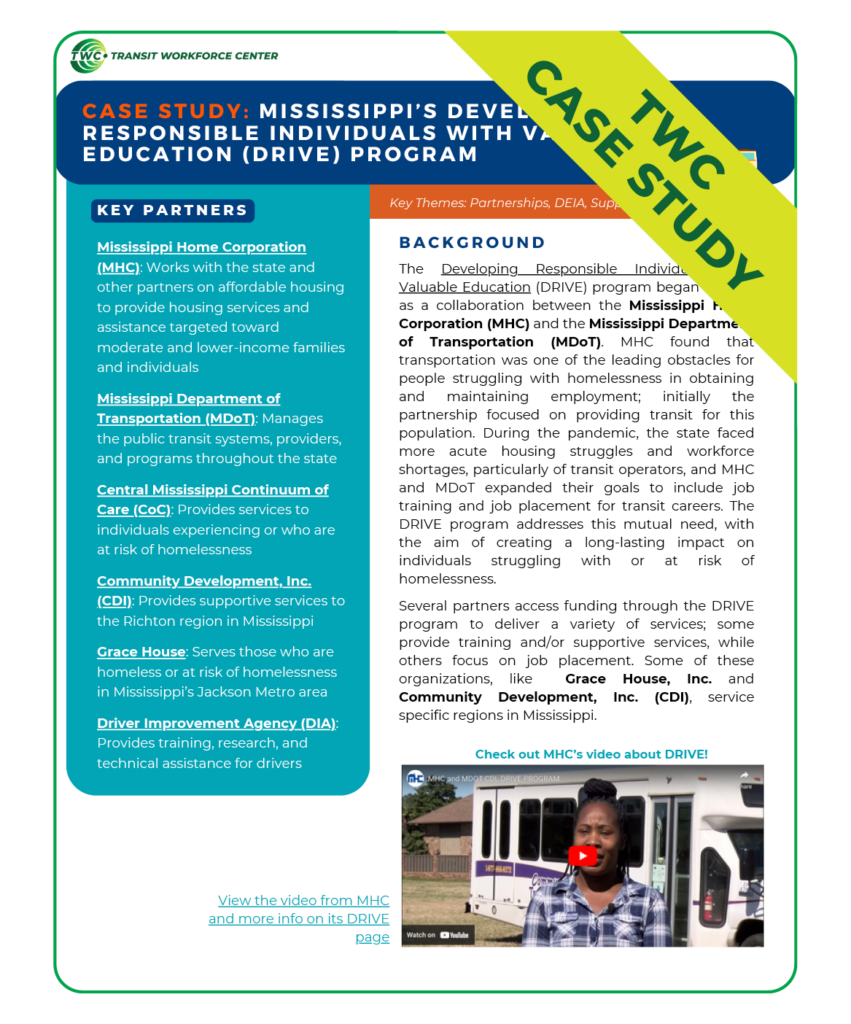
Mississippi’s Developing Responsible Individuals with Valuable Education (DRIVE) Program
This TWC case study is about the Mississippi Developing Responsible Individuals with Valuable Education (DRIVE) Program, which uses Emergency Solutions Grants (ESG) from the U.S. Department of Housing and Urban Development, distributed by the Mississippi Home Corporation (MHC), to partners such as Grace House, Inc. and Community Development, Inc. (CDI). These partners use the funding in a variety of creative ways to provide housing and other supportive services to DRIVE participants while they complete training and certification for a commercial driver’s license (CDL). Partners also provide job assistance to participants, placing them and helping them succeed in local transit jobs. Learn more about the program, services offered, and how stakeholders leverage funding in the full case study.
Transit Workforce Center
May 2024
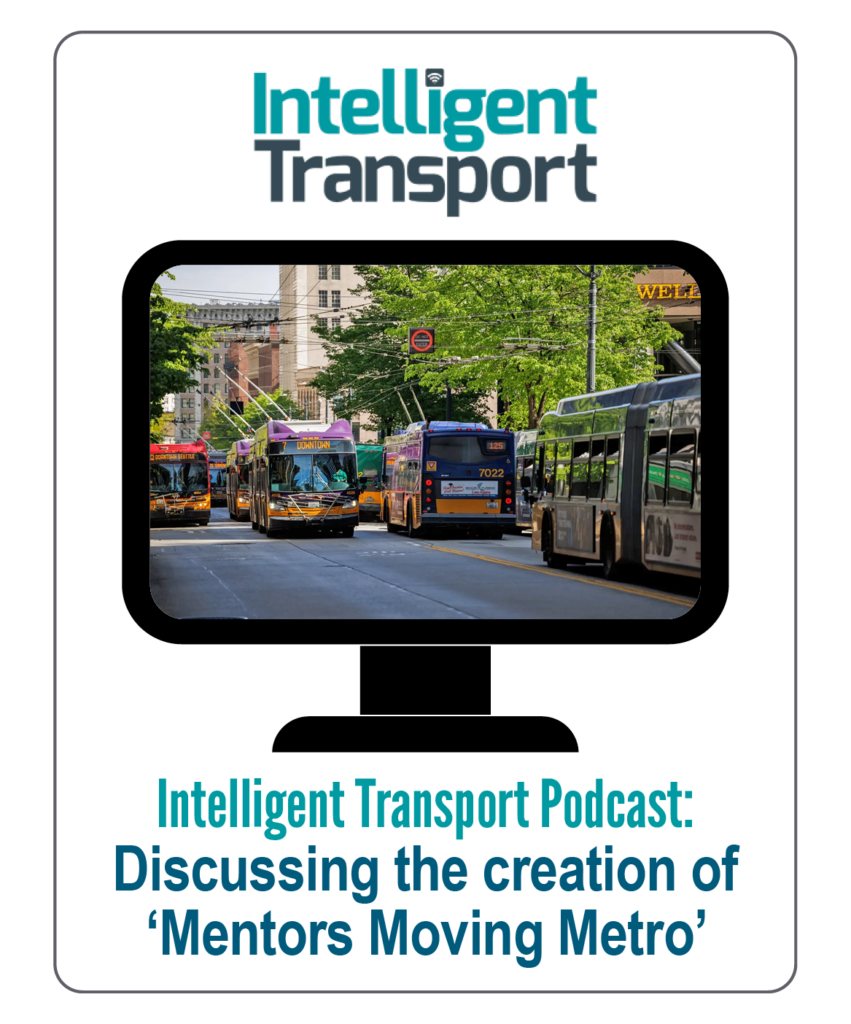
Intelligent Transport Podcast: Discussing the creation of ‘Mentors Moving Metro’
“Mentors Moving Metro” is a partnership between Metro and the Amalgamated Transit Union (ATU) Local 587 that will match experienced operators with new, part-time operators for six to 12 months. In this podcast discussion, Metro’s Director of Bus Operations, Phil DeVault, and transit operator and ATU member, Patrick Brady, talk about how “Mentors Moving Metro” is helping foster relationships and provide knowledge that can only come those who have been “in the seat.” They discussed the origins of the program, how mentors can be a morale boost for operators, and how it can foster greater interaction between operators and management. They finished the podcast by discussing their vision on developing it from a mentorship program to an apprenticeship program for drivers joining Metro in the future.
Intelligent Transport
March 2024
TOPICS: Apprenticeship , Career Pathways , Labor-Management Partnerships , Mentorship , Training
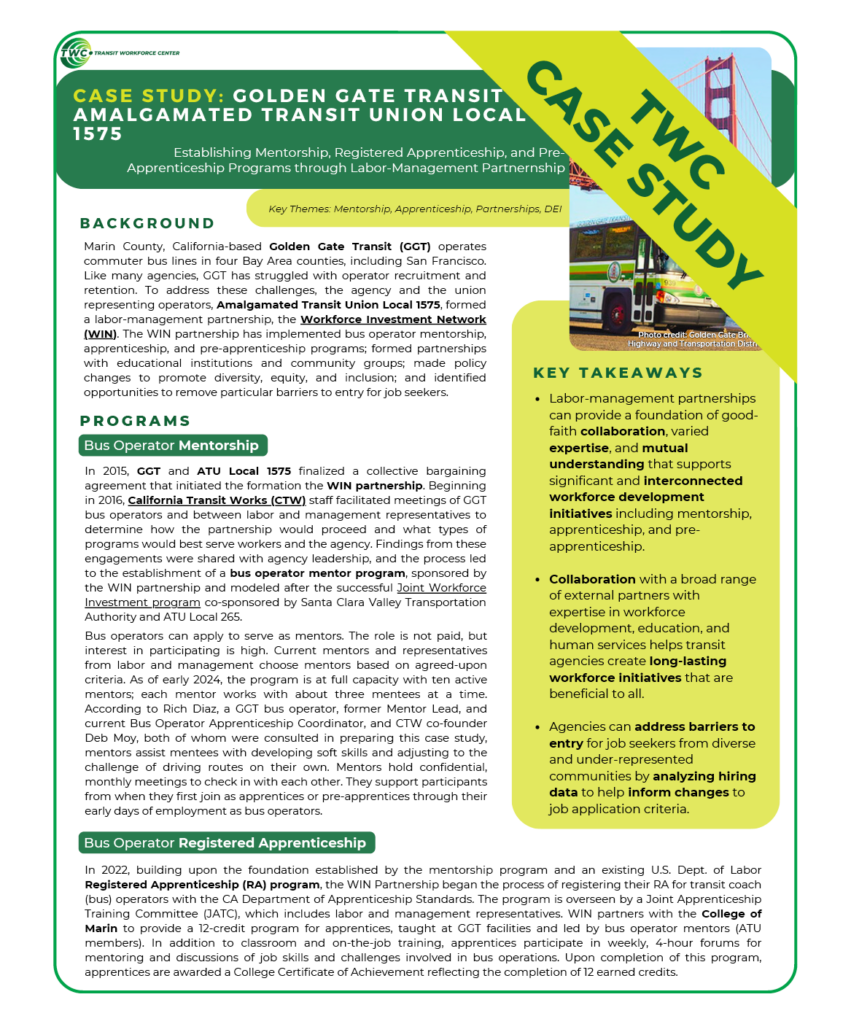
Case Study: Golden Gate Transit & Amalgamated Transit Union Local 1575
Marin County, California-based Golden Gate Transit (GGT) operates commuter bus lines in four Bay Area counties, including San Francisco. Like many agencies, GGT has struggled with operator recruitment and retention. To address these challenges, the agency and the union representing operators, Amalgamated Transit Union Local 1575, formed a labor-management partnership, the Workforce Investment Network (WIN). The WIN partnership has implemented bus operator mentorship, apprenticeship, and pre-apprenticeship programs; formed partnerships with educational institutions and community groups; and identified opportunities to remove particular barriers to entry for job seekers.
Transit Workforce Center
February 2024
Read Rich Diaz’s Transit Career Story on the TWC Blog to learn more.
View the full case study below:
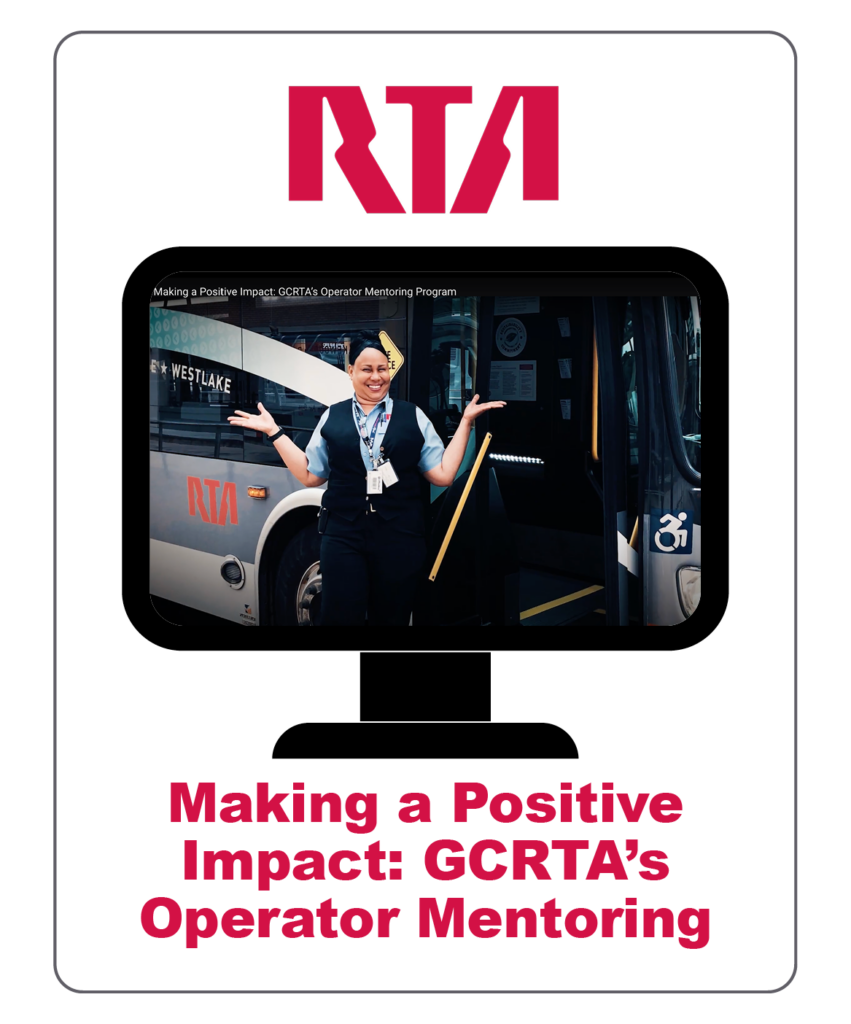
Making a Positive Impact: GCRTA and ATU Local 268’s Operator Mentoring Program
This video provides an overview of the Greater Cleveland Regional Transit Authority (GCRTA) and Amalgamated Transit Union (ATU) Local 268 operator mentoring program. Incorporating the voices of frontline workers, it explains the benefits of mentoring that GCRTA has realized and provides a window into how the program developed.
Greater Cleveland Regional Transit Authority, Amalgamated Transit Union Local 268
February 2024
TOPICS: Mentorship
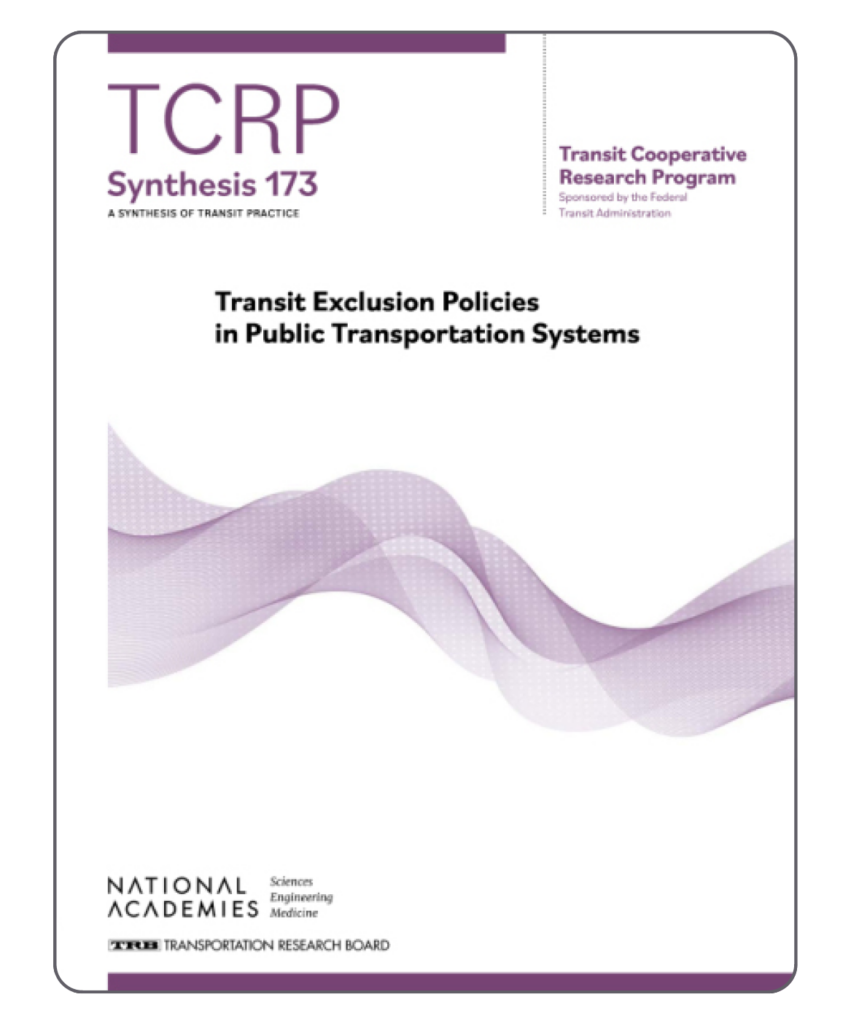
Transit Exclusion Policies in Public Transportation Systems
This report documents the practice of the use of transportation exclusion policies in North American transit systems. It is designed to help transit agencies in understanding the usefulness of such policies, as well as understanding the methods for creating, amending, or supplementing exclusion policies to maximize their effectiveness in reducing crime and disorder within their respective transit systems.
Transit Cooperative Research Program
January 2024
TOPICS: Policy and Planning , Safety and Health , Training
Contributor(s): National Academies of Sciences, Engineering, and Medicine; Transportation Research Board; Transit Cooperative Research Program; Patricia Bye; Deborah Matherly
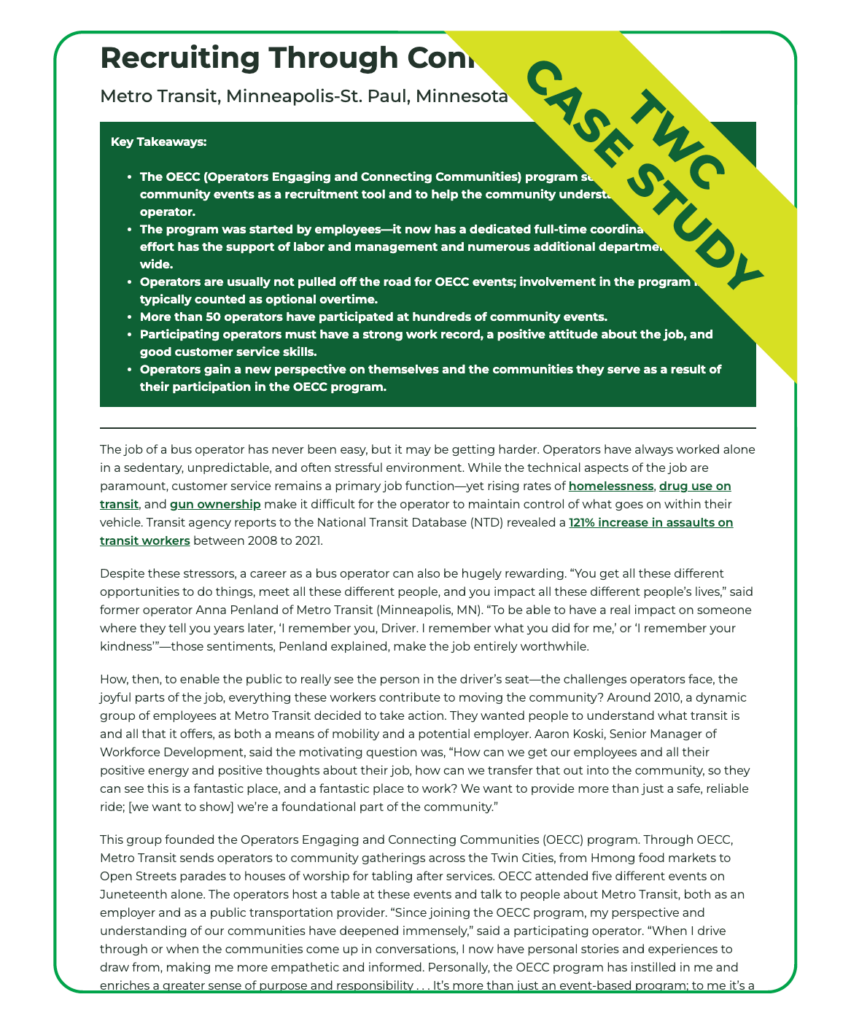
Recruiting Through Connection
This case study describes the OECC (Operators Engaging and Connecting Communities) program in Metro Transit, MN, which sends operators out to community events as a recruitment tool and to help the community understand the role of the operator.
Transit Workforce Center
November 2023
TOPICS: Hiring and Recruitment , Policy and Planning
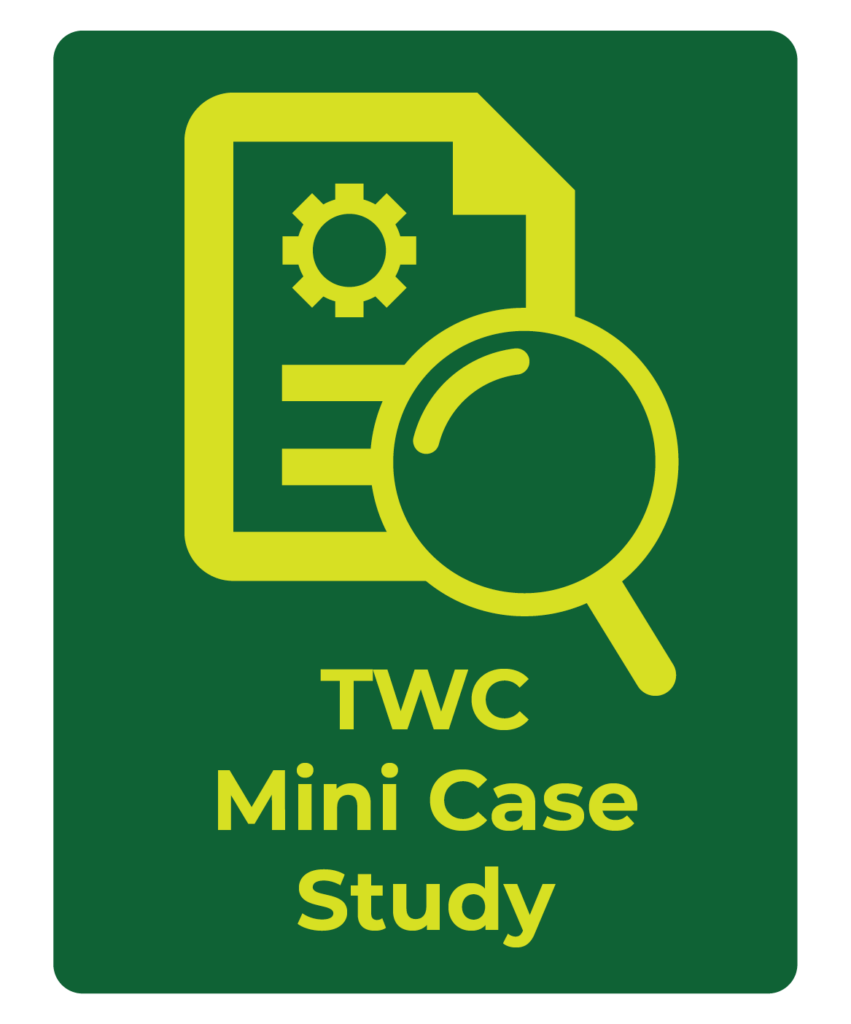
Approaches to Childcare Support in the Transit Industry: Prairie Hills Transit
Across the nation, the lack of access to affordable and accessible childcare is often a major employment barrier for workers in the transit industry. TWC hosted a pivotal discussion on this issue in the webinar, “Approaches to Childcare Support in the Transit Industry”.
Check out the presentation from Barb Cline, Executive Director of Prairie Hills Transit (Spearfish, South Dakota) who shares her approach to creating childcare solutions tailored for her transit employees. She will delve into the inception of the Prairie Hills program, their ongoing hurdles, and the successes that have marked their journey.
Transit Workforce Center
November 2023
TOPICS: Community Engagement , Policy and Planning , Retention , Workforce Shortage
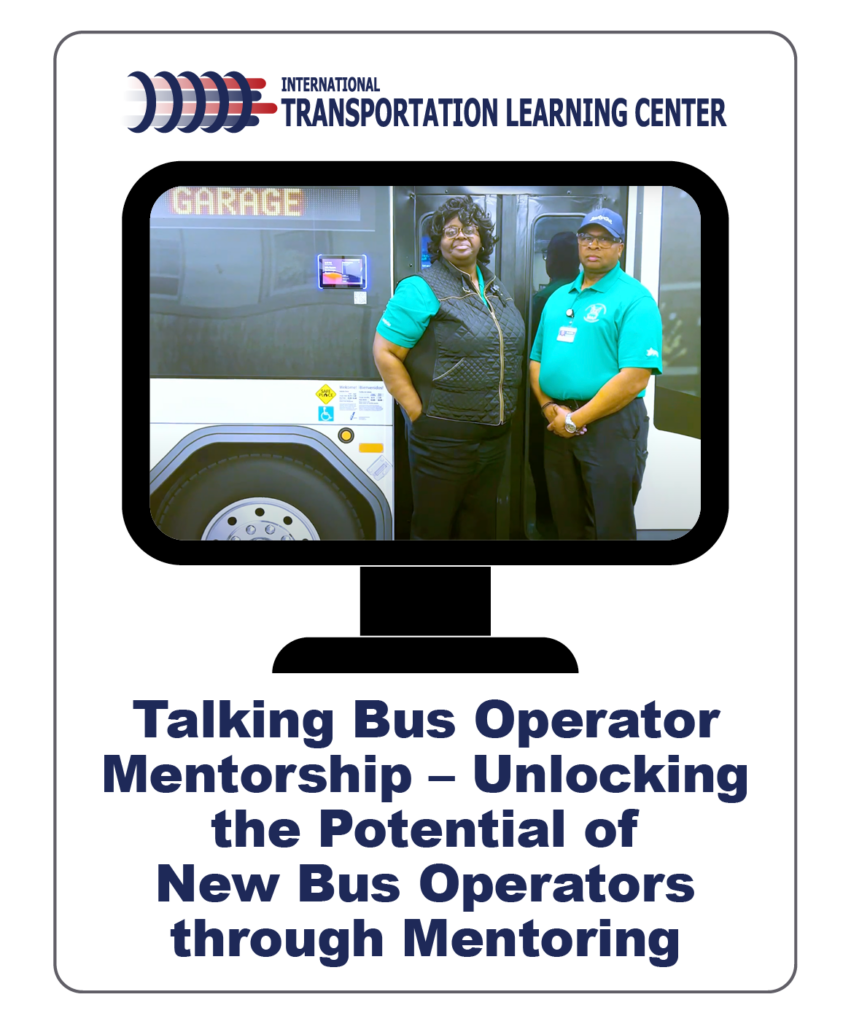
Talking Bus Operator Mentorship – Unlocking the Potential of New Bus Operators through Mentoring
Bus Operator Mentors from WMATA (Washington, D.C./ATU Local 689) and IndyGo (Indianapolis, IN/ATU Local 1070) speak about the benefits of mentorship programs. IndyGo’s President and CEO Inez Evans and ATU’s Director of Apprenticeships and Workforce Development Jamaine Gibson also share their thoughts on the importance of establishing these programs.
International Transportation Learning Center
November 2023
TOPICS: Apprenticeship , Career Pathways , Labor-Management Partnerships , Mentorship
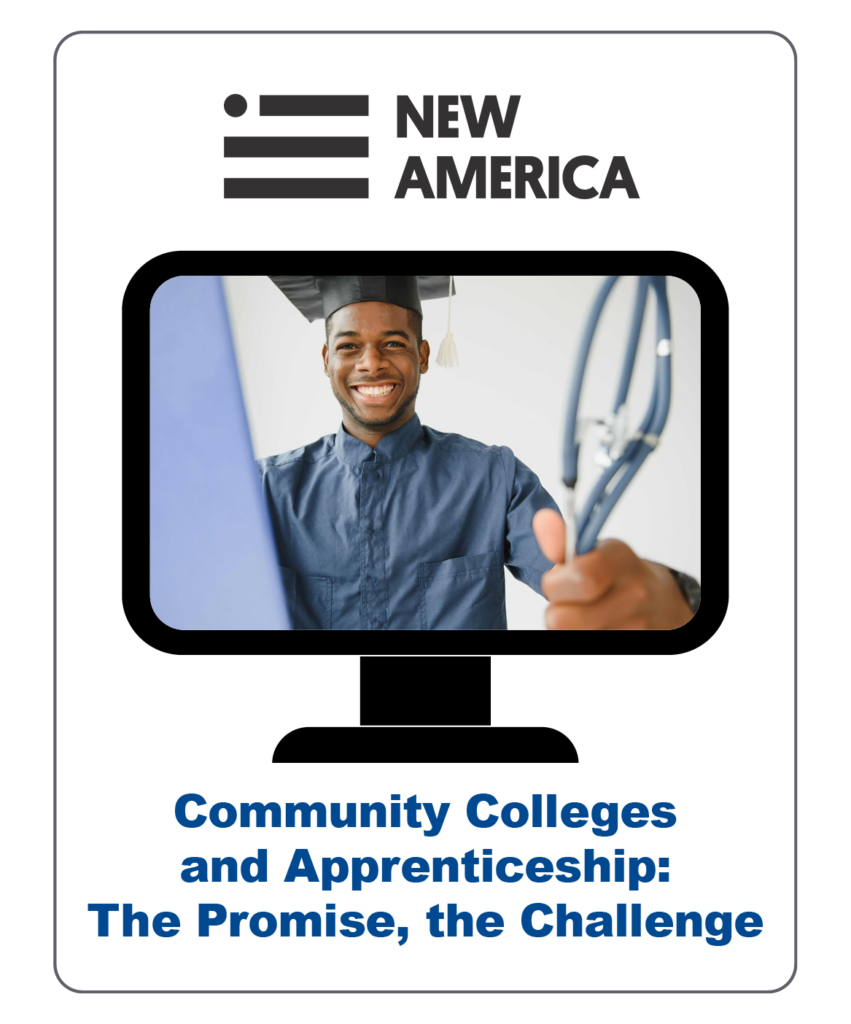
Community Colleges and Apprenticeship: The Promise, the Challenge
To better understand the challenges and opportunities facing community colleges that want to expand apprenticeship opportunities to their students, New America conducted a year-long study. They spoke to apprenticeship, workforce development, and community college leaders about the community colleges role in expanding apprenticeship.
New America Center on Education and Education Policy
November 2023
TOPICS: Apprenticeship , Career Pathways , Policy and Planning
Based on these conversations, we chose case studies and conducted in-depth interviews with leaders from the Community College System of New Hampshire’s ApprenticeshipNH, Arapahoe in Colorado, San Jacinto in Texas, and Howard Community College in Maryland’s programs in IT and cybersecurity, and Coastal Alabama Community College’s nursing apprenticeship.
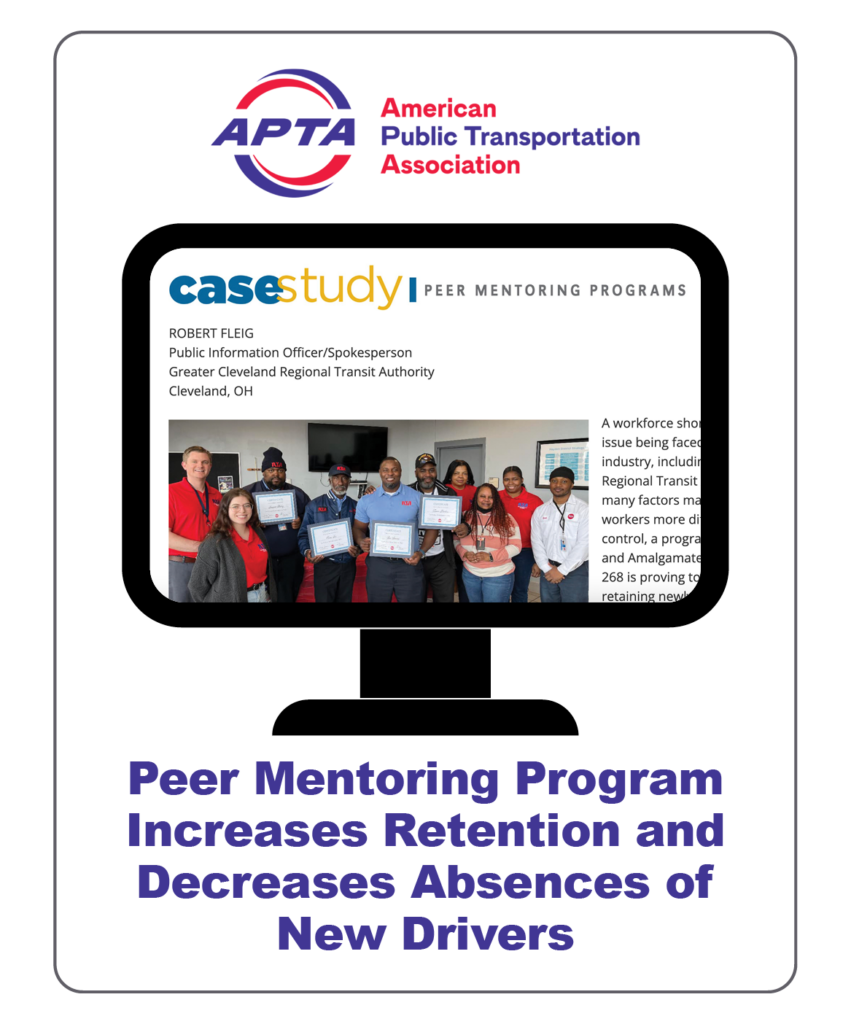
Peer Mentoring Program Increases Retention and Decreases Absences of New Drivers
This case study from APTA’s Passenger Transport presents findings from the mentorship program at Greater Cleveland Regional Transit Authority (GCRTA). GCRTA and ATU local 268 launched their Positive Impact Program, a peer mentoring program that has seen impacts on retention and absenteeism within its first nine months.
American Public Transportation Association
October 2023
TOPICS: Labor-Management Partnerships , Mentorship , Retention , Workforce Shortage
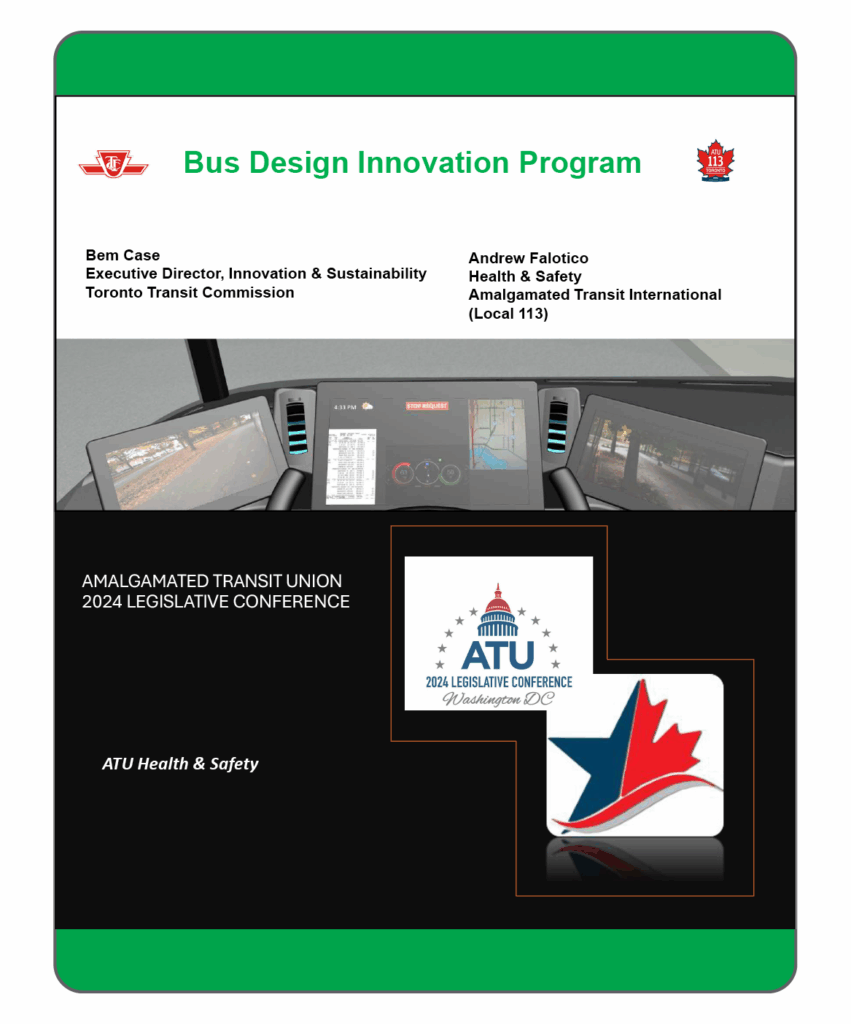
Bus Design Innovation Program
The Bus Design Innovation Project aimed to improve the security and environment of bus operators. The design provides a barrier that shields the operator’s workspace from the passenger area, which reduces the risk of assaults and protects against biohazards without decreasing view of mirrors. The design also improved ergonomics. The partnership between ATU International, ATU local 113, Centennial College, and Toronto Transit Commission enabled the development of a prototype, which was showcased at the ATU Canada Conference in September 2024.
ATU International; ATU local 113; Centennial College; Toronto Transit Commission
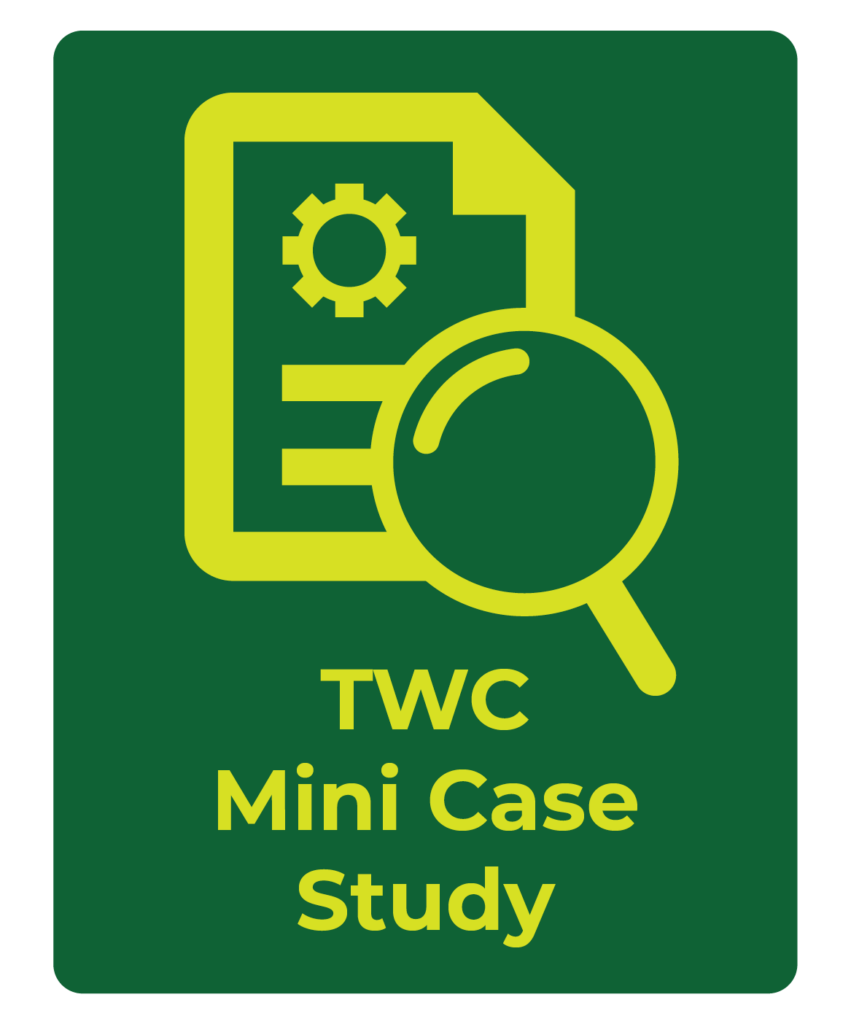
Approaches to Childcare Support in the Transit Industry
Transit Workforce Center
September 2023
- There are many ways to support the childcare needs of employees; there is no one-size-fits-all model.
- The models examined in this case study include a voucher system, an on-site center managed directly by the agency, and a discounted center managed by a contractor with supplemental referral services.
- Challenges remain, including childcare affordability and availability.
- Still, these programs can boost morale and attendance among working parents and caregivers.
At New York City’s Metropolitan Transit Authority (MTA), the first sign of a problem was attendance. Los Angeles Metro experienced a similar phenomenon of worker absences, which grew worse during the COVID-19 pandemic. At Prairie Hills Transit in South Dakota, the agency (like many employers in the community) struggled just to get workers in the first place. In community after community, public transit is suffering from low employee availability, and a key driver of the workforce shortage is clear—a lack of affordable childcare.
The good news for the public transit industry is that a variety of models already exist that support the childcare needs of frontline workers. This case study describes three such models: a voucher system, an on-site center managed directly by the agency, and a discounted center managed by a contractor with supplemental referral services. Across the spectrum of agency sizes—from a small rural agency to an agency serving one of the world’s largest cities—transit providers have opportunities to support their workers, both as employees and as parents.
Please see the summary table at the end of the case study for an overview of each of these programs.
Background: The Urgency of Childcare Needs
The United States used to have one of the highest rates of working women among Organization for Economic Cooperation and Development (OECD) countries, but in recent years, the U.S. rate has declined. As parents struggle to find stable access to childcare, they are forced to limit their workforce participation, leave employment altogether, or pay an often-unsustainable portion of their income towards a childcare program. Using data from the National Survey of Children’s Health, the Center for American Progress (CAP) estimated that in 2016 nearly two million Americans made career sacrifices due to issues with childcare.
As the United States, and in particular the transit industry, faces a difficult and ongoing labor shortage, it is important for mothers to be able to participate in the workforce if they choose. Even though women are less present in the labor force, families are becoming increasingly dependent on the maternal income. Only about 30 percent of families with children rely solely on a father’s income; women are primary or equal earners in about two-thirds of families. Women of color with children are even more likely than white women to be in the labor force, be primary breadwinners, and be in low-earning jobs (NWLC).
Despite this necessity, childcare remains a determining obstacle. An analysis of the 2016 Early Childhood Program Participation Survey (ECPP) indicated that half of American families struggle to find adequate childcare, with cost most commonly reported as a barrier. Another CAP analysis found that over half of Americans live in childcare deserts (areas with few or no options for childcare). The maternal workforce participation rate is an average of three percent lower in these deserts than in areas with adequate childcare. Hispanic/Latino families are more likely to reside in childcare deserts and more likely to report location as an obstacle to obtaining childcare. The prevalence of location as an obstacle can be further explored with these interactive childcare desert maps.
Even small steps to alleviate childcare burdens can help parents join the workforce. A study of Washington, DC’s universal, full-day preschool program found that since the program’s inception, the rate of mothers participating in the city’s workforce increased by 12 percent. Subsidies to support parents in finding childcare assistance can have positive impacts on their workforce participation as well. A study of childcare and parent labor force participation found that just a 10 percent decrease in childcare costs could lead to a 0.5-2.5 percent increase in maternal employment. A paper from the National Bureau of Economic Research indicated that if childcare costs were capped at seven percent of income, the rate of low-income mothers in full-time jobs would increase by 18 percent and the overall maternal employment would increase by 10 percent, which would add 12 million mothers to the workforce. For individual families and the overall economy, these increases are important, and they are essential to mitigating the workforce shortage in the transit industry.
Childcare Examples in Public Transportation
Transport Workers Union (TWU) Local 100 – New York City Transit Child Care Fund (CCF)
In New York City, TWU Local 100 and NYC Transit came together to create the Child Care Fund (CCF), a financial assistance program designed to support the families of Local 100 members who need help paying for childcare expenses. In 2002, Local 100 proposed a new benefit for its members in the collective bargaining agreement: funds through CCF to support parents of young children in obtaining childcare. MTA management, concerned about the effects of worker absences on its operations, agreed to the new benefit. “Workers were doing the calculus of whether it’s worth it to spend X amount on childcare versus just staying home and not working and caring for the child instead. Childcare is very expensive,” said Charles Jenkins, Director of TUF. This no-win choice weighed particularly heavy on women. Jenkins recounted how historically, transit has been a predominantly male industry with few accommodations for women, even proper bathrooms, until recently. Long-standing worker shortages in public transit have led the industry to begin thinking differently.
CCF provides financial support to parents for either a year-round childcare program or for summer camps; the employee can choose. The employee also has the discretion to choose who cares for their child—CCF covers about forty percent of the cost of childcare in a licensed facility (up to $320 weekly), and about twenty percent (up to $160 weekly) if the provider is not licensed—for example, if the caregiver is a family member. If the employee chooses the summer camp option, fifty percent is covered (up to $1,000). The benefit is offered to all employees in good standing who have completed one year of employment, until the employee’s child reaches age 12.
The program is not without challenges. It is first-come-first-served, with limited funds, although most people who seek out the benefit do receive it. Some members report they didn’t know about the fund, and even with a subsidy, childcare remains expensive. Still, CCF’s support helps. “Our members are very thankful for the benefit,” Jenkins said, and the agency and union have found that attendance is high when adequate childcare is in place.
Prairie Hills Transit (Spearfish, South Dakota)
Over a thousand miles away and in a much more rural area, the childcare landscape looks different. Prairie Hills, SD, has struggled for years with a lack of childcare providers in the community. Around 2010, Prairie Hills Transit (PHT) Executive Director Barb Cline noticed that federal funds were available for the construction of new buildings. Thinking creatively, she pursued grants and loans from the U.S. Department of Agriculture for the purpose of constructing a childcare facility within the PHT campus. “We knew this was a community problem, bigger than our own staff,” Cline reported. With only about 50 employees, PHT’s staff didn’t have enough children for a center limited to employees, so the agency opened its doors to the wider community.
Today, this licensed, on-site childcare center can accommodate up to 41 children. To handle demand, PHT is expanding to a new rented location which can enroll another 25 or so children. Because childcare has a low profit margin, no external company would take on the contract, so PHT hired its own manager for the program. Now that the building has been constructed, the program sustains itself financially. Employees of PHT receive a thirty percent discount, while other parents in the community pay full price (though some use government benefits to pay and segmented payment plans are available). Children don’t age out formally, but most enrollees are age five or younger. PHT has found that male and female employees alike take advantage of the program. Recognizing that employees won’t be able to transport their children from school to after-school childcare in the middle of a shift, PHT obtained a separate bus with car seats to provide those trips themselves.
PHT reported several challenges it encountered as the program unfolded. Licensing requirements for childcare centers have gotten stricter and PHT has had to invest time to adapt. Another challenge for the agency has been the “human versus the financial”: if a parent only wants part-time childcare, the center wants to accommodate the family’s needs, but the accommodation results in the loss of a full-time spot and thus a loss of funds. Availability of childcare remains a challenge because demand is so high, even though PHT employees receive some degree of priority; “our waiting list is 12 pages long,” Cline said. Even with a subsidy, affordability is still a question for some families. However, employee turnover is low at PHT and childcare may be part of the reason.
PHT has realized that because of the geographic dispersion of employees and the low turnover of children in the center, some employees are not able to take advantage of the center’s offerings. As the program looks to the future, PHT is looking to build a second shared-use facility to expand capacity.
LA Metro (Los Angeles, CA)
Like so many other transit agencies, Los Angeles Metro found its workforce depleted as the COVID-19 pandemic progressed. The agency recognized that a lack of childcare delayed re-entry into the workforce.
LA Metro offers three options for their employees to find support The first is, through a memorandum of understanding, a partnership with Pathways LA to provide referral services to LA Metro employees seeking childcare. Pathways LA gives parents digestible information about childcare options and assistance navigating the possibilities available. LA Metro also utilizes its employee assistance program through ComPsych Corporation Guidance Resources, which connects employees to a Work-Life Specialist. This specialist provides personalized resources custom to the needs of the individual employees seeking childcare in their area. The third support is more recently established: LA Metro has leased a space it owns, beginning June 2023, to Pathways LA for a childcare center within walking distance from Metro’s central maintenance facility and headquarters. This arrangement was established through a competitive bid process. The center is not exclusive to LA Metro employees, but employees receive a 15% discount and get priority enrollment. The center serves children up to age 5 and offers everything from an infant center to an educational curriculum for older children to special needs programming. LA Metro has hired a coordinator to oversee the relationship between Pathways LA and Metro, which has been indispensable to facilitating a smooth partnership, the agency reported.
As childcare needs have evolved, LA Metro has persevered in seeking the best options for its employees within available resources. Before the Pathways LA partnership, LA Metro had partnered with a different third-party provider; with the new partnership, largely because of inflation, prices have risen and employees that transferred from one provider to the other were impacted by the change. Prices were already steep and employees felt the increase keenly. Another challenge has been the limitations of a single facility location: the fact that the center is close to LA Metro’s headquarters and central maintenance garage reduces travel and logistics for some parents, but not all Metro employees report to those locations. For LA Metro, a multi-pronged approach has been most successful.
Conclusion
Finding adequate childcare services is an imperative step in entering or re-entering the workforce, but it’s not easy for every parent. In the face of a widespread workforce shortage, if transit agencies are able to help parents with this step, it can help rebuild and maintain their workforce. These examples provide evidence that agencies of varied sizes across the county can find a childcare supportive service program that works for them. LA Metro found that neither subsidies nor self-administration of a childcare center was realistic for them, but partnerships with an established and trusted provider could further their employees’ access to childcare resources. On the other hand, Prairie Hills Transit, facing a childcare desert in their community, established their own center. Meanwhile, MTA and TWU Local found that cost, not availability, was the primary limiting factor for their employees, and they were able to address that challenge for many families. Other transit agencies can take similar steps, utilize their own unique resources, and learn from the challenges faced in these examples to facilitate access to childcare services for their employees, which in turn will contribute to a stronger and more reliable workforce.
Summary of MTA/TWU Local 100, Prairie Hills Transit, and LA Metro Childcare Programs
For more information on these programs, contact:
- Barb Cline, Prairie Hills Transit: bkcline@prairiehillstransit.com
- Jodi Stewart, LA Metro: stewartj@metro.net
- Shayna Gleason, TWC: sgleason@transportcenter.org
Contributing Authors: Shayna Gleason, Michaela Boneva
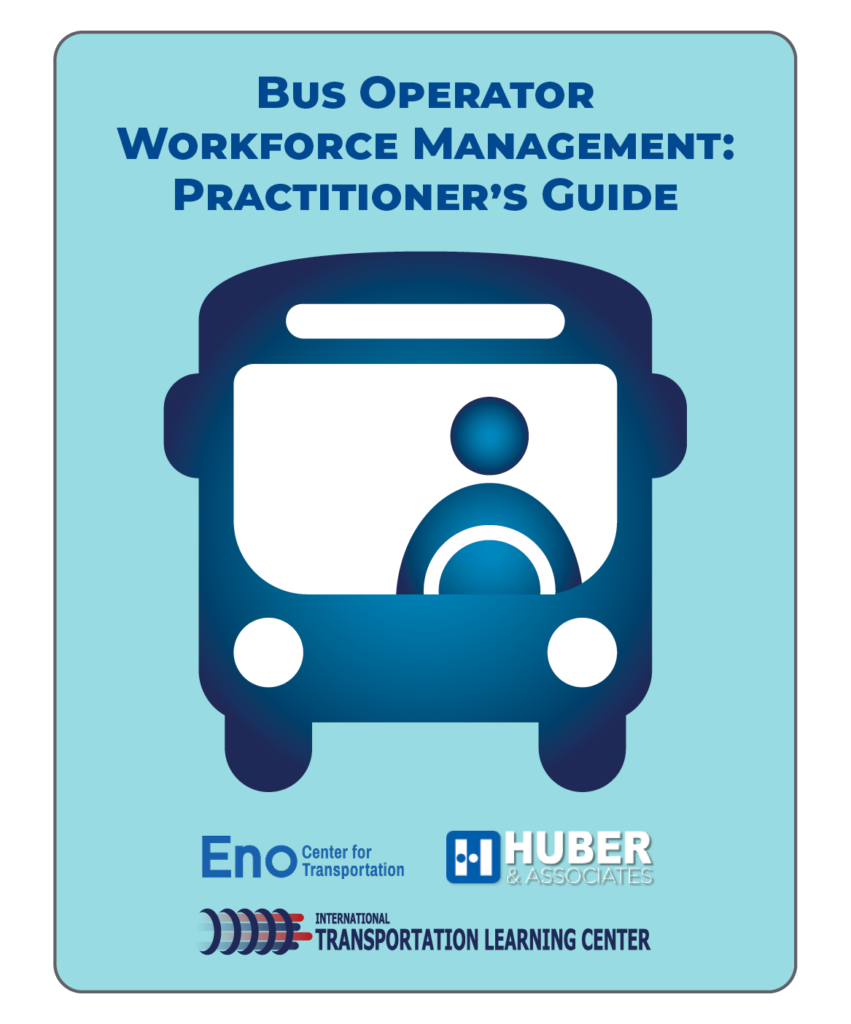
Bus Operator Workforce Management: Practitioner’s Guide
This report, produced by the Eno Center for Transportation, International Transportation Learning Center (ITLC), and Huber & Associates, is a practitioner’s guide that provides recommendations and resources enabling transit agencies to better assess, plan, and implement their operator workforce management programs. A link to a related TRB webinar is also included.
Transit Cooperative Research Program
August 2023
Contributor(s): National Academies of Sciences, Engineering, and Medicine; Transportation Research Board; Transit Cooperative Research Program; Robert Puentes; Philip Plotch; Brianne Eby; Paul Lewis; Karitsa Holdzkom; Xinge Wang; Douglas Nevins; Kenyon Corbett; Melissa Huber
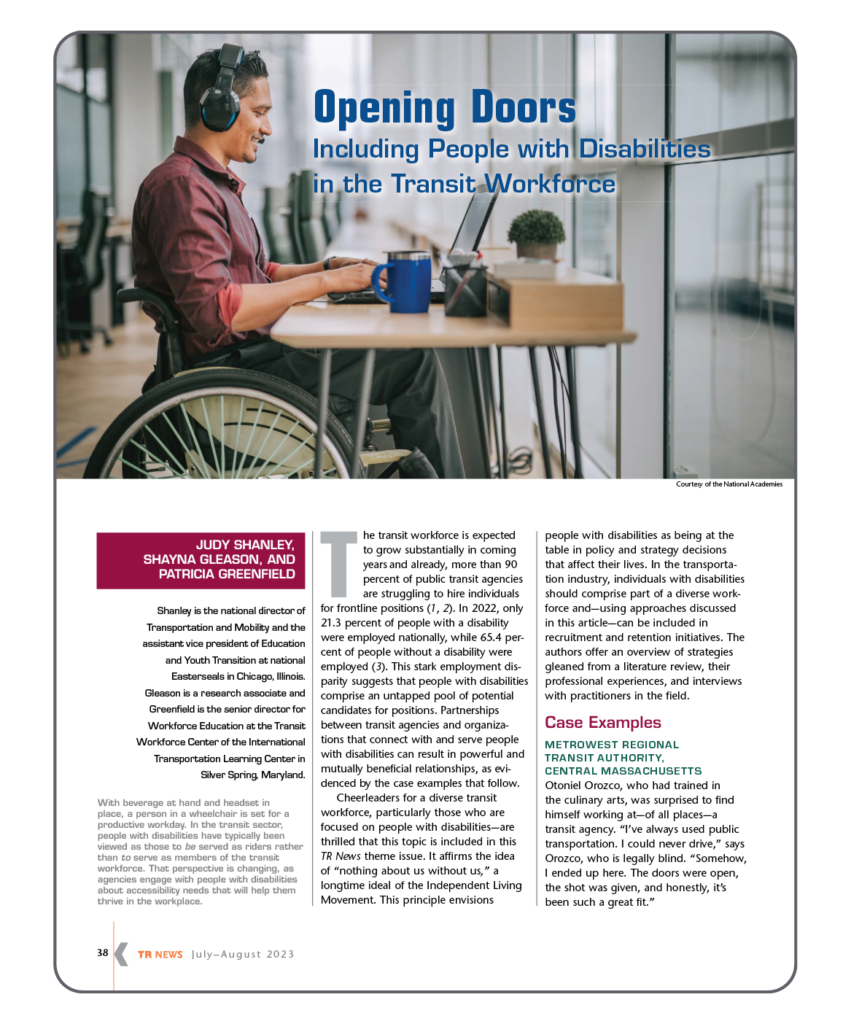
Opening Doors: Including People with Disabilities in the Transit Workforce
TR News
August 2023
In the transportation industry, individuals with disabilities should be included in recruitment and retention initiatives. “Opening Doors: Including People with Disabilities in the Transit Workforce” offers an overview of strategies and is one of the feature articles in the July-August 2023 edition (Issue 346) of TR News, TRB’s magazine.
Authors: Judy Shanley (National Center for Mobility Management), Shayna Gleason (International Transportation Learning Center), and Patricia Greenfield (International Transportation Learning Center)
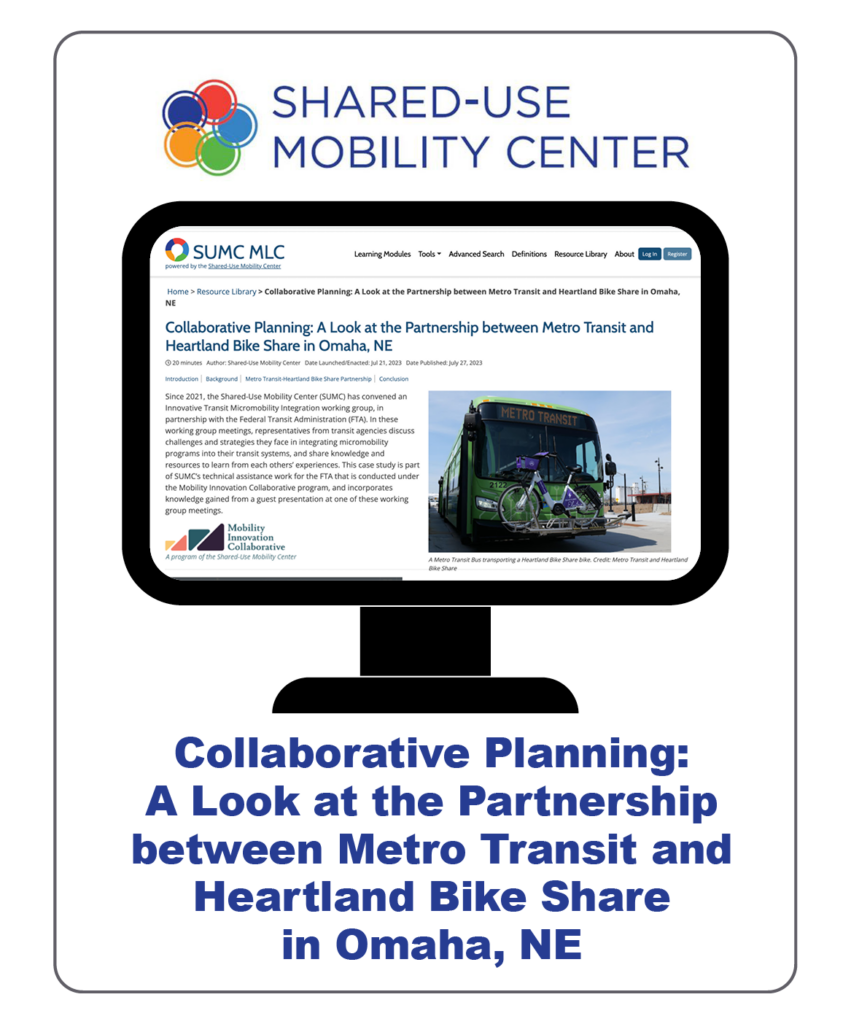
Collaborative Planning: A Look at the Partnership between Metro Transit and Heartland Bike Share in Omaha, NE
In Omaha, Nebraska, the city’s public transit provider Metro Transit and non-profit bikeshare provider Heartland Bike Share have been collaborating on ways to make biking and transit more connected and more appealing in their community. This case study examines the partnership and how transit and micromobility integration can benefit a city, support both modes, and provide more options for travelers.
Shared-Use Mobility Center
July 2023
TOPICS: Policy and Planning
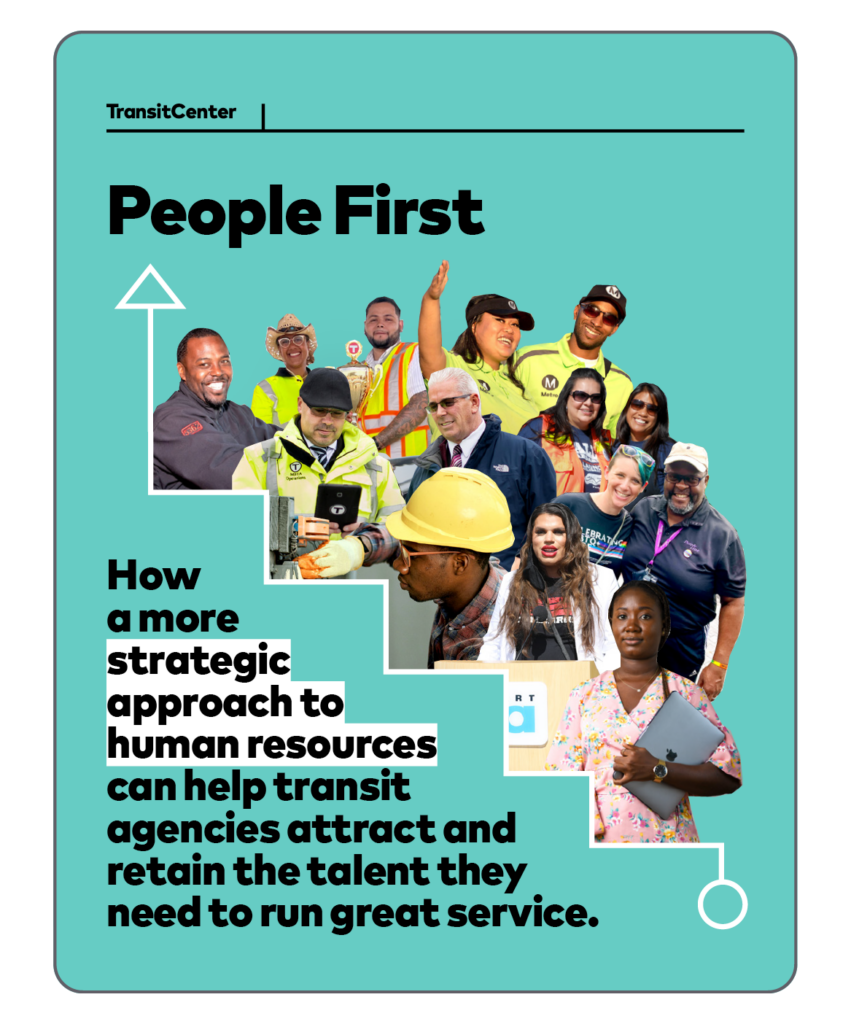
People First
This report from TransitCenter describes the current transit industry workforce shortage and provides recommendations for agency leadership, policy makers, and community advocates to help address the issue, including creating a robust human resources department, as well as strategies to address recruitment, training, and retention.
TransitCenter
July 2023
TOPICS: Workforce Shortage
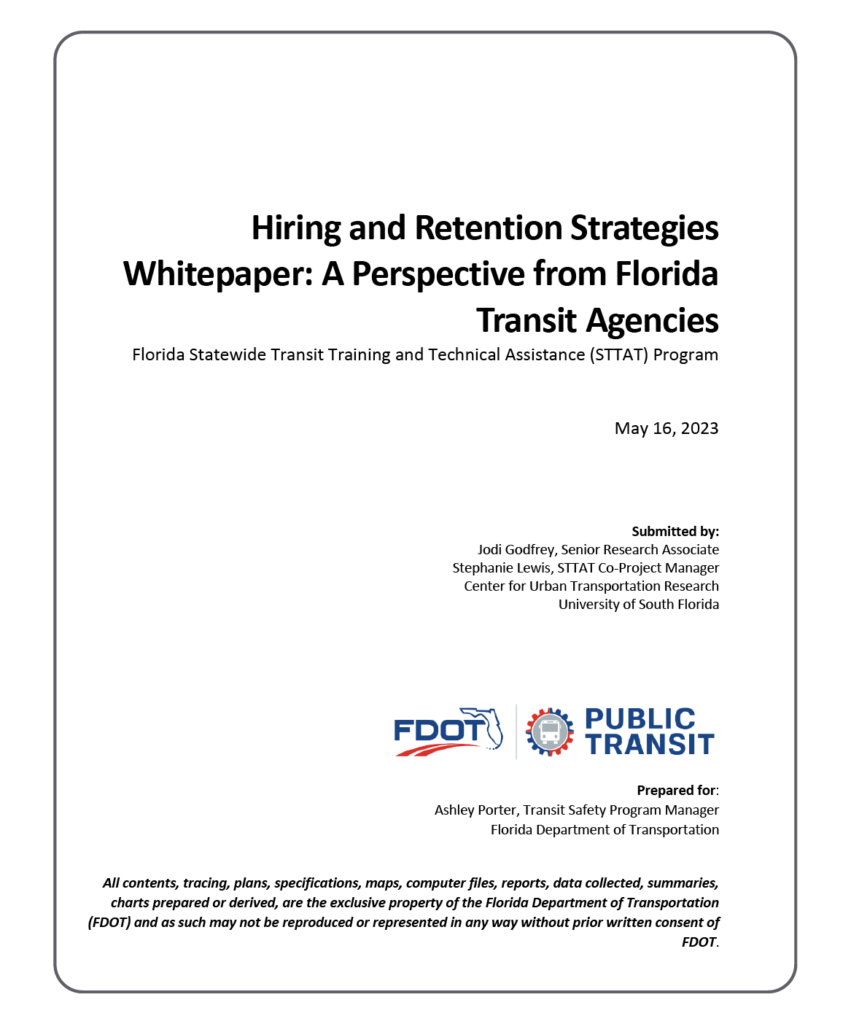
Hiring and Retention Strategies Whitepaper: A Perspective from Florida Transit Agencies
This study examines what transit agencies are doing to address hiring and retention challenges, what strategies are working, and what problems still need to be solved. The report includes six case study sites from Florida transit agencies and one non-Florida transit agency, that were selected due to a variety of characteristics, including partnerships and implemented service changes.
Center for Urban Transportation Research
June 2023
TOPICS: Hiring and Recruitment , Policy and Planning , Retention
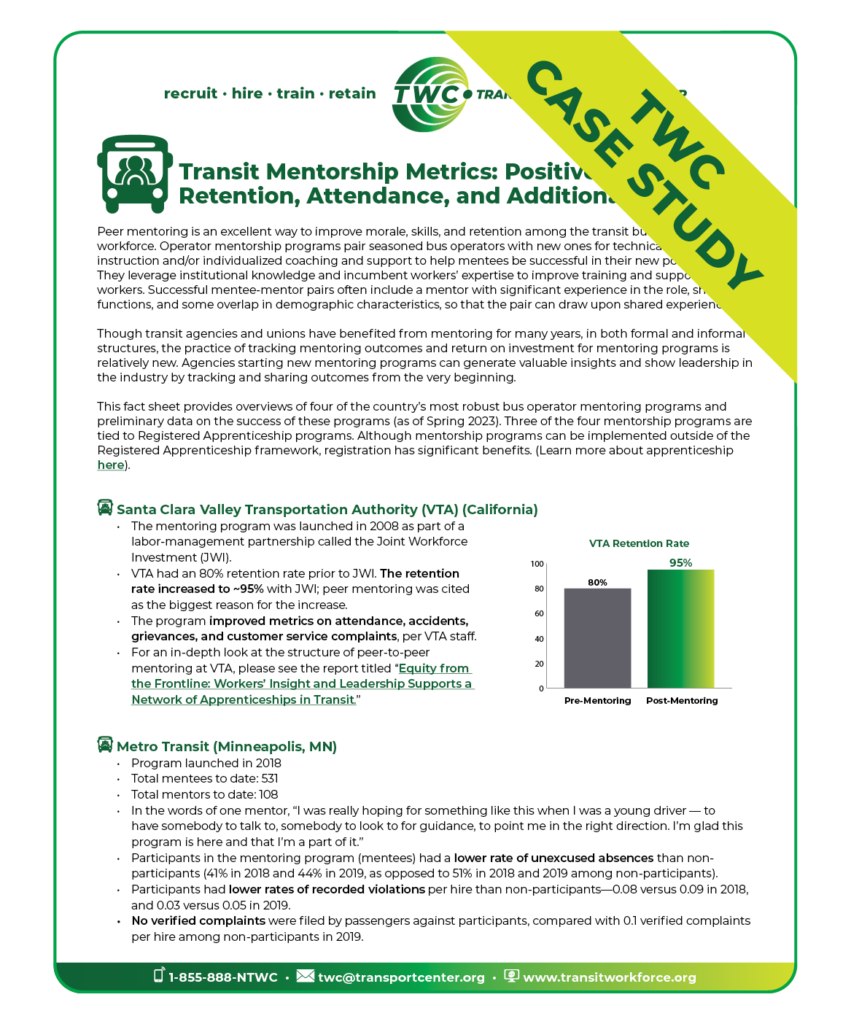
Transit Mentorship Metrics: Positive Signs for Retention, Attendance, and Additional Outcomes
Transit Workforce Center
June 2023
TOPICS: Apprenticeship , Mentorship , Policy and Planning , Retention , Training
This fact sheet provides overviews of four of the country’s most robust bus operator mentoring programs and preliminary data on the success of these programs (as of Spring 2023). Operator mentorship programs pair seasoned bus operators with new ones for technical skill instruction and/or individualized coaching and support to help mentees be successful in their new positions. They leverage institutional knowledge and incumbent workers’ expertise to improve training and support for new workers. The Mentoring Fact Sheet provides insight into the role mentorship programs can play in improving retention rates of workers, decrease unexcused absences, reduce rates of recorded violations, and lower complaints.
Contributing Authors: Shayna Gleason, Douglas Nevins, Michaela Boneva
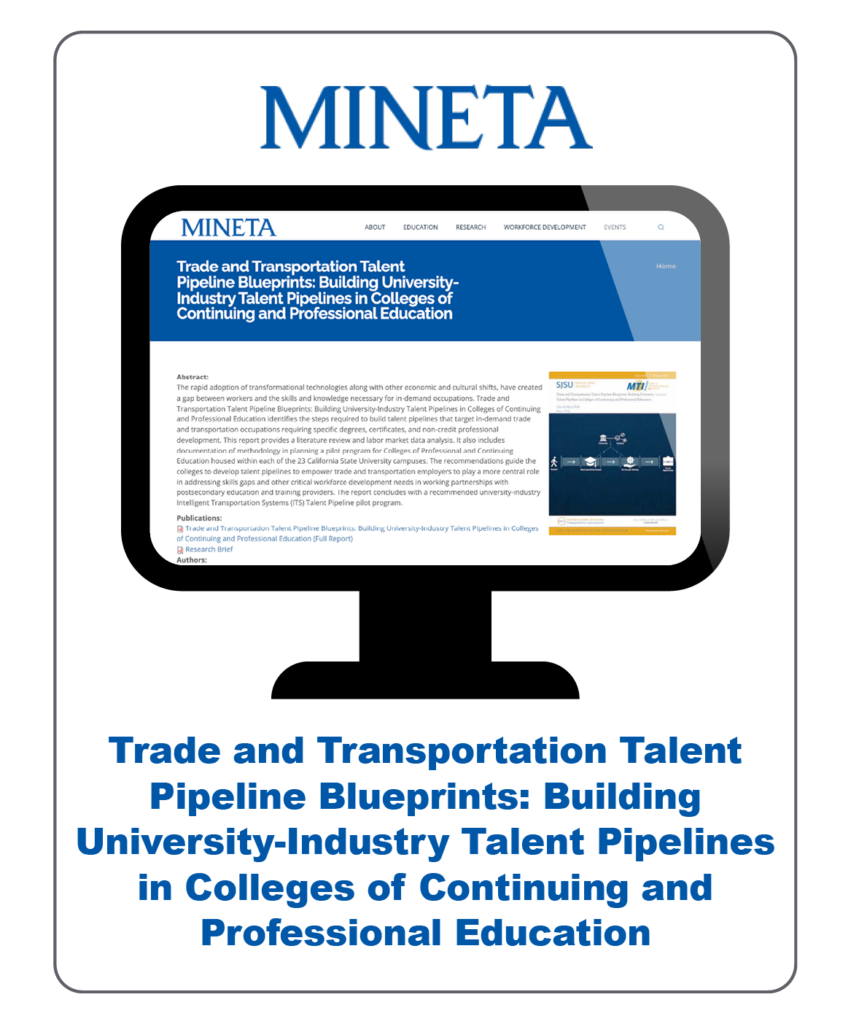
Trade and Transportation Talent Pipeline Blueprints: Building University-Industry Talent Pipelines in Colleges of Continuing and Professional Education
This report identifies the steps required to build talent pipelines that target in-demand trade and transportation occupations requiring specific degrees, certificates, and non-credit professional development and provides a literature review and labor market data analysis. It also includes documentation of methodology in planning a pilot program for Colleges of Professional and Continuing Education housed within each of the 23 California State University campuses.
Mineta Transportation Institute
February 2023
TOPICS: Career Pathways , Hiring and Recruitment , Policy and Planning , Training
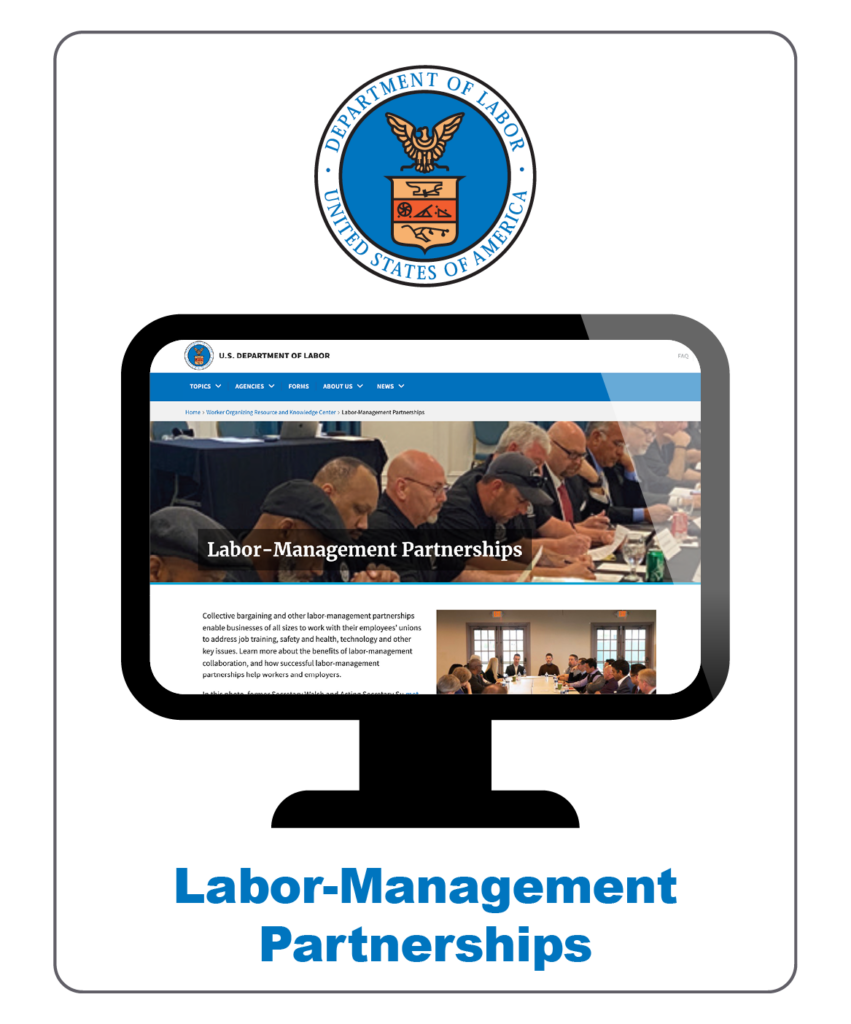
Labor-Management Partnerships
This page from the US Department of Labor explains the benefits of labor-management partnerships, successful examples of partnerships, how successful labor-management partnerships help workers and employers, and provides additional resources for support.
Department of Labor
January 2023
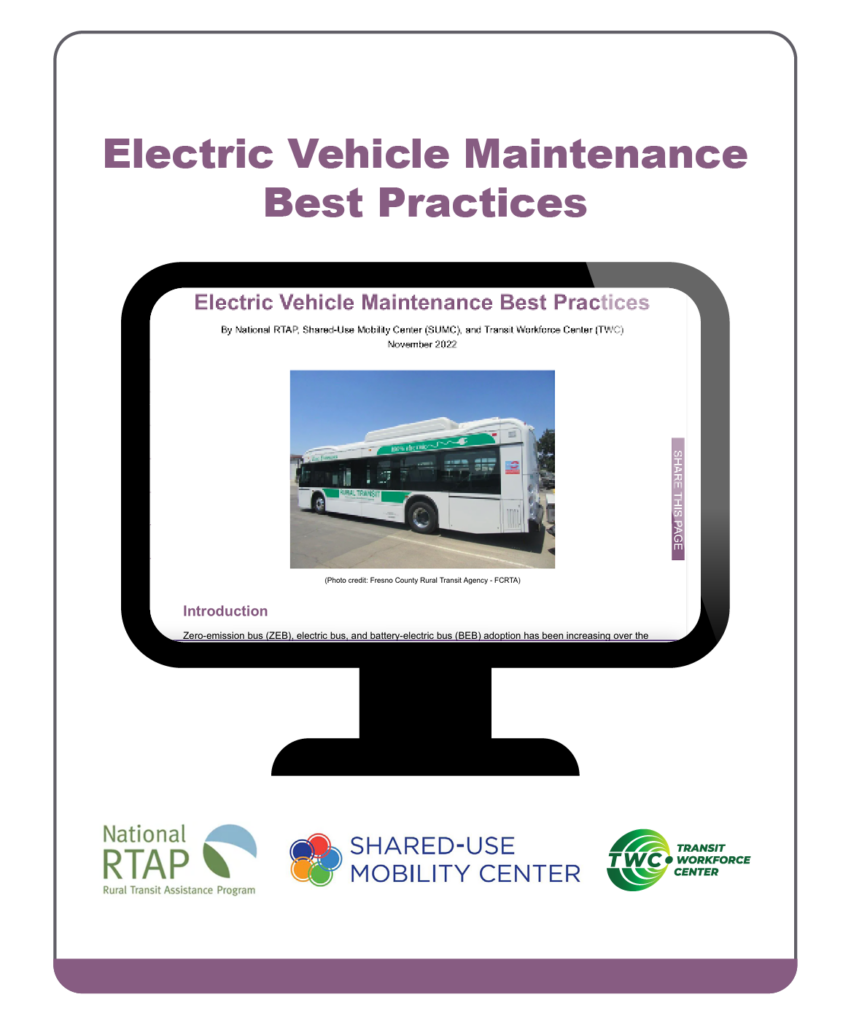
Electric Vehicle Maintenance Best Practices
This best practice spotlight article on electric vehicle maintenance provides recommended practices and case studies from transit agencies that have successfully implemented these vehicles into their fleets.
National RTAP, Shared-Use Mobility Center (SUMC), and Transit Workforce Center (TWC)
November 2022
TOPICS: Low-No , Safety and Health , Training
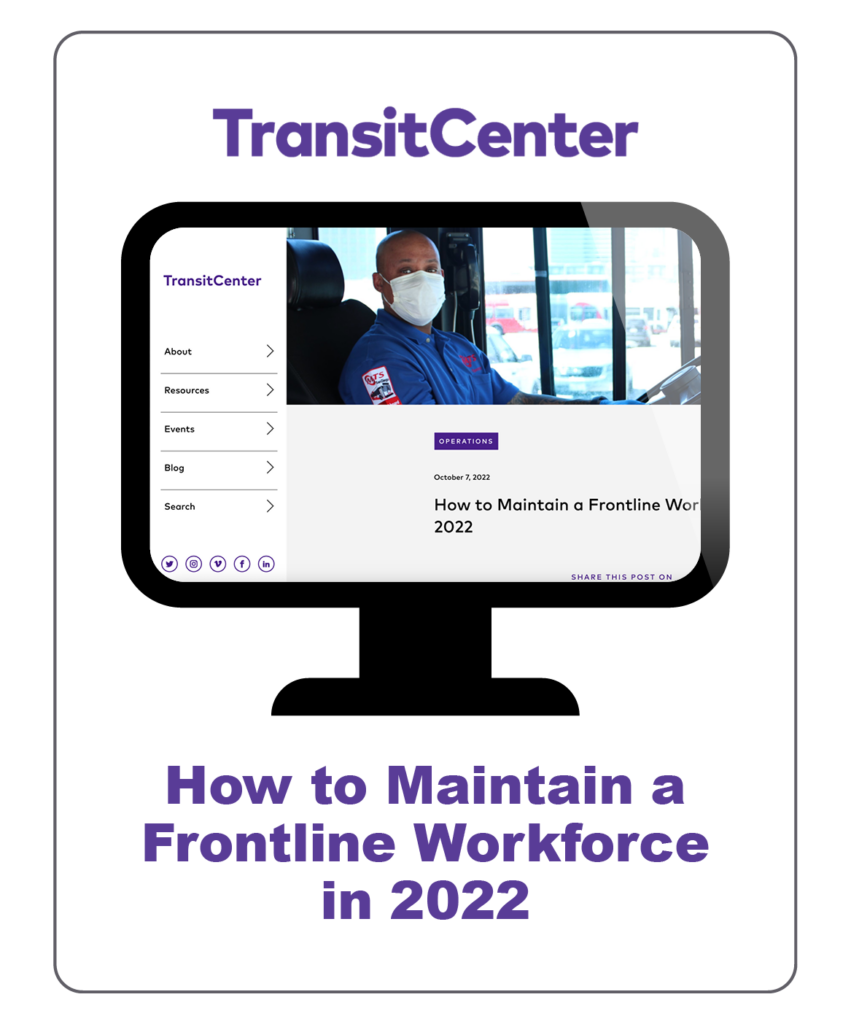
How to Maintain a Frontline Workforce in 2022
TransitCenter
October 2022
TOPICS: Hiring and Recruitment , Retention
This blog post considers steps taken by transit agencies in New York City and San Diego in order to bolster and maintain their frontline workforces in the aftermath of the pandemic and years of labor shortages in the transit industry. The post describes actions like increasing wages, easing CDL requirements, and increasing recruitment efforts.
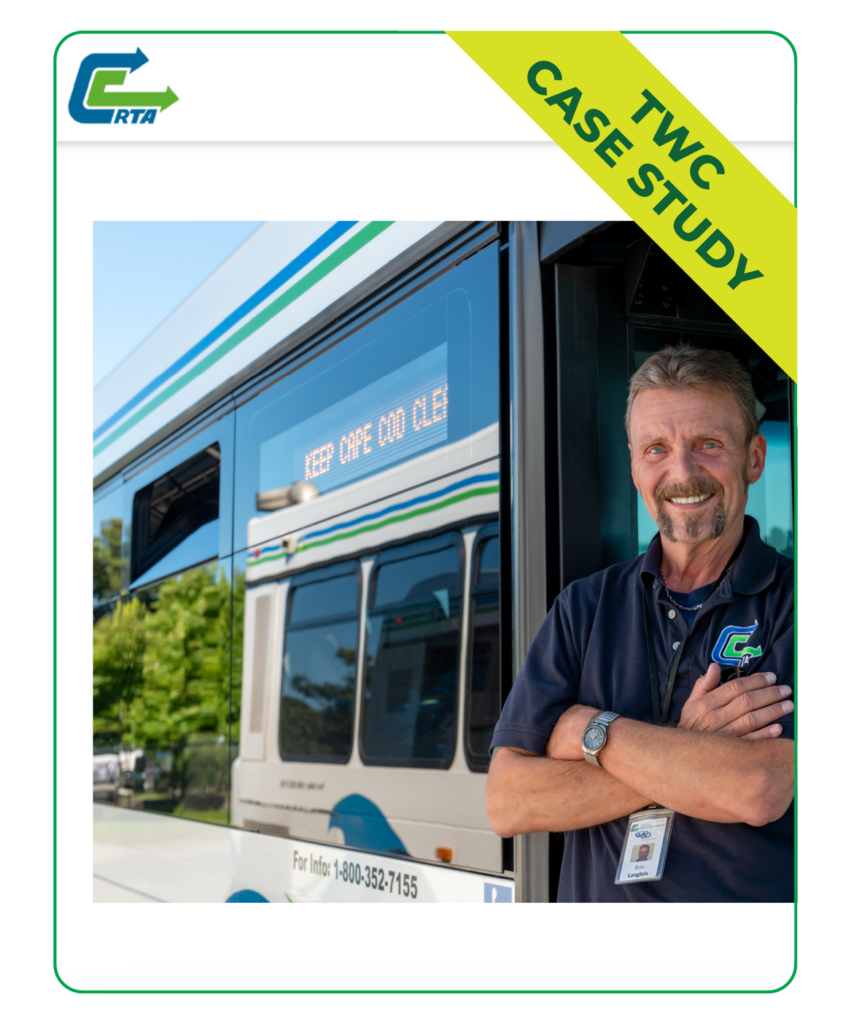
Recruiting Older Workers and Retirees at Cape Cod Regional Transit Authority
Cape Cod Regional Transit Authority; Transit Workforce Center
September 2022
Cape Cod Regional Transit Authority (CCRTA) in Massachusetts serves 15 towns within a 400 square miles area in an area where the population triples in the summer with seasonal residents. CCRTA runs seven year-round fixed route lines, several on-demand and hybrid on-demand services, and three summer shuttle services. In 2021, CCRTA served approximately 2.5 million people with 98 drivers.
Faced with driver shortages, CCRTA and Amalgamated Transit Union Local 1548 worked together and negotiated driver raises and $1,000 bonuses paid after 90-days. In addition, a six-step salary scale to reach the top pay grade was reduced to two steps. Drivers can now reach the top pay level within two years.
Barnstable County’s older adult population is among the largest per capita in the country, and CCRTA has instituted hiring initiatives aimed toward the older worker and retiree population. In connecting with this population, CCRTA has taken a variety of actions, including:
- Reaching out through Cape Cod Elder Services to communicate CCRTA’s interest in hiring older workers. CCRTA’s Human Services Transportation Manager sits on this organization’s board, facilitating ongoing contact.
- Targeting recruitment of retiring teachers, firefighters, police, and school bus drivers. Cape Cod RTA staff visited schools, fire houses, police stations, and municipal offices to share recruitment information.
- Visited each town on Cape Cod, talked with local retirement agency officials, and posted and mailed banners and notices.
- Overall increase in the agency’s traditional and social media presence generally, including advertising explicitly aimed at older adults, including on social media. Developed advertising, messaging, and imagery to make older workers and retirees feel welcome. To see samples of advertising, visit Cape Cod RTA Jobs on Facebook, the ad on their website’s front page, and see the video, featuring older drivers, on the CCRTA career page.
- Emphasizing the short time it takes to reach the highest salary level, a compelling message for older people and retirees, who often value salaries more than benefits, as well as the ability to reach the highest level within their time at the agency.
- Offering various employment options, including full-time and part-time, and seasonal. The agency has found that individual needs lead to varied choices; they estimate their older employees have split 50-50 in what scheduling option they choose.
- Providing full CDL training, testing and additional agency-specific training for all employees without CDLs. The agency pays for all training.
- Offering options for non-CDL drivers, who operate smaller vans. The agency encourages the CDL route because it gives drivers more flexibility in shifts and allows them to work and get paid at a higher rate.
- Currently exploring working with the Barnstable County Retirement Commission to arrange for a notice about CCRTA employment options to be part of the Commission’s information packet when an employee puts in for retirement.
CCRTA values its older workforce and their commitment to the job; through its efforts, it has been able to hire a dozen older adults / retirees as drivers. The agency notes that with this population, it is reasonable to expect excellent attendance, while also allowing for the potential of more short-term disability and time for medical appointments. COVID-19 saw CCRTA lose about half of its older adult workforce, given that population’s sensitivity to exposure. However, CCRTA is renewing its recruitment efforts in this area through the various methods noted.
For more information, contact:
Penny Grossman, H.R. Manager – Pgrossman@capecodrta.org – 508-385-1430, ext. 106
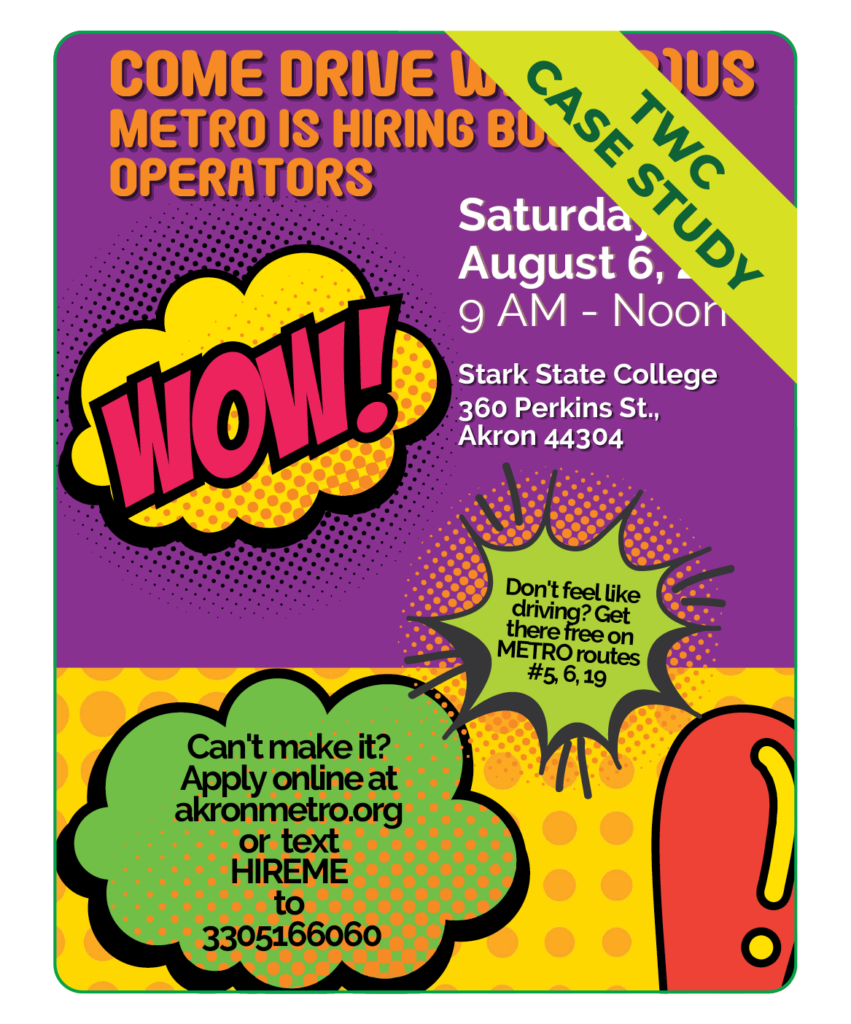
Come Drive with (B)us – Akron METRO Operator Recruitment Event
Akron METRO Regional Transit Authority; Transit Workforce Center
September 2022
TOPICS: Hiring and Recruitment
Organizations
Akron METRO Regional Transit Authority (METRO): Transit agency serving Summit County, Ohio and the city of Akron, with a fleet totaling 231 vehicles: 140 large buses and 91 smaller paratransit vehicles. METRO employs 425 team members.
Stark State College: Local event venue and partner in advertising campaign. METRO is currently in the final stages of an agreement with Stark State to supplement its CDL training program.
Program Summary
METRO’s “Come Drive with (B)us” event was a major initiative designed to recruit bus operators. Held at Stark State College, the event featured on-site bus-related activities, interviews and job applications. Extensive outreach activities before the event through multiple outlets, combined with the themed ad campaign, brought 99 interested participants and resulted in 71 contingent offers. The key “draw” to this event was the ability to test drive our vehicles on a closed course alongside our staff. METRO’s idea was that if the thought of driving a bus was keeping people from applying, they could offer a nontraditional mechanism to overcome that hesitancy. Once that challenge was overcome, the process could focus on the soft skills related to empathy and great customer service that are critical to success.
Key Program Elements
- Pre-event publicity
- Pop Art themed ad campaign (viewable on Facebook; an example is attached below as a PDF)
- Free and purchased advertising through social media, including Instagram, Facebook, and Twitter posts
- Information on METRO’s website
- Print ads in local daily and weekly publications
- Two digital billboards, and flyers on buses and posters at METRO’s transit center
- A radio ad on several local radio stations
- Two days before to the event, Stark State College promoted the event on their digital sign, readable from the expressway
- Four radio personalities from four different stations drove the bus two to three weeks prior to the event and promoted on the air, including one station that put together its own video.
- Television interviews that resulted in a full story and a variety of mentions of the event on other stations
- Creating two bus wraps with the pop art feel (see PDF below) on careers, though not event-specific
- Outreach to past applicants
- Videos of three in-house of staff driving for the first time, along with videos featuring County Executive and Representative Casey Weinstein, and an invite video from METRO’s CEO
- Event activities and design (see PDF of signage below)
- Participants were told to bring a valid driver’s license
- Four clearly-marked stations for applicants to go to where they had the opportunity to:
- Apply
- Interview
- Secure a mobility device
- Drive a bus
- Every applicant moved through all four stations
- At final stop, attendees received:
- Bag of information
- Swag
- Digital and paper copies of the CDL training booklet for them to start studying
- Event planning activities
- Started six to eight weeks before event
- Committee was made of HR, Marketing, Operations, Maintenance and Safety/Security
- Eighteen staff members worked the day of the event – five working check-in/applications, five doing on-site interviews, two working the mobility station, five running the “test drive” station, and one runner to move between all stations to relieve backlog
- Used seven 40 foot buses (2 spares) and 2 paratransit vehicles
Outcomes
- Ninety-nine event attendees interviewed and were able to test drive
- Twenty-five additional people applied who could not attend; follow up interviews were planned
- 71 of the 99 were moved through to a “contingent offer” pending background checks with a start date of September 26th
- Twenty-three of the 99 had areas of their application that required reviewing before proceeding
For more information on this event, contact: Jarrod Hampshire – Chief Operations Officer, METRO RTA 330.808.0144
More recruitment advertising materials and resources can be found here.
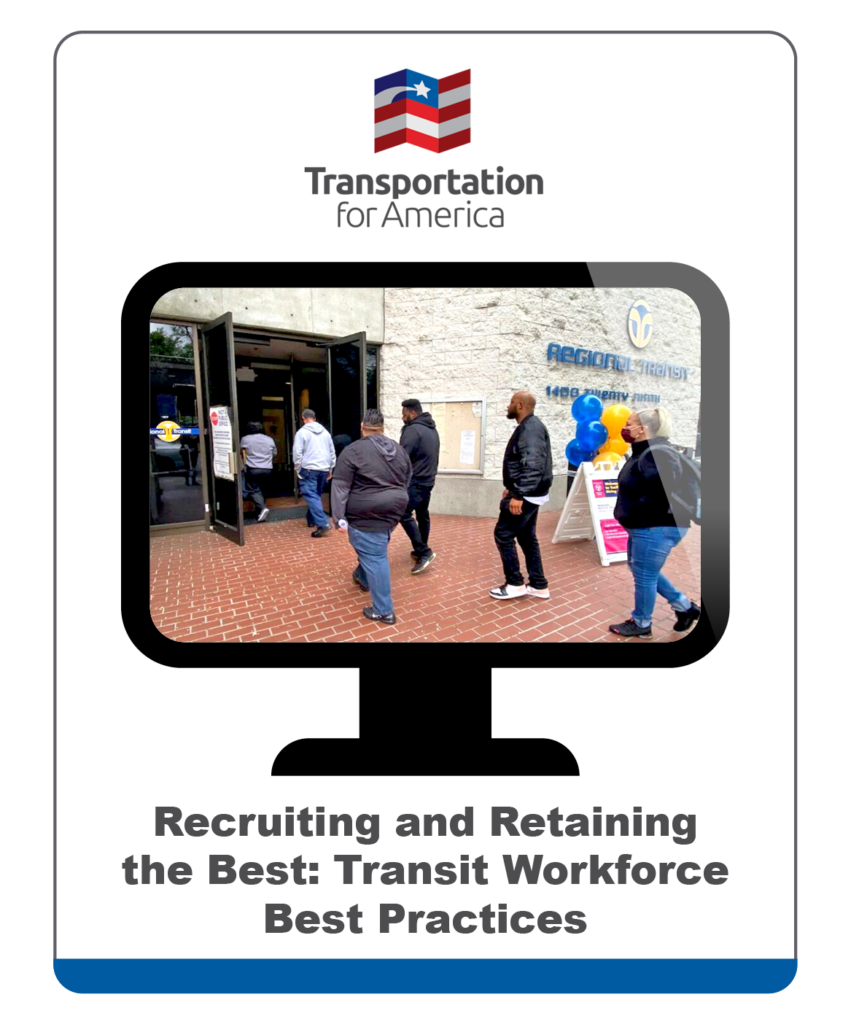
Recruiting and Retaining the Best: Transit Workforce Best Practices
This blog post from Transportation for America details successful strategies and best practices employed by transit agencies to empower their operator and maintenance workforces.
Transportation for America
September 2022
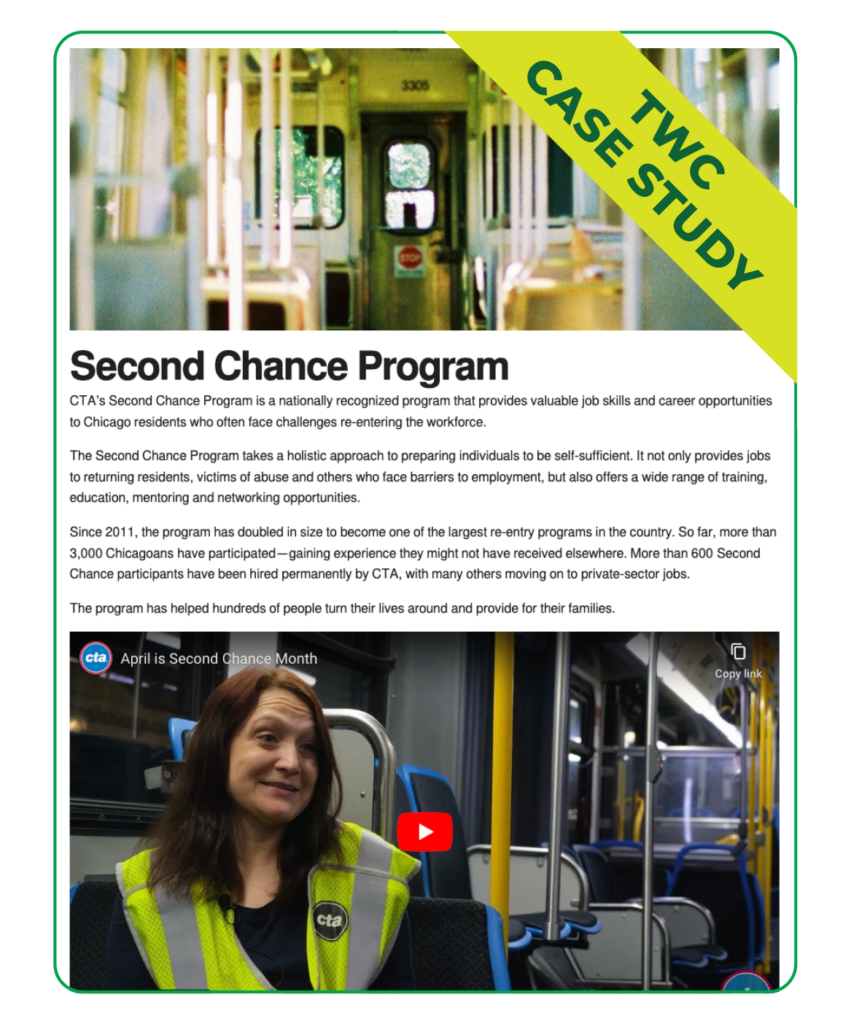
Second Chance Transit Programs
Several transit agencies across the country have established Second Chance programs to support formerly-incarcerated individuals as they reenter the workforce; these programs set pathways into frontline transit positions, often focusing on driver recruitment. These initiatives involve active collaboration between transit agencies and departments of corrections. Agencies have also worked with other partners, including their local unions, state and local workforce development agencies, ex-offender support programs, and local community organizations.
August 2022
Basic descriptions of some current state and local programs can be found at the links below.
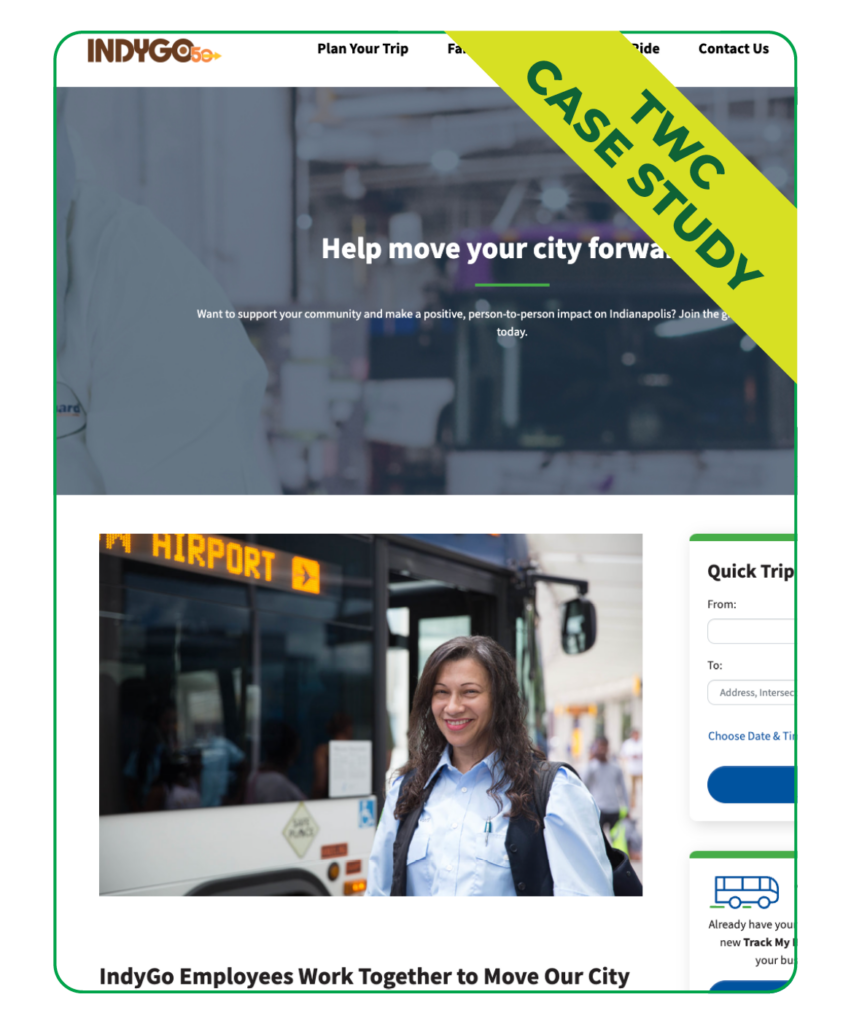
IndyGo’s Employment Opportunities Page
The IndyGo transit agency, based in Indianapolis, Indiana, offers high-quality career information on its website. This resource summarizes effective elements of the career page.
IndyGo
August 2022
TOPICS: Career Pathways , Hiring and Recruitment
IndyGo’s career page helps site visitors to understand what it’s like to work at the agency and how to apply. The page also highlights key job benefits and emphasizes the opportunity to serve the community. Overall, the employment section of IndyGo’s website demonstrates a number of key communication elements that support effective outreach to potential applicants. These elements include:
- An easily accessible and identifiable section on the website. “Employment” has its own clickable category, not a subcategory that may be harder to locate.
- Clear statements about IndyGo’s mission, emphasizing community service, connection, and working together to make a difference in people’s lives. These messages attract a range of potential target audiences, and they make clear the difference between a public service career, as opposed to other careers applicants may be considering.
- A detailed list of benefits, with additional specific benefits for drivers noted. Among those benefits, the list includes unique aspects of the driver position that distinguishes it from other potentially competing careers (e.g., long-haul trucking), noting benefits such as “all local work.”
- Highlighted aspects of the driver position that emphasize the connection with and support provided to riders.
- A thoughtful list of questions for potential applicants to consider about themselves and the type of work they might want before they decide to move ahead with the application.
- Detailed information on how and where to apply, basics of how to prepare for and what to bring to an interview, and important specifics about the steps of the hiring process and initial orientation and training programs.
- IndyGo’s Why I Drive segment on their website includes a video featured in the National Frontline Workforce Recruitment Campaign Toolkit video library elsewhere on this website. That link on IndyGo’s website also features brief worker profiles, another summary of benefits, and a note on IndyGo’s Second Chance Initiative.
- IndyGo’s website includes a prominent option to translate the site into Spanish.
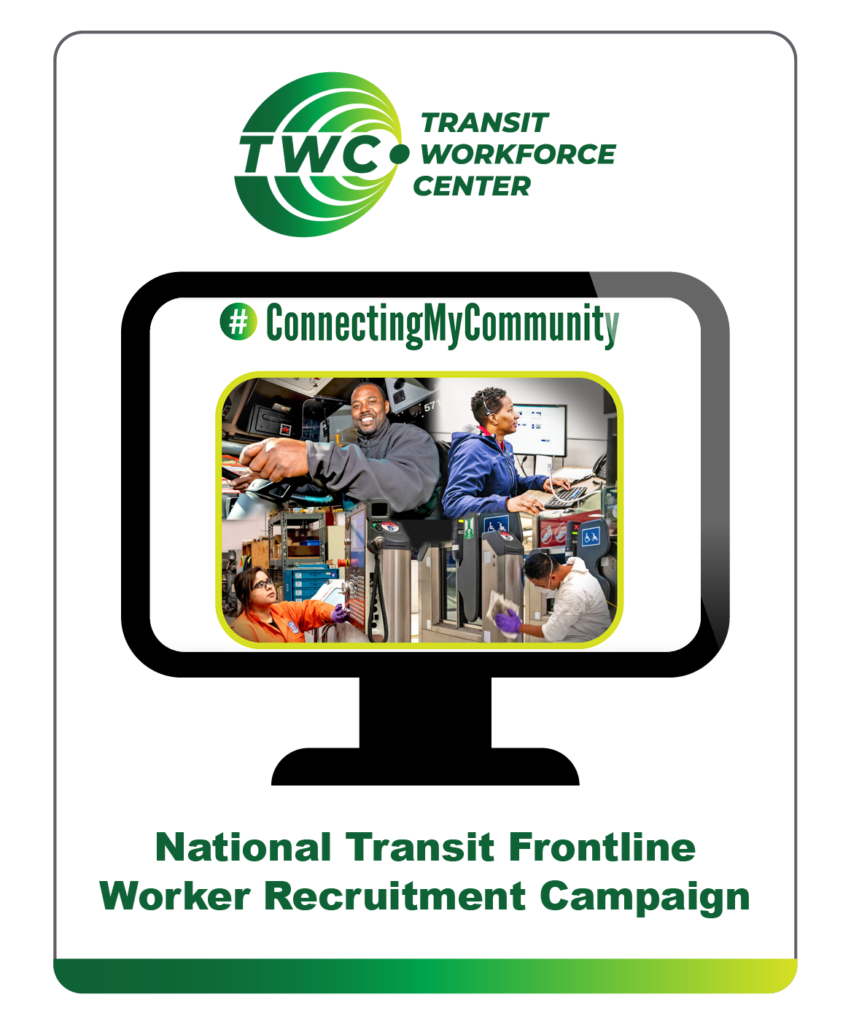
National Transit Frontline Worker Recruitment Campaign
Across the United States, whether large, small, urban, rural, or tribal, transit agencies are facing the challenge of recruiting and retaining drivers, mechanics, and technicians who can operate and maintain the buses of our public transit systems. To help support local transit efforts, TWC is developing the #ConnectingMyCommunity national frontline worker recruitment campaign, coordinated with the Federal Transit Administration (FTA) and industry, labor, and community partners from around the country.
Transit Workforce Center
July 2022
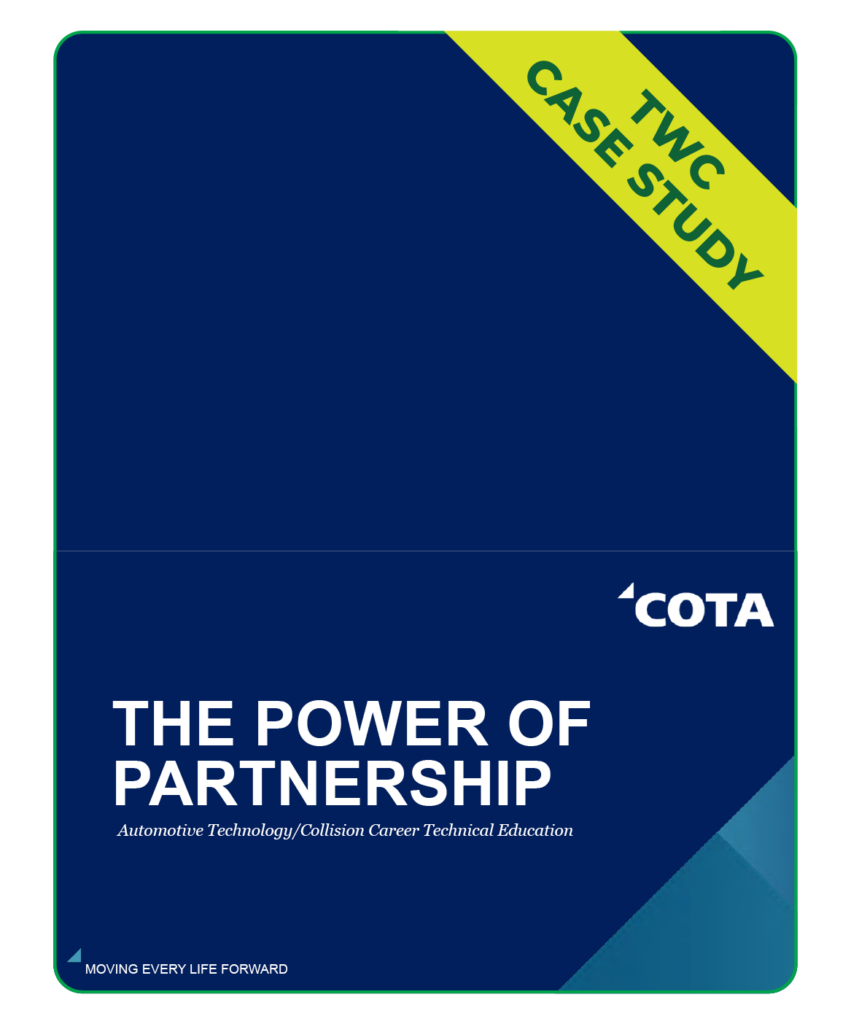
The Power of Partnership: Automotive Technology/Collision Career Technical Education Program
This multimedia case study details an internship program developed by the Central Ohio Transit Authority (COTA) and Transport Workers Union (TWU) Local 208. This resource contains a brief written summary, presentation slides, and video of a COTA-TWU Local 208 presentation. The entire June 7, 2022 TWC webinar, Recruiting and Developing Today’s Transit Workforce, can be found here. The complete webinar recording includes a question and answer session, beginning at 51:53, that covers more detail on this and other recruitment initiatives.
Transit Workforce Center; Central Ohio Transit Authority (COTA); Transport Workers Union Local 208
June 2022
To meet its need for vehicle maintenance technicians, COTA leadership partnered with TWU Local 208 and Columbus City Schools to provide a Vehicle Maintenance Internship Program, helping students already enrolled in an automotive program to develop additional technology competencies and prepare them for entry level positions. The COTA Vehicle Maintenance Internship Program provides career technical center high school students who have completed their junior year in a participating career-technical program the opportunity to work as paid interns in the Vehicle Maintenance Department at COTA. Students receive classroom training, hands-on training, laboratory experiences, and are partnered with mentors in preparation to enter the workforce as entry level automotive/collision technologies service technicians. From this foundation, COTA has now established a state-registered pre-apprenticeship and apprenticeship program to support vehicle technician hiring, retention, and workforce development.
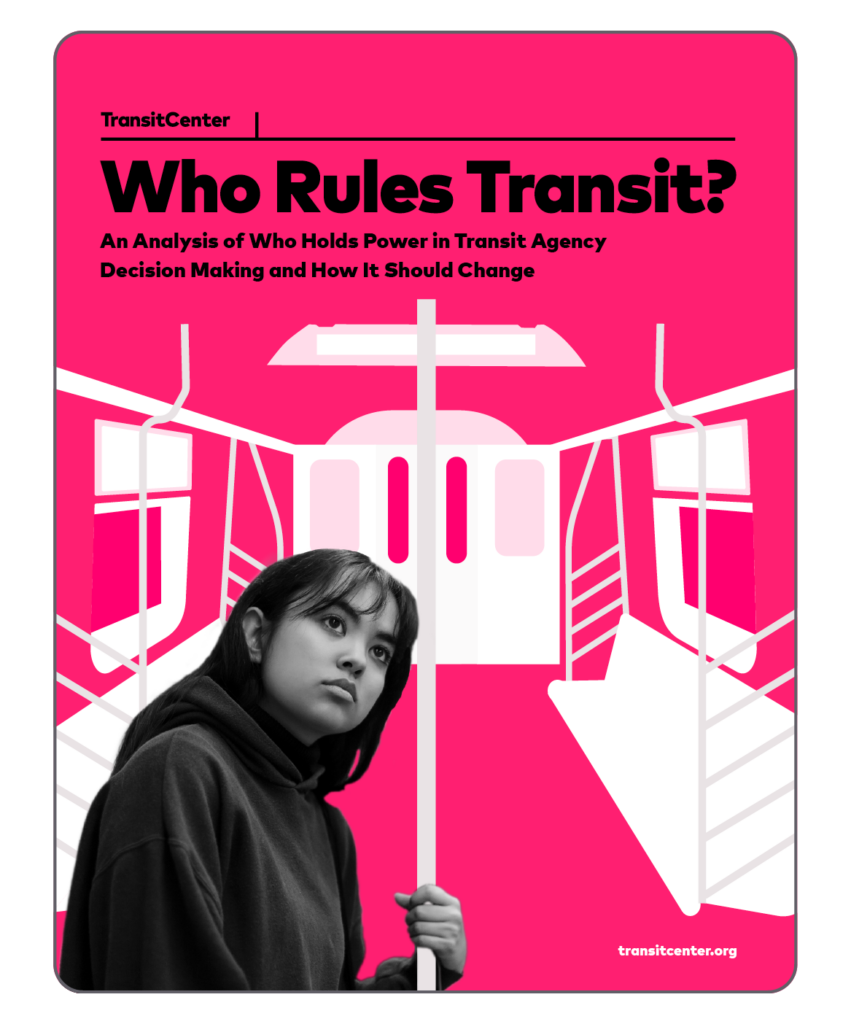
Who Rules Transit?
This report examines who makes key decisions at transit agencies and who is affected by these decisions. The report provides case studies of agencies that have taken steps to give transit riders and workers more power in the decision-making process.
TransitCenter
April 2022
TOPICS: Community Engagement , Policy and Planning
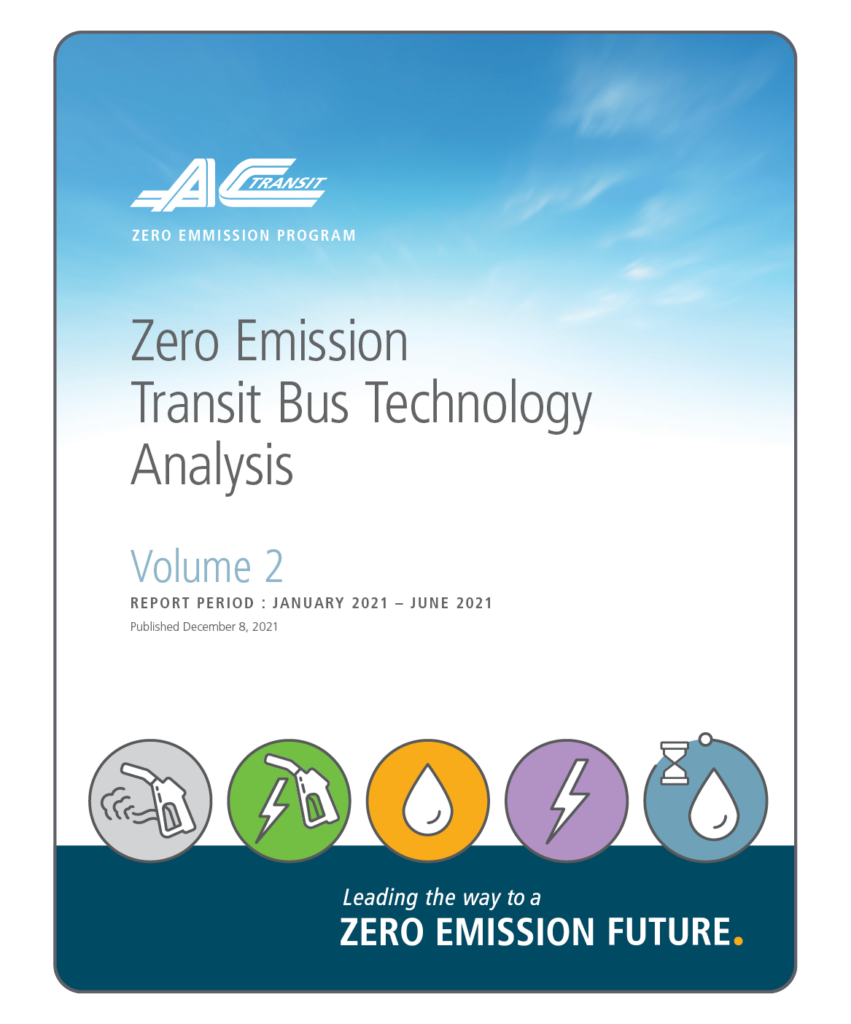
Zero Emission Transit Bus Technology Analysis Volume 2
This report, Volume 2, is the second edition of the Zero Emission Transit Bus Technology Analysis (ZETBTA) which includes results from the fuel-cell electric bus (FCEB), battery electric bus (BEB), diesel hybrid bus, and conventional diesel bus technologies control fleet. It integrates lessons learned and best practices gleaned from AC Transit’s extensive experience in deploying ZEB technologies, including developing innovative workforce training programs, data integration and management, and transit deployment viability.
AC Transit
December 2021
TOPICS: Low-No , Procurement , Training
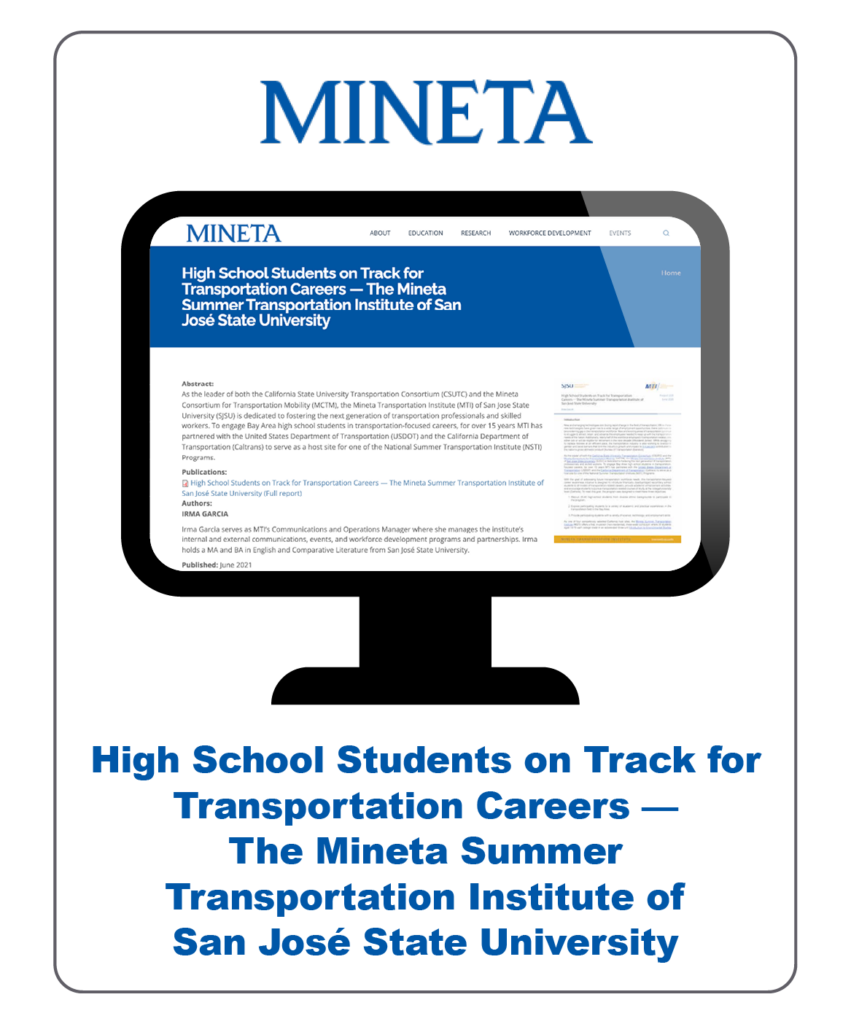
High School Students on Track for Transportation Careers
Mineta Transportation Institute
June 2021
TOPICS: Career Pathways , Community Engagement , Policy and Planning
This report provides an overview of the Mineta Summer Transportation Institute, one of the National Summer Transportation Institute (NSTI) Programs, which recruits high-school students, exposes them to a variety of academic and practical experiences in the transportation field in the Bay Area, and provides participating students with a variety of science, technology, and employment skills. The report shares program history, demographics, activities, etc.
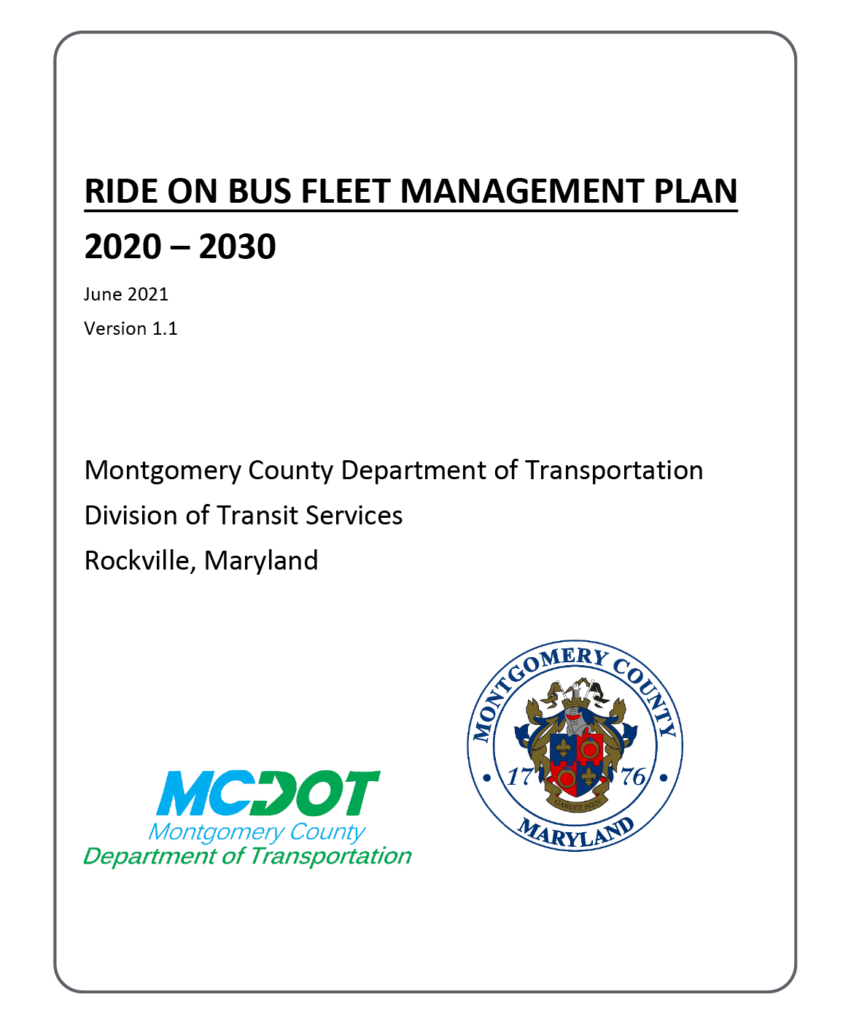
Montgomery County Bus Fleet Management Plan
The Montgomery County Bus Fleet Management Plan features a particularly in-depth zero-emission fleet transition plan, including implementation challenges associated with zero-emission buses and recommendations for fleet transition. The plan also dives into maintenance facilities, energy costs, and future infrastructure needs.
Montgomery County Department of Transportation
June 2021
TOPICS: Low-No , Policy and Planning
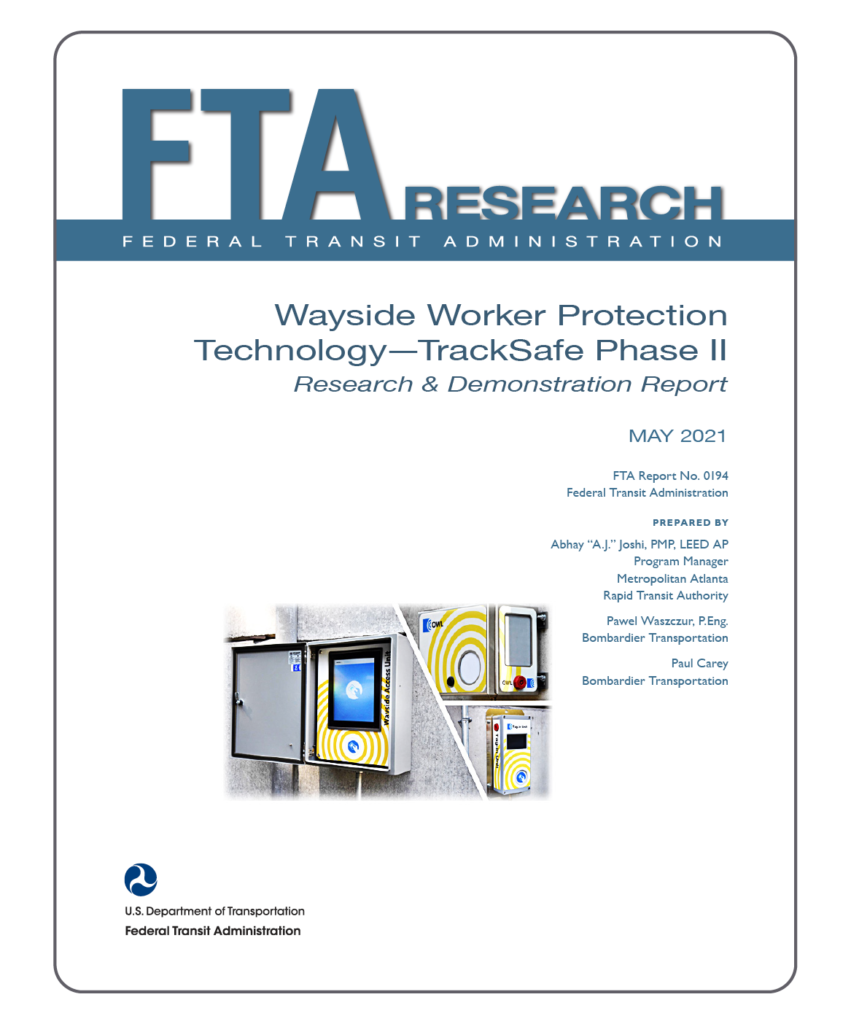
Wayside Worker Protection Technology—TrackSafe Phase II Research & Demonstration (Report 0194)
This report outlines research and demonstration of a roadway worker protection (RWP) warning technology developed by Bombardier Rail called TrackSafe. The system was installed at the Metropolitan Atlanta Rapid Transit Authority (MARTA) and was designed to reduce the hazards of working within a transit rail right-of-way (ROW).
Federal Transit Administration
May 2021
TOPICS: Policy and Planning , Safety and Health
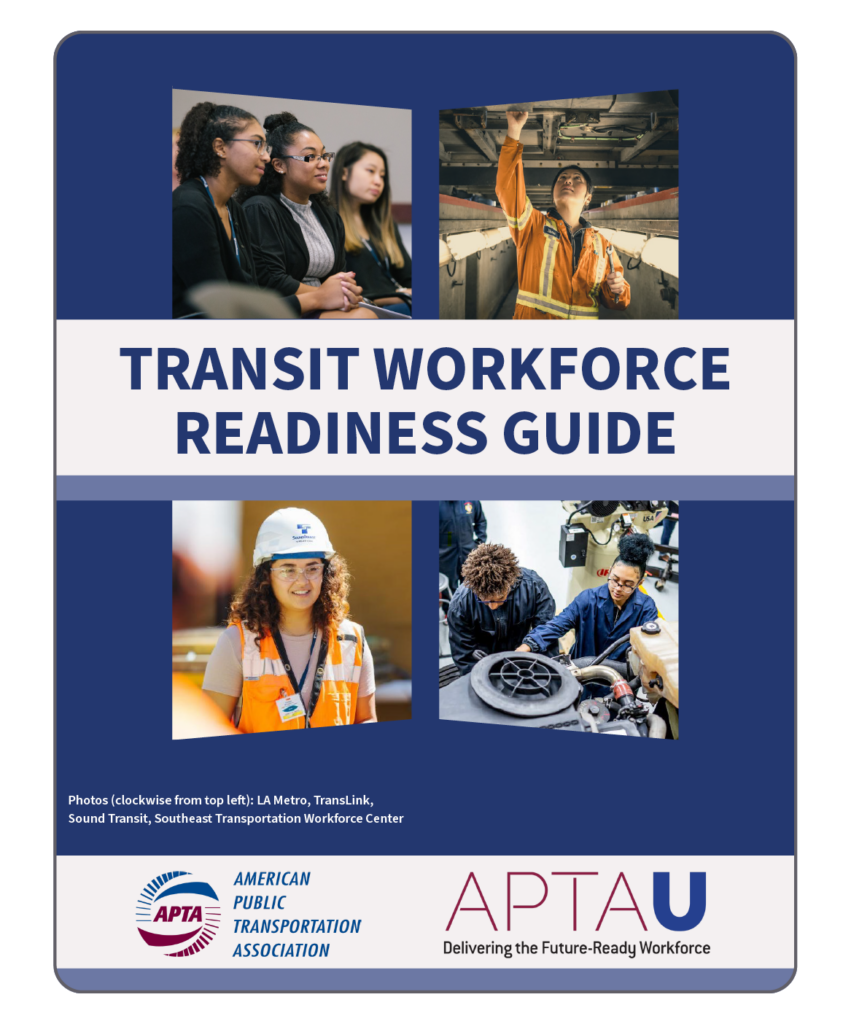
APTA Transit Workforce Readiness Guide
APTA’s Transit Workforce Readiness Guide is a highly interactive and easy-to-use online resource for executives and their staff to assist organizations in building a talent pipeline by attracting high school students into entry-level transit positions.
American Public Transportation Association
March 2021
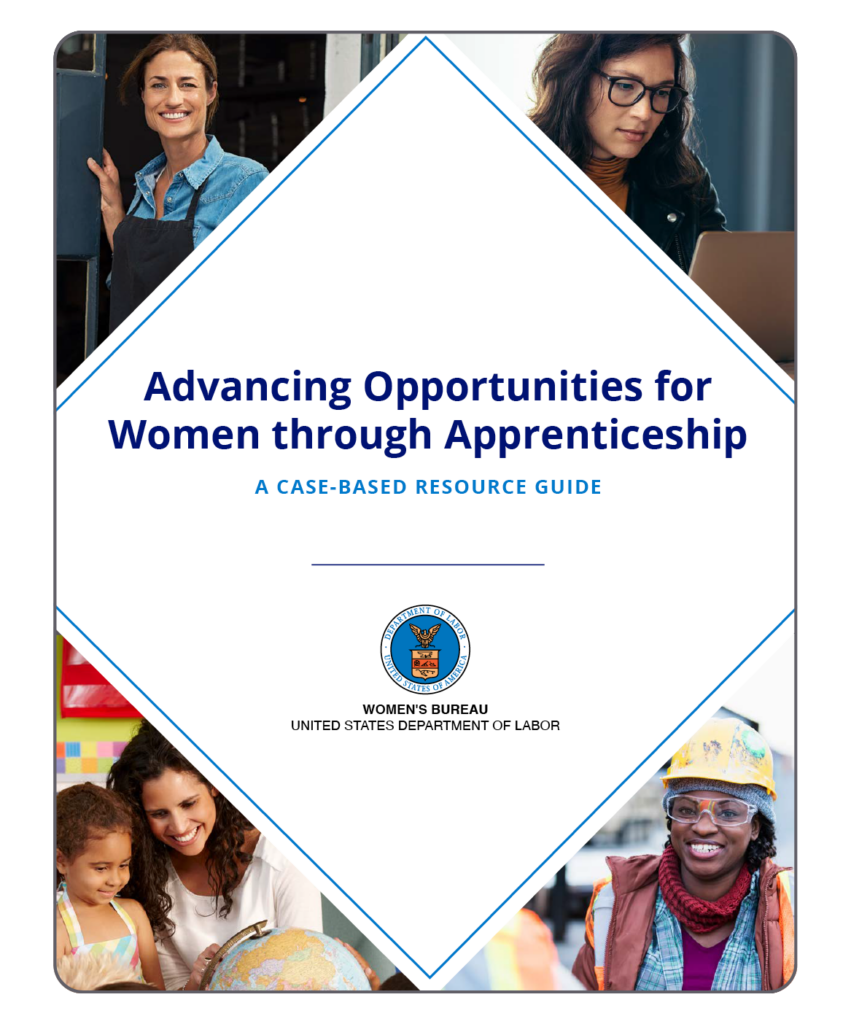
Advancing Opportunities for Women through Apprenticeship: A Case-Based Resource Guide
The Advancing Opportunities for Women through Apprenticeship case-based resource guide provides a framework for meaningful expansion of apprenticeship programs for women. The guide includes case studies on four high-quality pre-apprenticeship and apprenticeship programs in a range of industry sectors.
Department of Labor
TOPICS: Apprenticeship , Career Pathways , Community Engagement , Mentorship , Policy and Planning , Retention
The case studies were developed through on-site visits to the program locations; interviews with program staff, partners, and current and former participants; and a review of program materials and data. They provide information and insights related to partnership development, program design, and outcomes that outline how pre-apprenticeship and apprenticeship programs can help women access family-sustaining jobs and quality career pathways. The guide identifies common strategies across the four programs to help others learn how to create programs that successfully open pathways to in-demand jobs for women through apprenticeships.
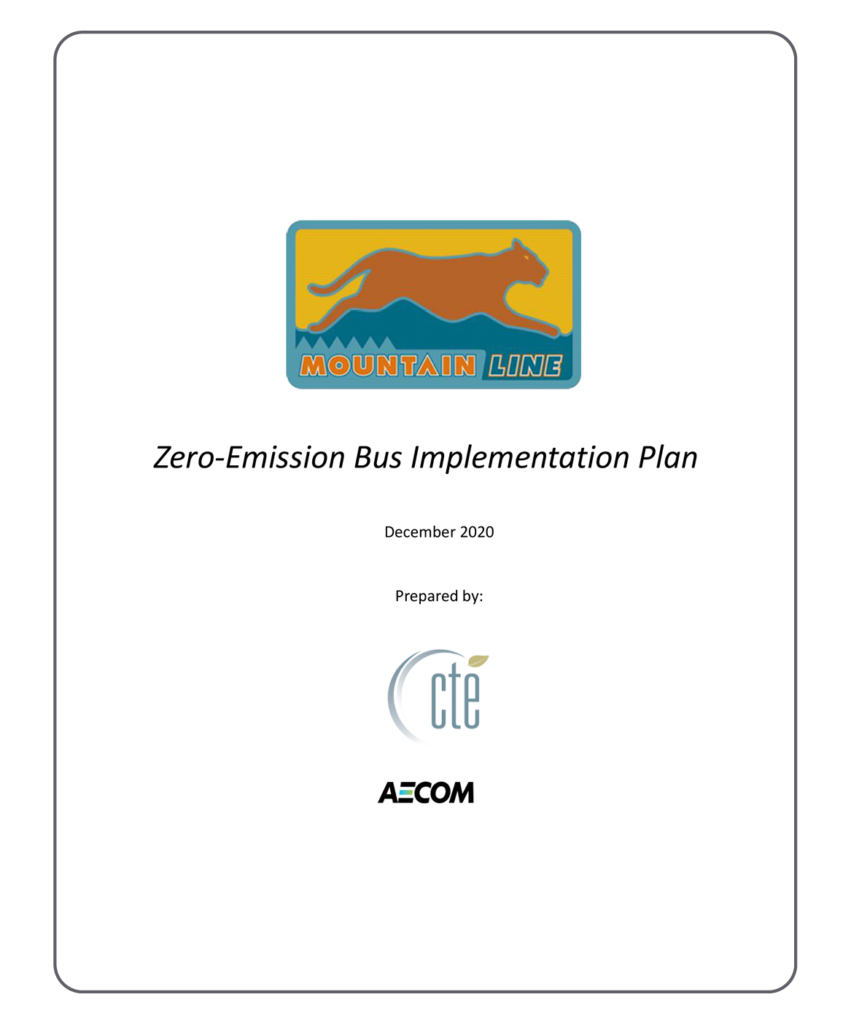
Mountain Line Zero-Emission Bus Implementation Plan
This is the Zero Emission Bus (ZEB) Implementation Plan prepared by the Northern Arizona intergovernmental Public Transportation Authority (referred to as Mountain Line) in contract with the Center for Transportation and the Environment (CTE) with the aim of identifying a zero-emission roadmap for full-scale deployment.
Center for Transportation and the Environment; AECOM
December 2020
TOPICS: Low-No , Procurement , Safety and Health , Training
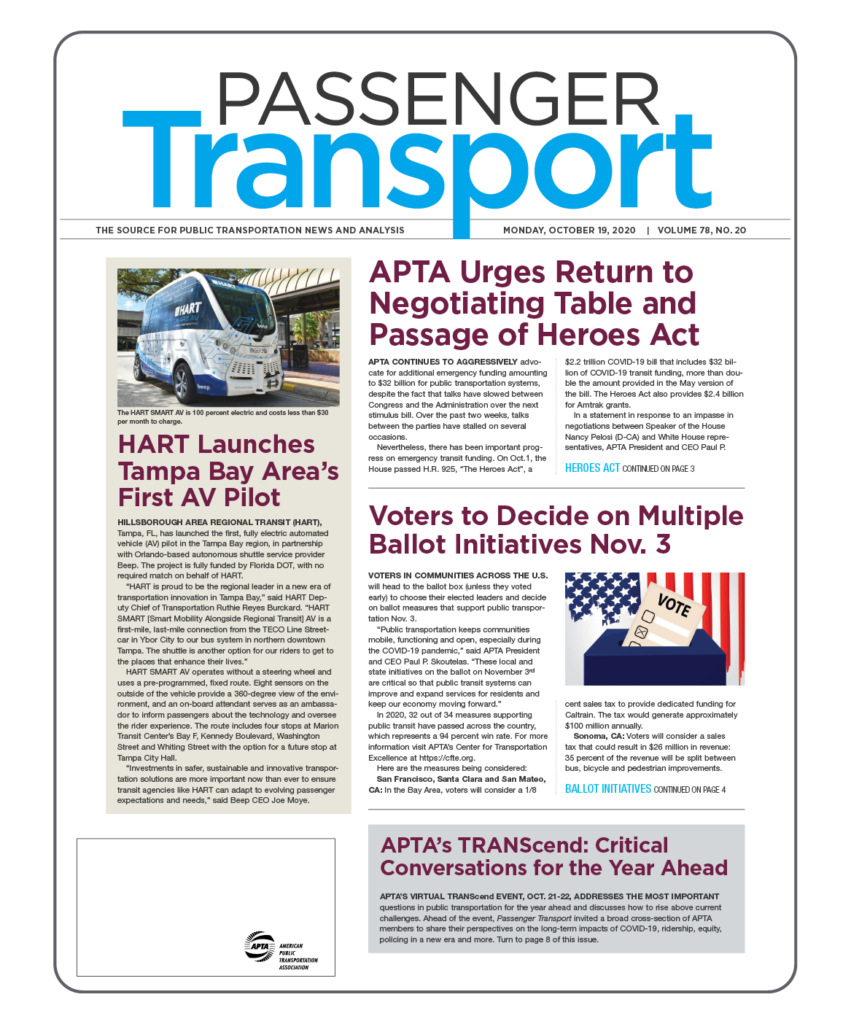
Transit Apprenticeship at Pierce Transit: From the Ground Up
This article in APTA’s Passenger Transport issue discusses the apprenticeship program at Pierce Transit, which is part of a transit apprenticeship initiative and has received technical assistance in structuring their apprenticeship program as well as financial assistance to reimburse some training costs.
American Public Transportation Association; International Transportation Learning Center
October 2020
TOPICS: Apprenticeship , Training
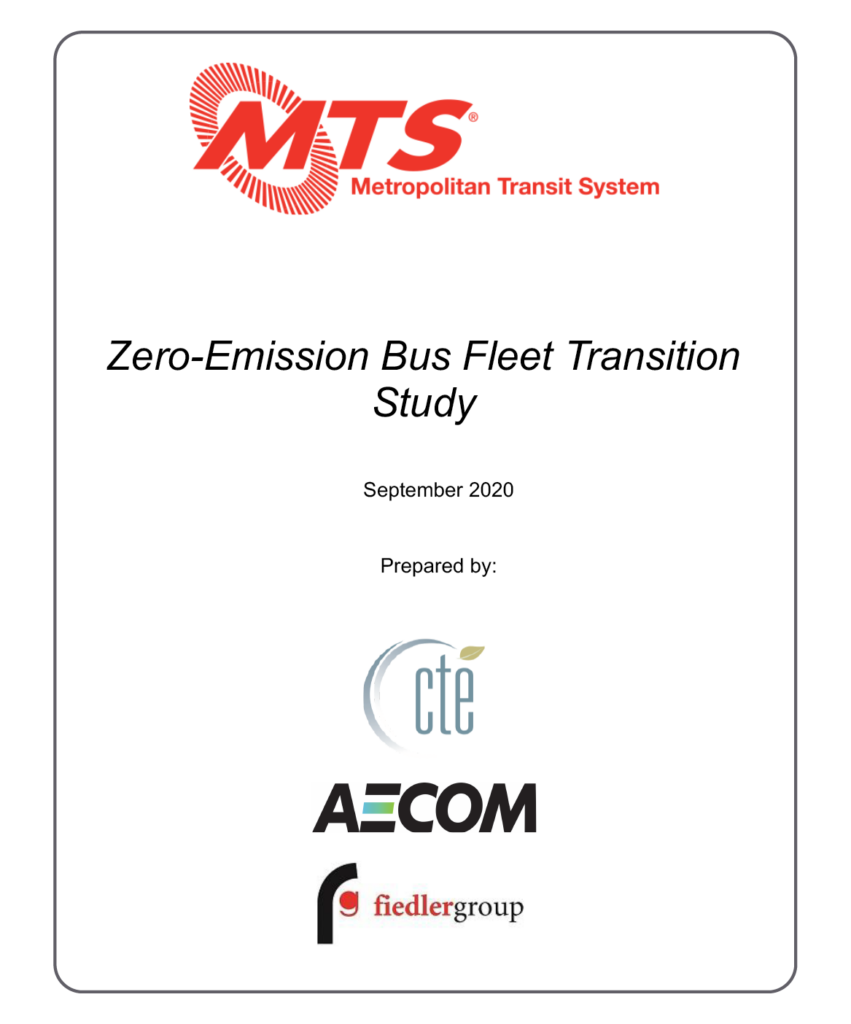
MTS Zero-Emission Bus Fleet Transition Study
This study, performed by the Center for Transportation and the Environment (CTE) for the San Diego Metropolitan Transit System (MTS), creates a plan for a 100% zero-emission fleet by 2040 to be in compliance with the Innovative Clean Transit (ICT) regulation enacted by the California Air Resources Board (CARB). The results of the study will be used to inform MTS Board members and educate MTS staff of estimated costs, benefits, constraints, and risks to guide future planning and decision making.
Center for Transportation and the Environment; AECOM; Fiedler Group
September 2020
TOPICS: Low-No , Policy and Planning
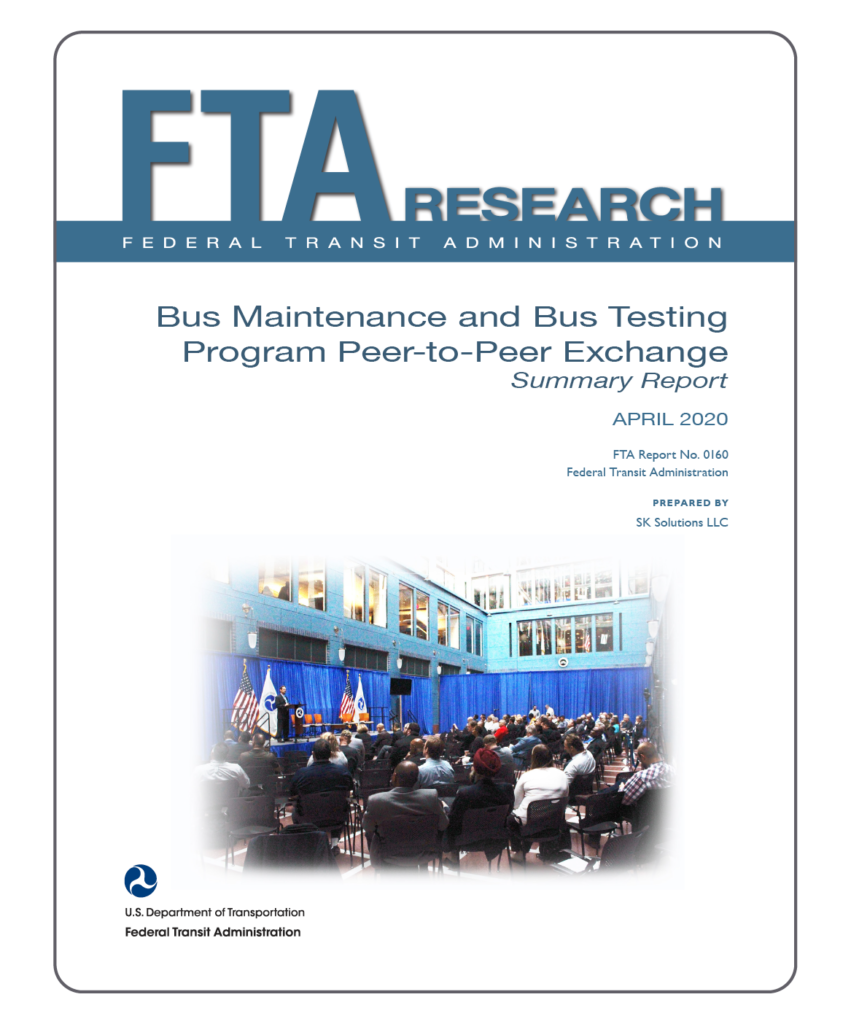
Bus Maintenance and Bus Testing Program Peer-to-Peer Exchange
This report presents a summary of the bus maintenance worker training peer exchange, hosted by the Federal Transit Administration (FTA). Significant shifts in the types of transit buses being procured (e.g., from traditional buses to alternative fuel/low- and no-emission buses) require new and different types of frontline worker training. Through the peer exchange, stakeholders, including industry representatives, shared knowledge about bus maintenance worker training and discussed best practices for developing the next generation of highly-skilled bus technicians.
Federal Transit Administration
May 2020
TOPICS: Hiring and Recruitment , Low-No , Policy and Planning , Procurement , Training
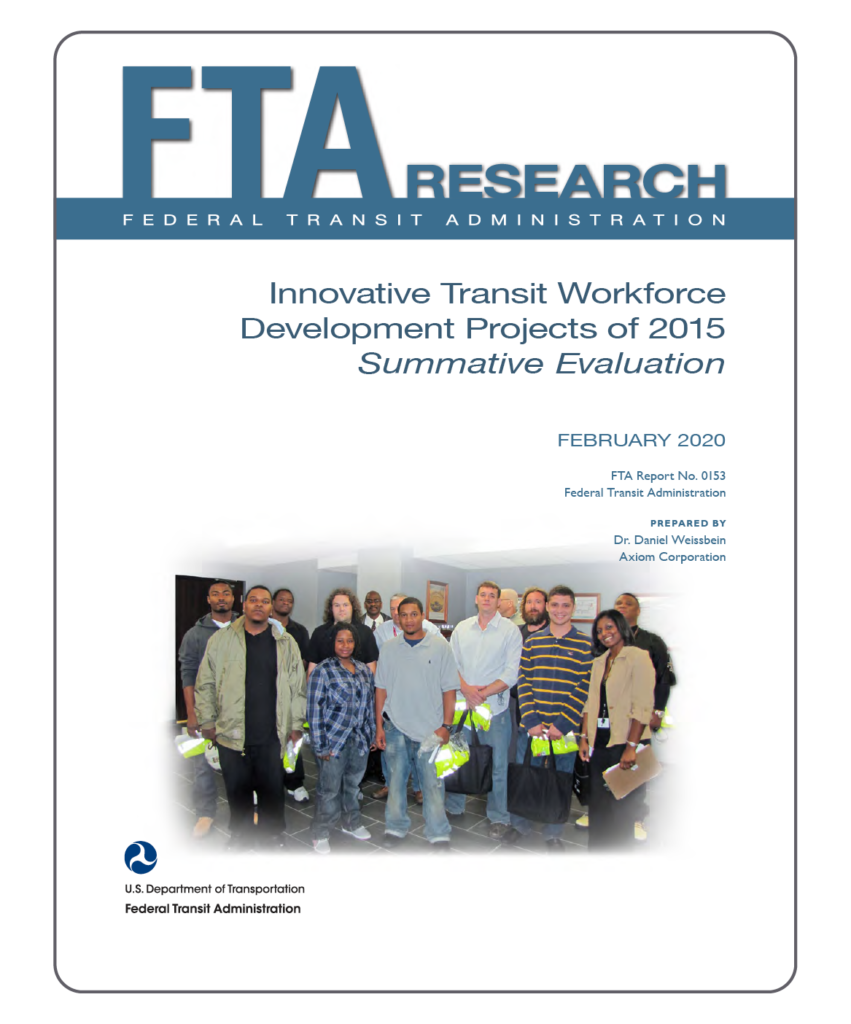
Innovative Transit Workforce Development Projects of 2015: Summative Evaluation
This report provides the results of an evaluation of Innovative Transit Workforce Development Program projects awarded in Fiscal Year 2015. Based on a competitive application process, FTA awarded 16 workforce development projects to transit authorities, higher education institutions, Native American tribes, and nonprofit organizations individually or as a consortium.
Federal Transit Administration
February 2020
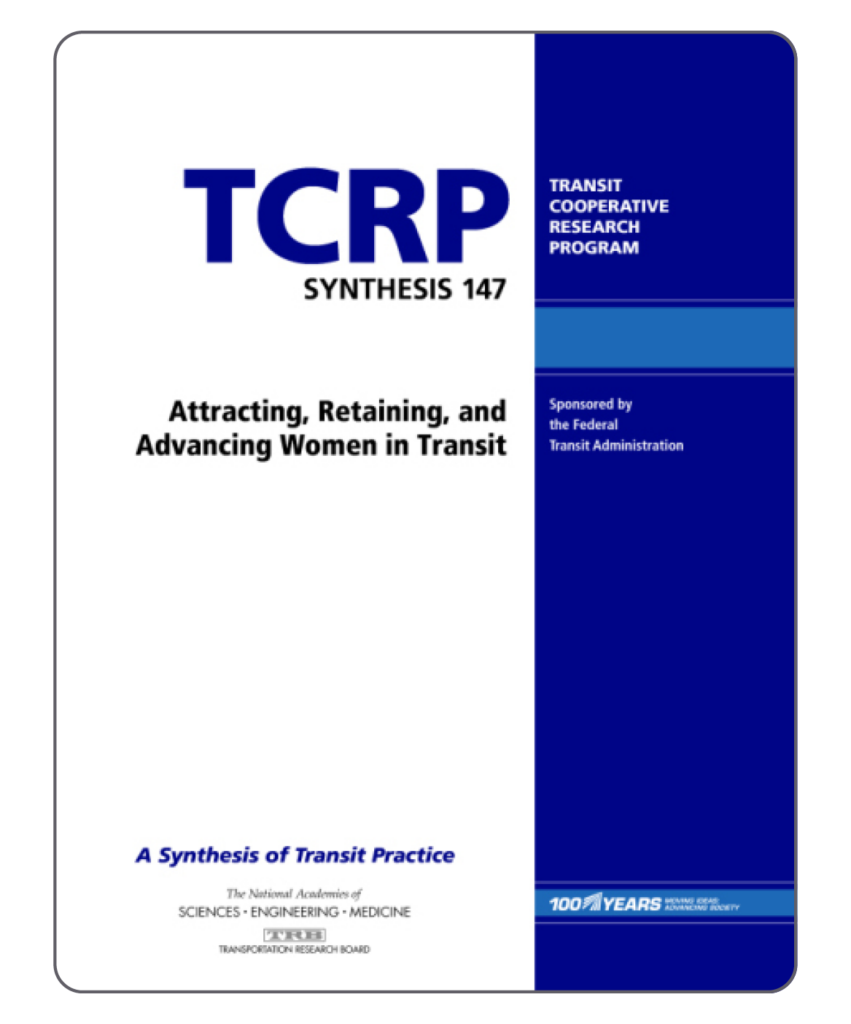
Attracting, Retaining, and Advancing Women in Transit
This TCRP report explores the strategies that have been deployed in transit and other related industries in order to attract, retain, and advance women in a variety of roles. It includes a survey and case studies from several major transit agencies.
Transit Cooperative Research Program
January 2020
TOPICS: Community Engagement , Hiring and Recruitment , Retention
Contributor(s): National Academies of Sciences, Engineering, and Medicine; Transportation Research Board; Transit Cooperative Research Program; ICF Allison Alexander
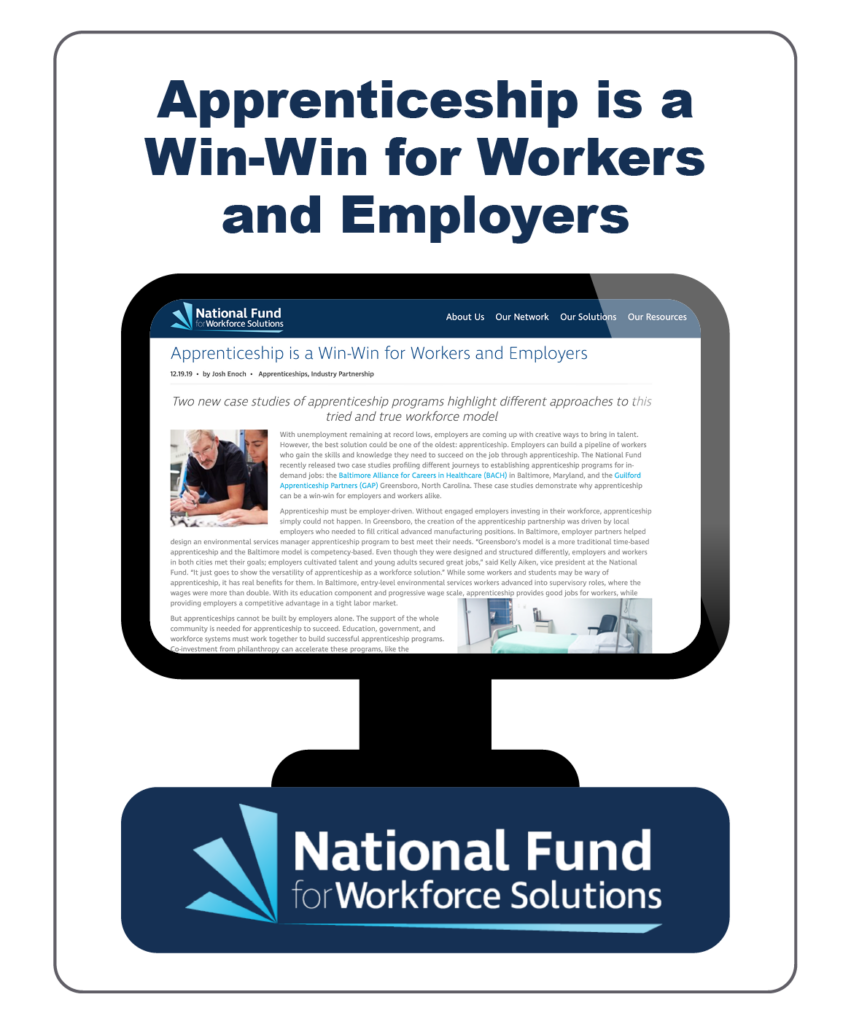
Apprenticeship is a Win-Win for Workers and Employers
These two case studies provide an analysis of apprenticeship programs at Baltimore Alliance for Careers in Healthcare (BACH) in Baltimore, Maryland, and the Guilford Apprenticeship Partners (GAP) in Greensboro, North Carolina. The case studies highlight the different approaches each organization used for their apprenticeship programs.
National Fund for Workforce Solutions
December 2019
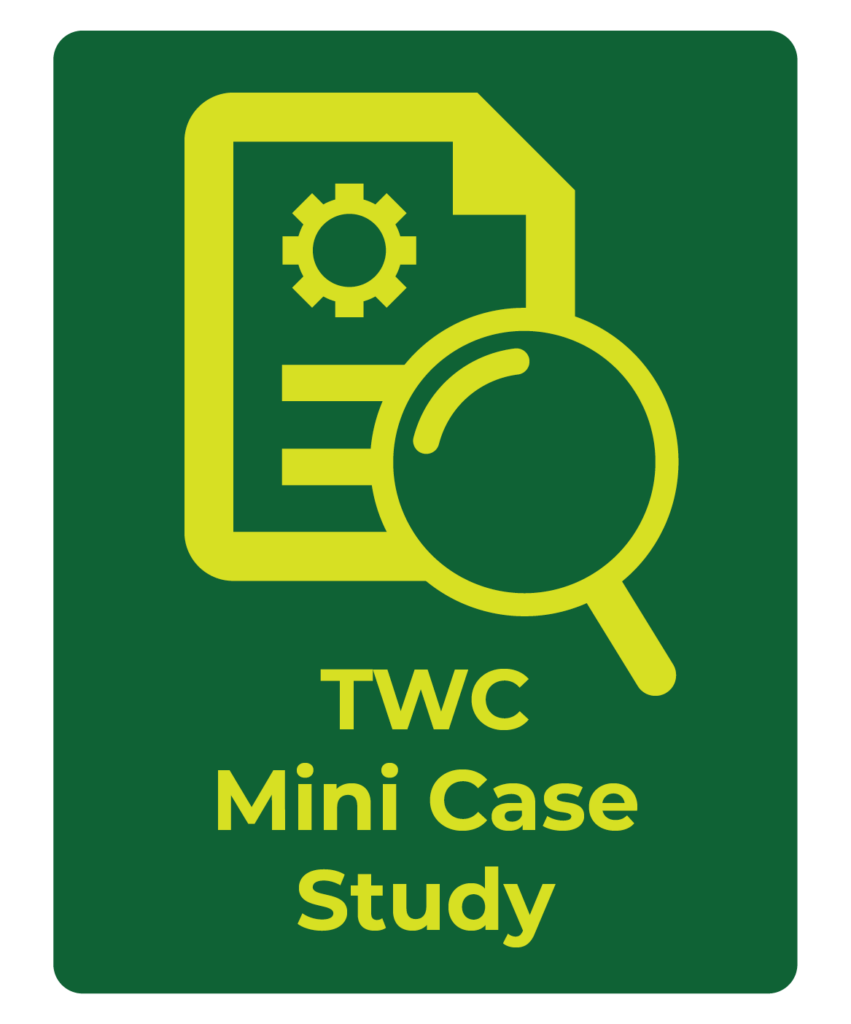
Emerging Leaders Presentation: Recruiting & Retaining Bus Operators
This slidedeck, from the APTA Emerging Leaders Program class of 2019 presentations, provides an overview of research and transit agency case studies to capture key themes on the topics of bus operator recruitment and retention.
American Public Transportation Association
December 2019
TOPICS: Career Pathways , Community Engagement , Hiring and Recruitment , Retention
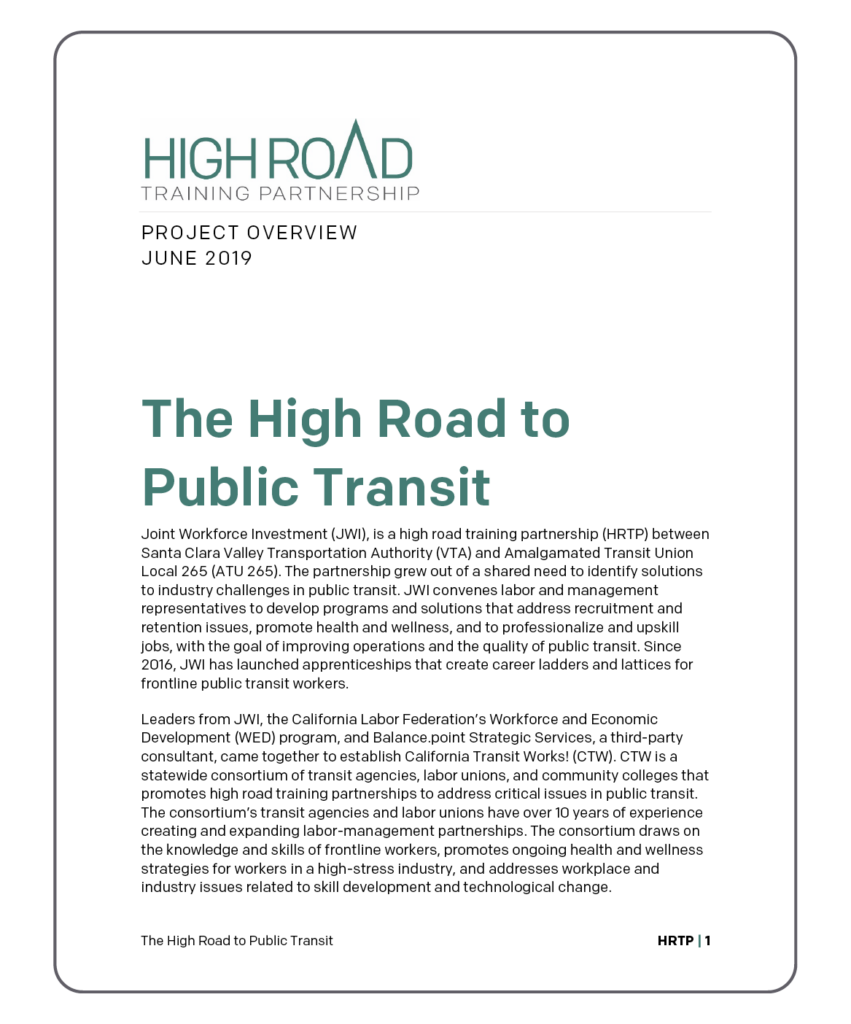
The High Road to Public Transit
This report provides a project overview of the high road training partnership (HRTP) in California between Santa Clara Valley Transportation Authority (VTA) and ATU Local 265 and the formation of California Transit Works (CTW).
California Workforce Development Board
June 2019
TOPICS: Apprenticeship , Labor-Management Partnerships , Mentorship
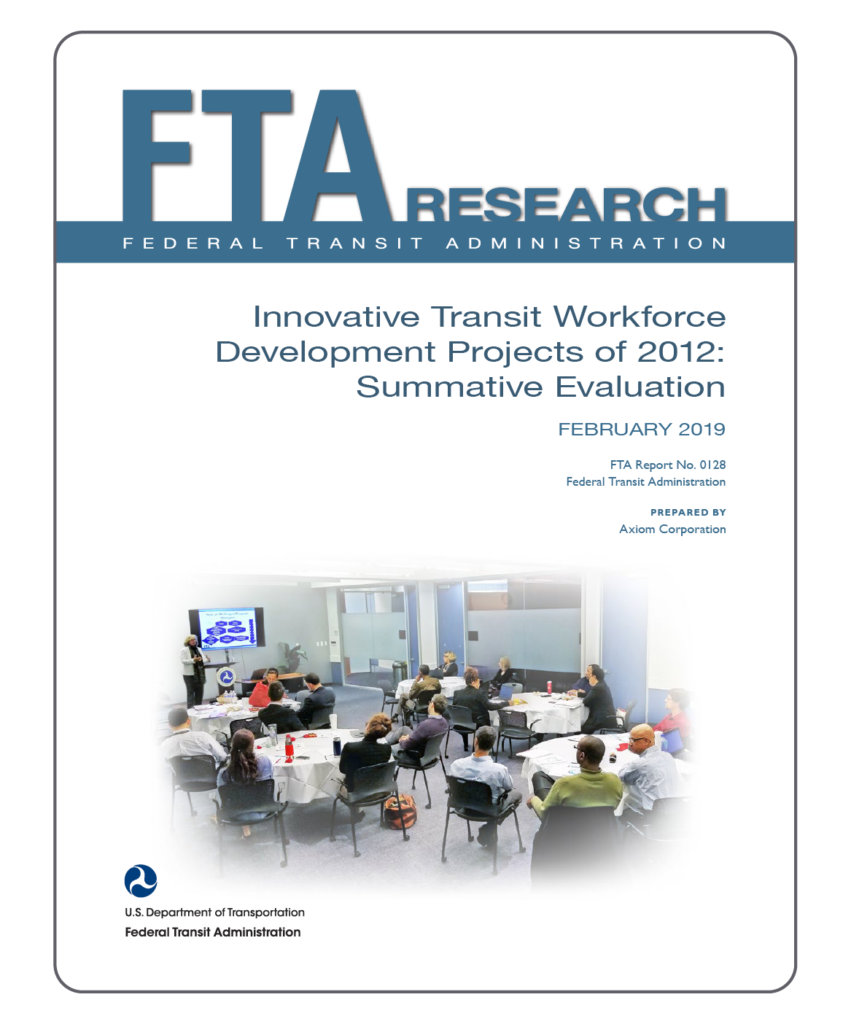
Innovative Transit Workforce Development Projects of 2012: Summative Evaluation
This report provides the results of the Innovative Transit Workforce Development Program Evaluation of projects awarded in Fiscal Year 2012. FTA awarded a total of $7,048,898 for 16 workforce development projects. Recipients included transit authorities, higher education institutions, Native American tribes, and nonprofit organizations.
Federal Transit Administration
February 2019
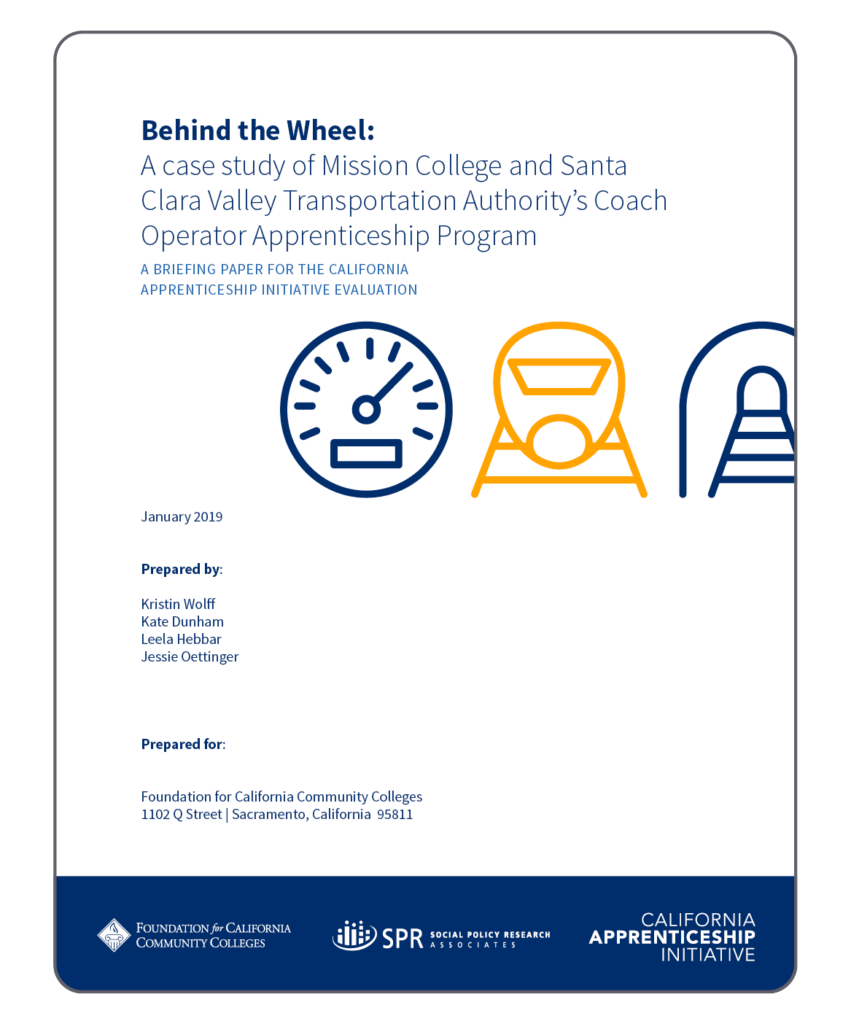
Behind the Wheel
This report, Behind the Wheel: A case study of Mission College and Santa Clara Valley Transportation Authority’s Coach Operator Apprenticeship Program, is part of the Social Policy Research Associates’ evaluation of the California Apprenticeship Initiative. The case study describes the development of the Coach Operator and Transportation Apprenticeship, including why the partners chose an apprenticeship model to meet their training needs, how the program was developed and structured, and what apprentices and employers report about their experiences in the program.
Foundation for California Community Colleges; Social Policy Research Associates
January 2019
TOPICS: Apprenticeship , Career Pathways , Hiring and Recruitment , Training
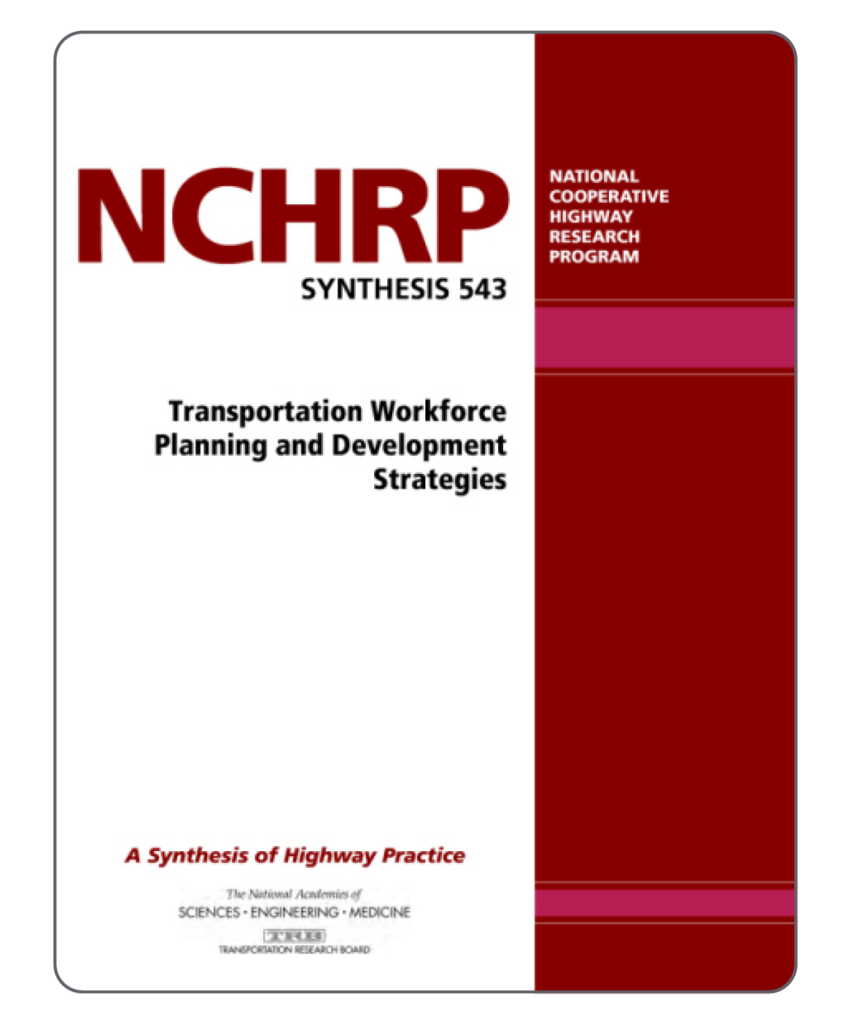
Transportation Workforce Planning and Development Strategies
This report is a synthesis of the current state of practice associated with the implementation of transportation workforce planning and development strategies at state departments of transportation (DOTs) and associated local and tribal technical assistance programs (LTAPs/TTAPs). The synthesis includes a literature review and survey results of both state DOTs and LTAPs, as well as case studies of five state DOTs, presenting an in-depth analysis of processes and considerations, challenges, lessons learned, and keys to success.
National Cooperative Highway Research Program
January 2019
TOPICS: Policy and Planning
Contributor(s): National Academies of Sciences, Engineering, and Medicine; Transportation Research Board; National Cooperative Highway Research Program; Robert Puentes; Alice Grossman; Brianne Eby; Alex Bond
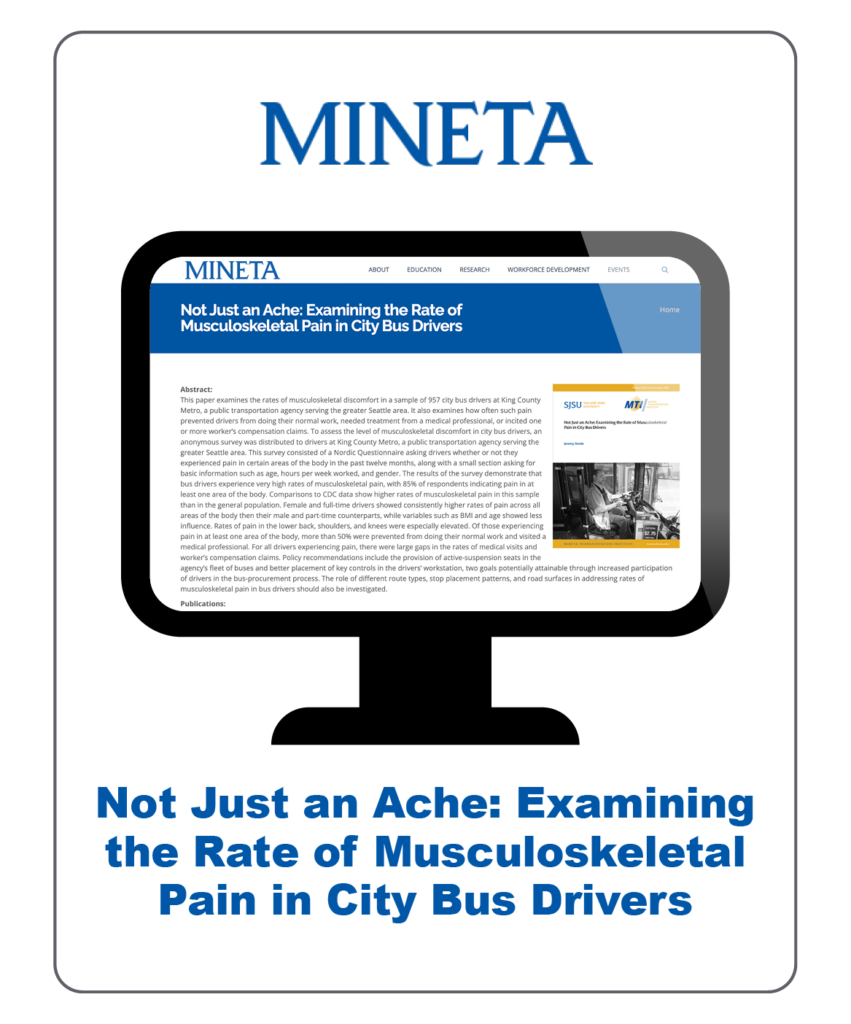
Not Just an Ache: Examining the Rate of Musculoskeletal Pain in City Bus Drivers
This paper examines the rates of musculoskeletal discomfort in a sample of 957 city bus drivers at King County Metro. The researchers conducted a survey demonstrate that city bus drivers experience very high rates of musculoskeletal pain in at least one area of the body. The paper includes policy recommendations, such as the provision of active-suspension seats in the agency’s fleet of buses and better placement of key controls in the drivers’ workstation, as well as considerations for further investigation.
Mineta Transportation Institute
November 2018
TOPICS: Policy and Planning , Safety and Health
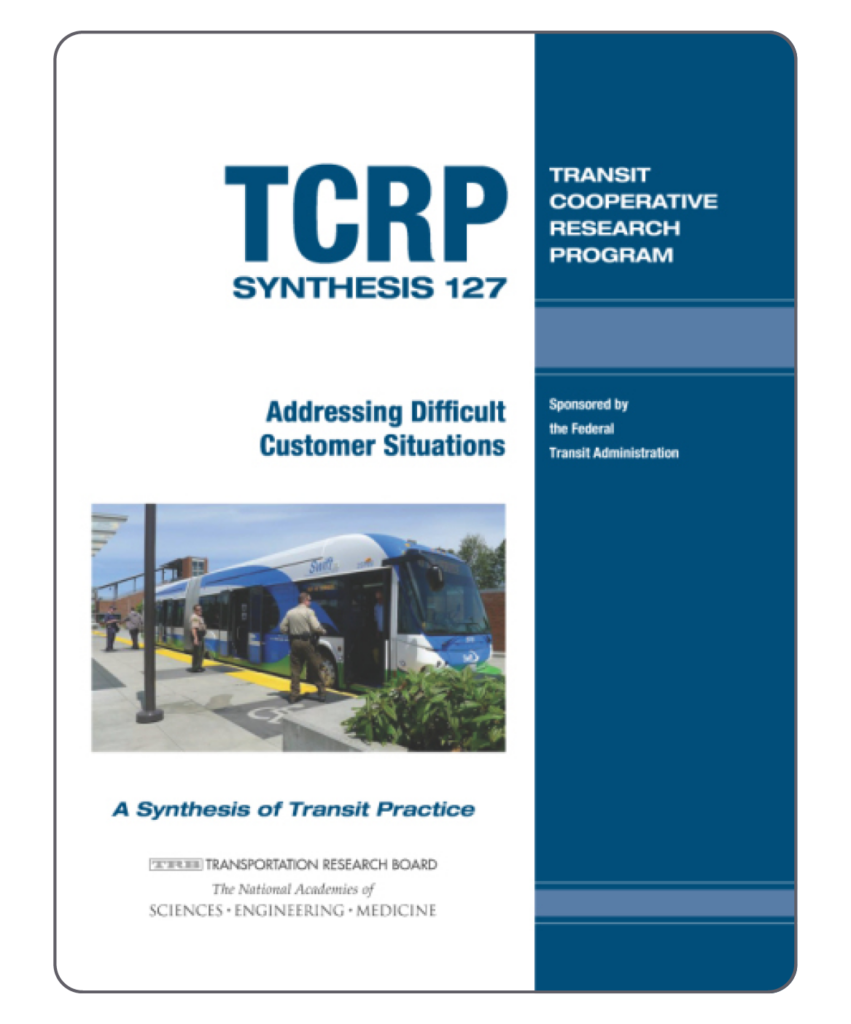
Addressing Difficult Customer Situations
This report considers issues surrounding difficult customers or passengers and the variety of circumstances that can arise when they utilize transit system facilities or vehicles. It identifies current practices used by transit agencies to prevent, prepare for, and deal with these incidents, including training programs for operators and other staff.
Transit Cooperative Research Program
March 2017
TOPICS: Policy and Planning , Safety and Health , Training
Contributor(s): National Academies of Sciences, Engineering, and Medicine; Transportation Research Board; Transit Cooperative Research Program Synthesis Program; Synthesis Program; Transit Cooperative Research Program; Joel M. Volinski
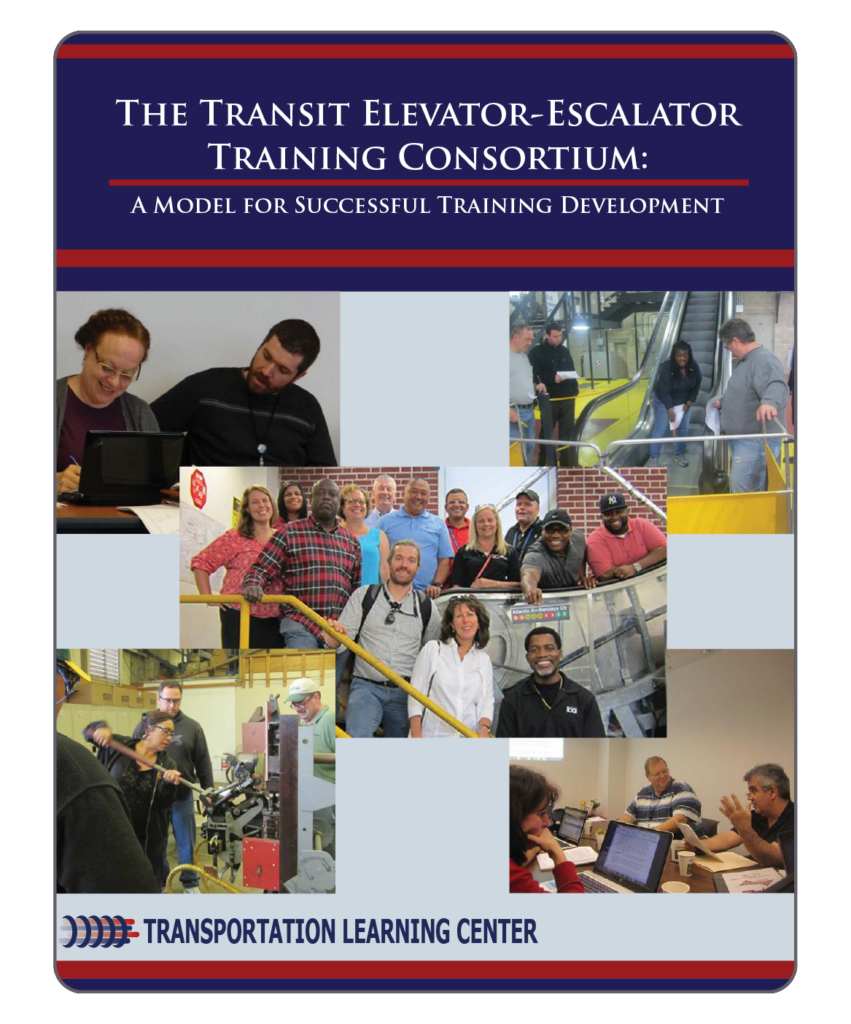
The Transit Elevator-Escalator Training Consortium: A Model for Successful Training Development
A report on the process, products and outcomes related to the first National consortium for development of training for public transportation maintenance employees. This joint labor-management effort set a proven model for multiple other similar consortia. Products include – instruction ready courseware, a nationally recognized apprenticeship program for transit maintenance elevator/escalator maintainers and train-the-trainer program.
International Transportation Learning Center
September 2016
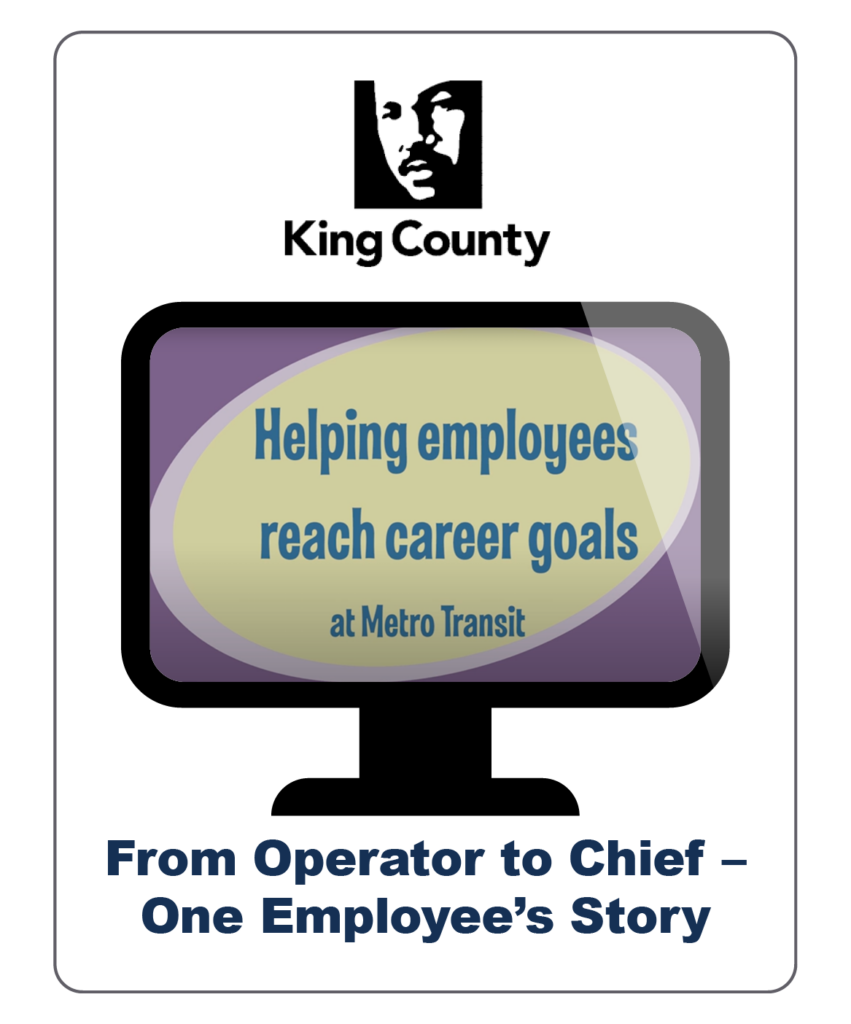
From Operator to Chief – One Employee’s Story
This video provides a description of King County DOT’s program for recruitment and advancement options for current employees, along with one employees’ story about how he was supported in his journey from bus operator to Base Chief.
King County Department of Transportation
October 2015
TOPICS: Career Pathways , Community Engagement , Hiring and Recruitment , Retention , Training
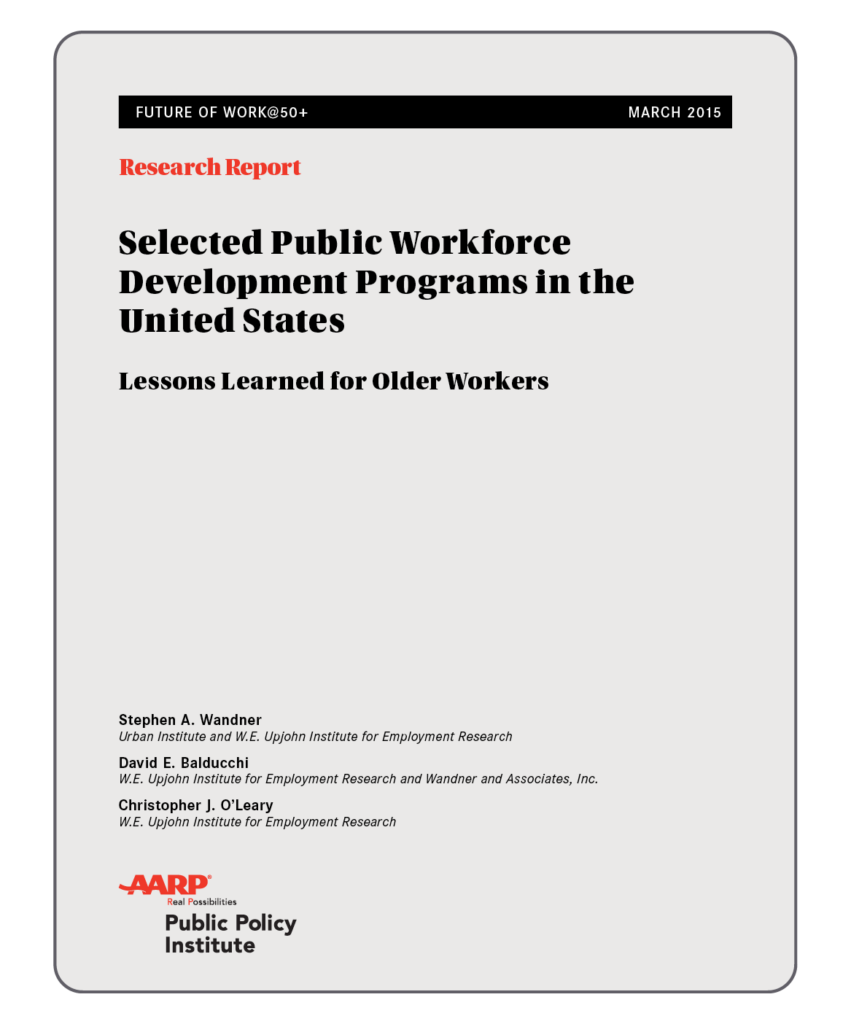
Selected Public Workforce Development Programs in the United States: Lessons Learned for Older Workers
This report provides a selective review of public workforce development programs in the United States over the past 80 years, placing special emphasis on the importance these programs have to older Americans. It discusses how the public workforce system developed, how it operates today, significant programs and target groups, common employment services and job training strategies, and what is known about program effectiveness.
American Association of Retired Persons
March 2015
TOPICS: Community Engagement , Policy and Planning
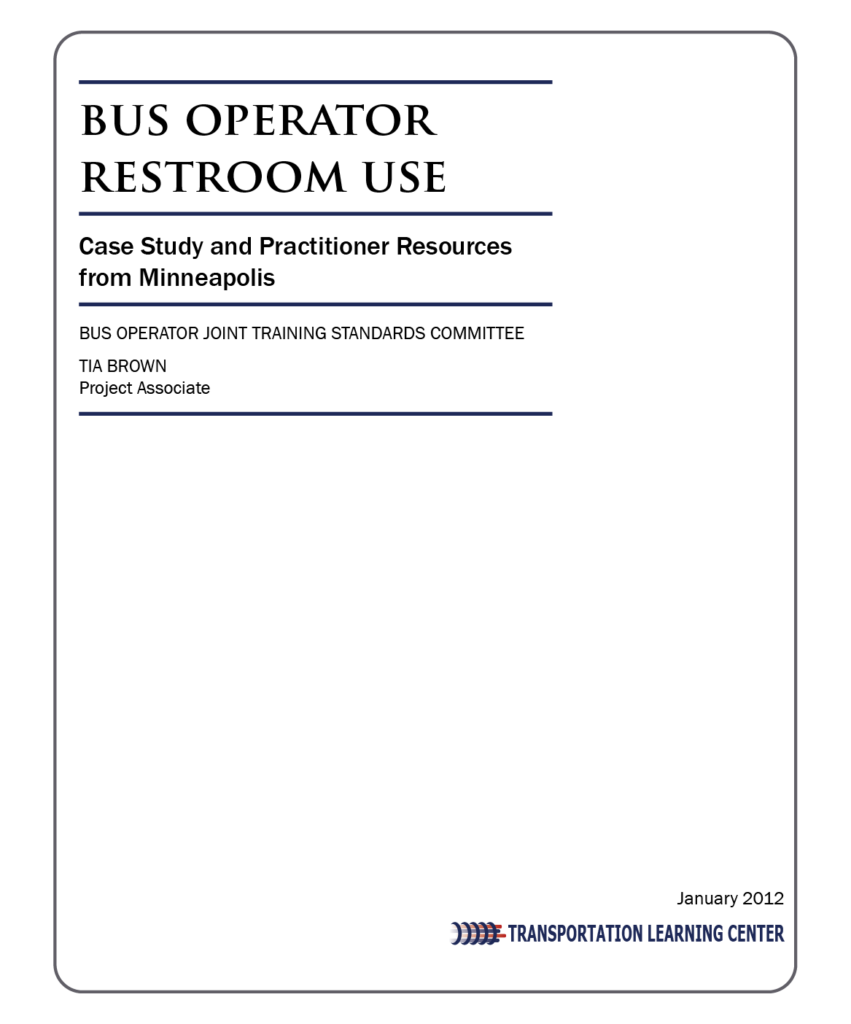
Bus Operator Restroom Use Case Study
In collaboration with the Bus Operator National Joint Training Standards Committee, the International Transportation Learning Center developed this Bus Operator Restroom Use report, a case study and compendium of practitioner resources on restroom use, including a history of restroom use policy at Minneapolis Metro Transit. The resources in this report also include a model community restroom licensing agreement, route-specific restroom locations chart, and example collective bargaining language.
International Transportation Learning Center
January 2012
TOPICS: Retention , Safety and Health , Training
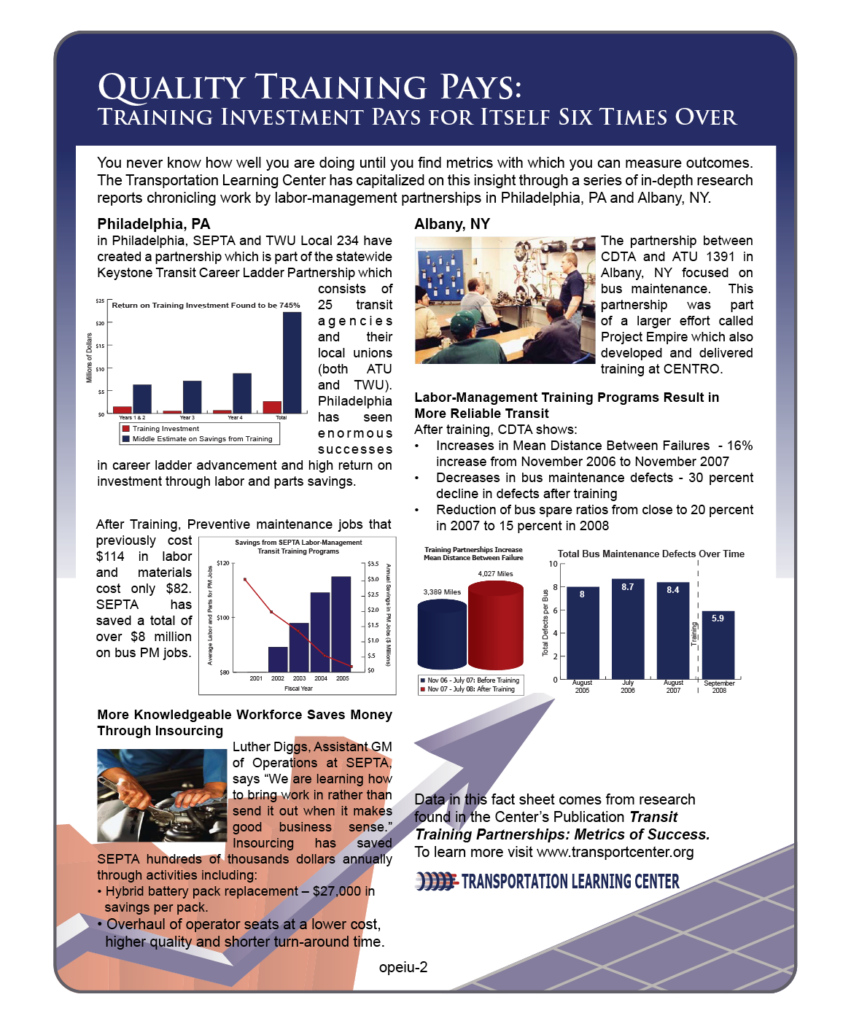
Quality Training Pays: Training Investment Pays for Itself Six Times Over
You never know how well you are doing until you find metrics with which you can measure outcomes. The Transportation Learning Center has capitalized on this insight through a series of in-depth research reports chronicling work by labor-management partnerships in Philadelphia, PA and Albany, NY. This fact sheet outlines these findings and shows a substantial return on training investment.
International Transportation Learning Center
June 2011
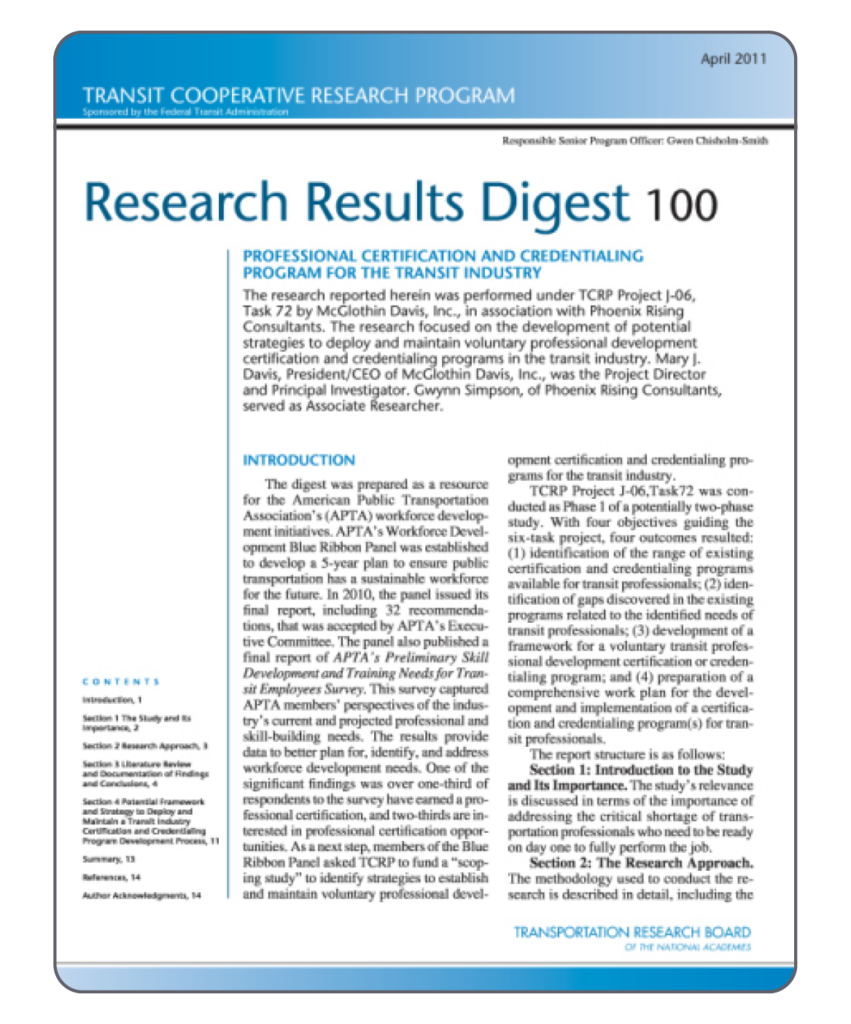
Professional Certification and Credentialing Program for the Transit Industry
TRB’s Transit Cooperative Research Program (TCRP) Research Results Digest 100: Professional Certification and Credentialing Program for the Transit Industry explores the findings of a literature review and a gap analysis of the efficacy of four transit-specific professional development programs. The report also examines potential strategies that might be used to deploy and maintain a transit industry certification and credentialing program.
Transit Cooperative Research Program (TCRP)
April 2011
TOPICS: Career Pathways , Policy and Planning , Retention , Training
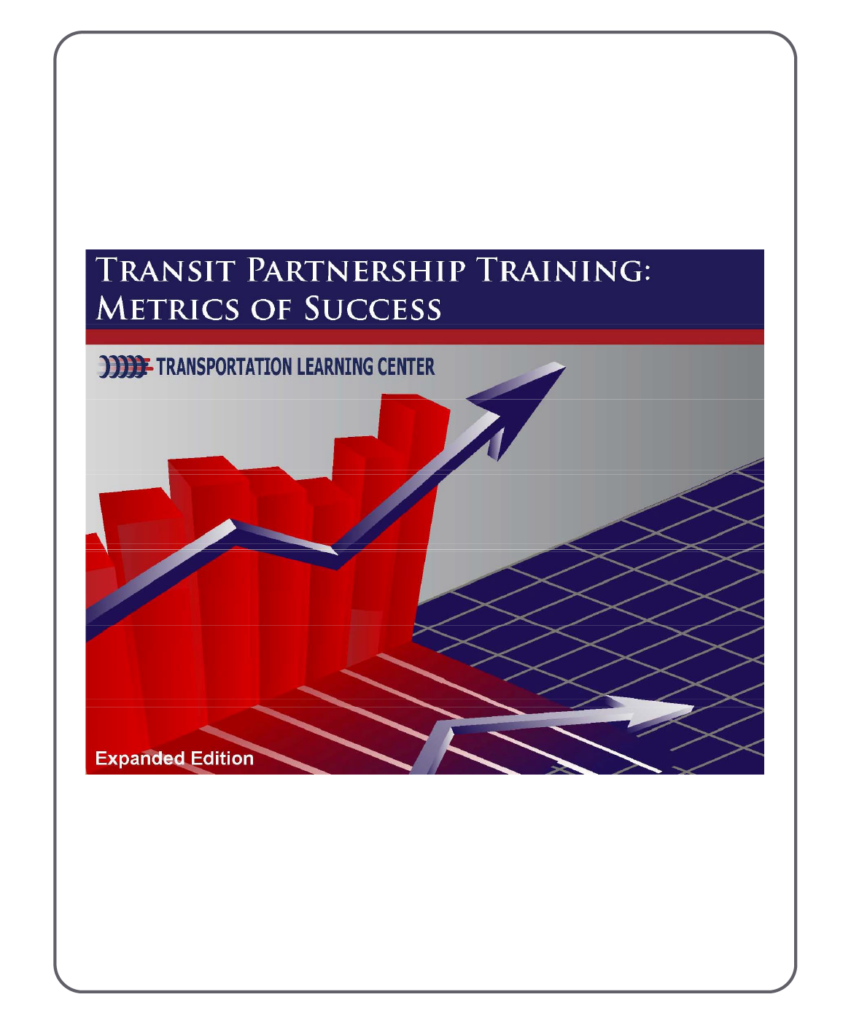
Transit Partnership Training: Metrics of Success
The Transit Partnership Training: Metrics of Success report is an overview of the key findings of the Metrics of Success series, which chronicles measurable outcomes, in particular return on investment, of transit training partnerships in which the International Transportation Learning Center has had a substantial role.
International Transportation Learning Center
February 2010
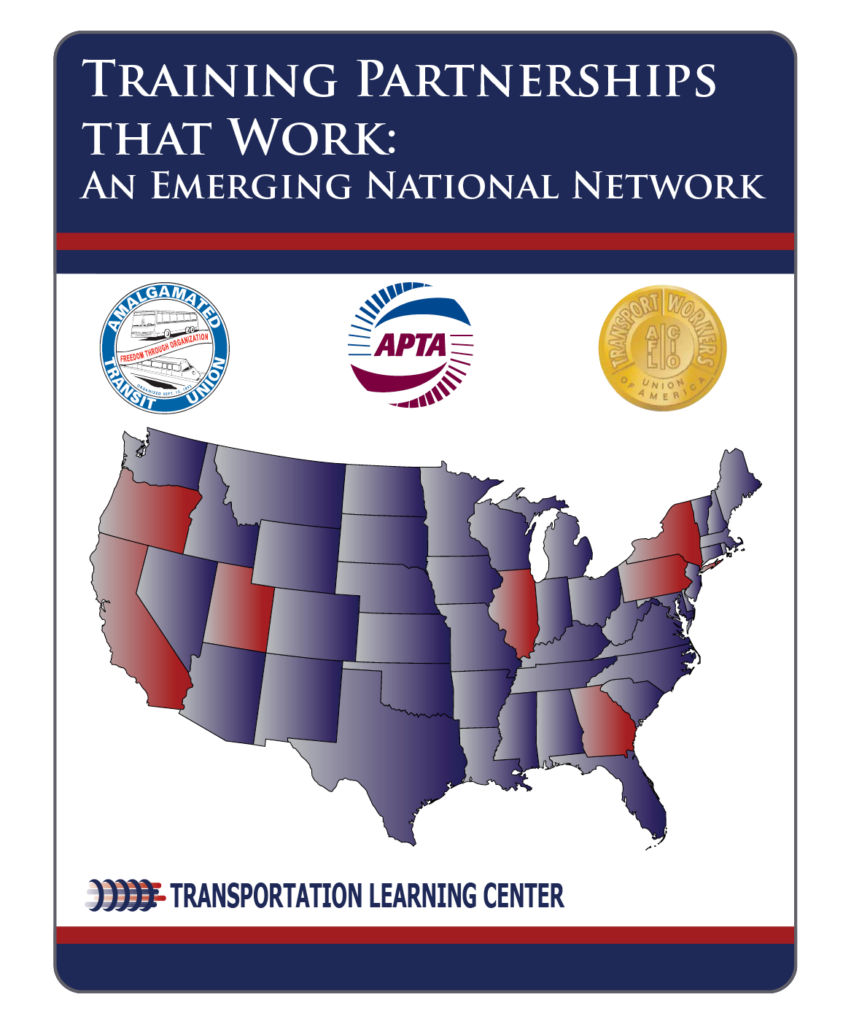
Training Partnerships That Work: An Emerging National Network
Training Partnerships That Work provides vivid summaries of successful labor-management training partnerships at sites across the country. The cases included here represent unique training partnerships. Most importantly, they illustrate how labor and management can work together successfully on issues of training, and provide valuable lessons for other industries facing the problem of retiring baby boomers and inadequate capacity to train replacement workers.
International Transportation Learning Center
February 2010
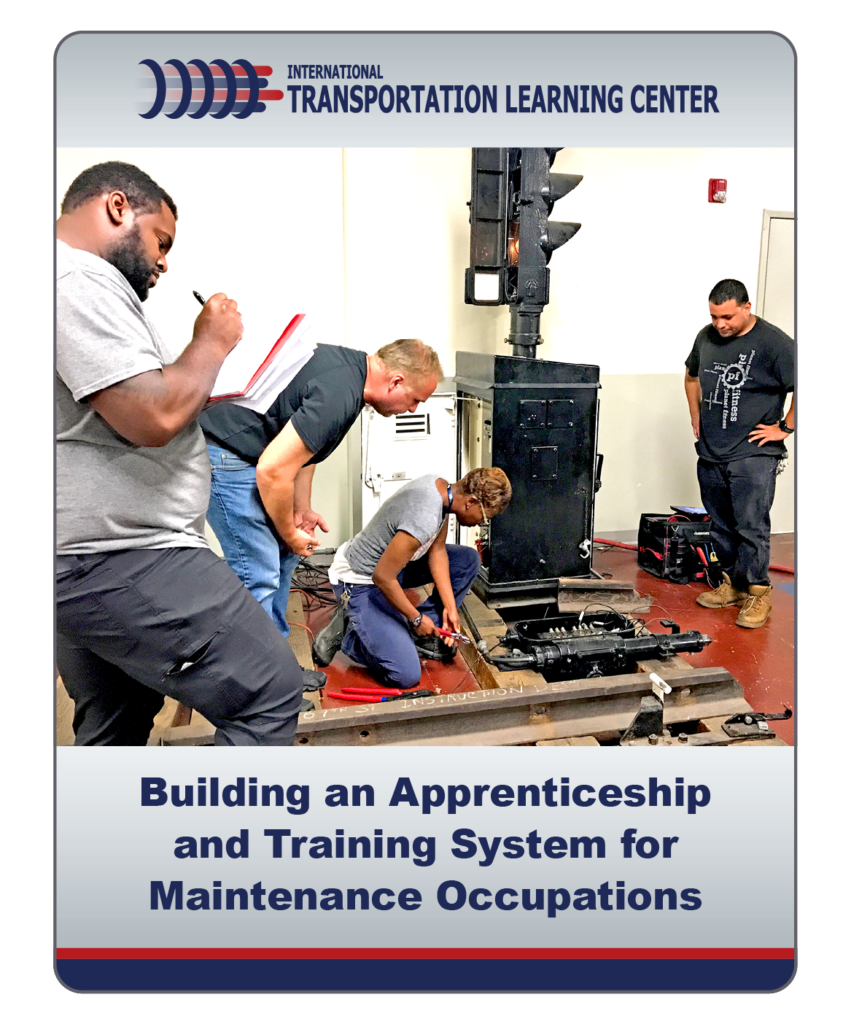
Building an Apprenticeship and Training System for Maintenance Occupations
This article discusses the joint training and apprenticeship system emerging in maintenance occupations in the American transit industry, as well as related challenges and strategies to overcome them. The article reports on early results, including efforts to develop a consensus national framework for apprenticeship and training in transit maintenance.
Written with Robert W. Glover, the University of Texas at Austin.
International Transportation Learning Center
January 2009
TOPICS: Apprenticeship , Career Pathways , Training
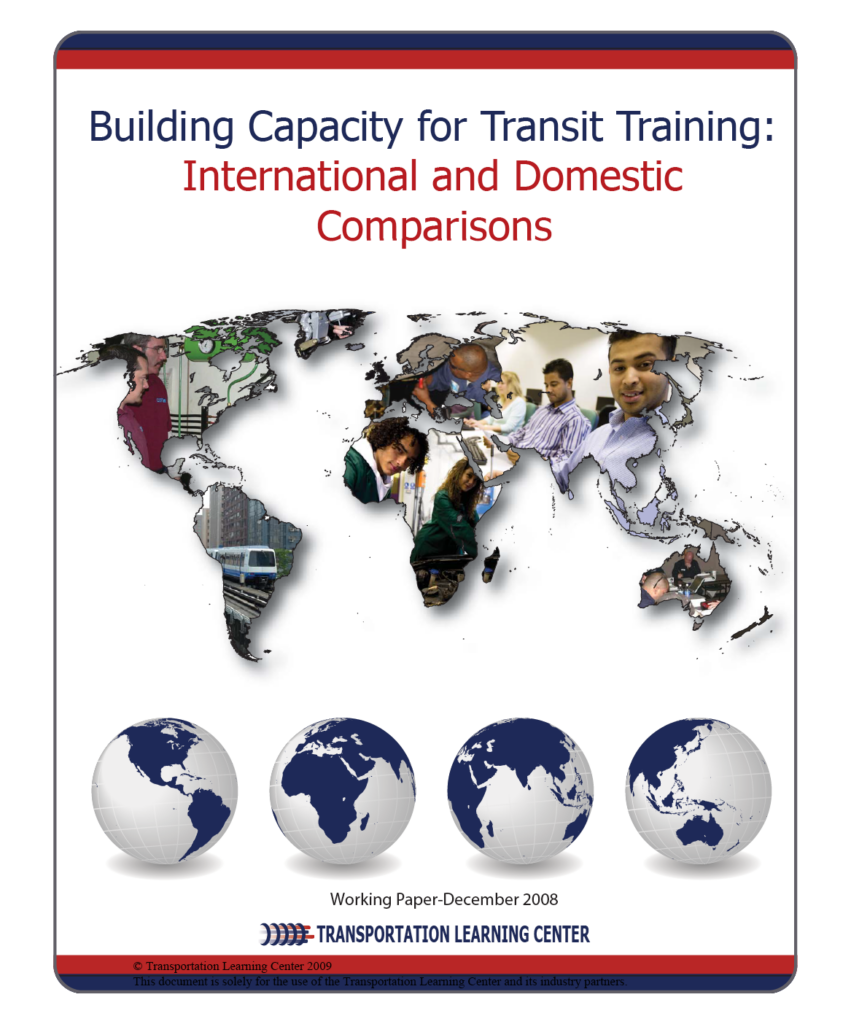
Building Capacity for Transit Training: International and Domestic Comparisons
This working paper provides an overview of the findings from research on strong industry-wide workforce development systems in six other countries and in several US industries. It identifies key features that could be adapted for use to create more effective US transit training.
International Transportation Learning Center
December 2008
TOPICS: Apprenticeship , Program Evaluation and ROI , Training
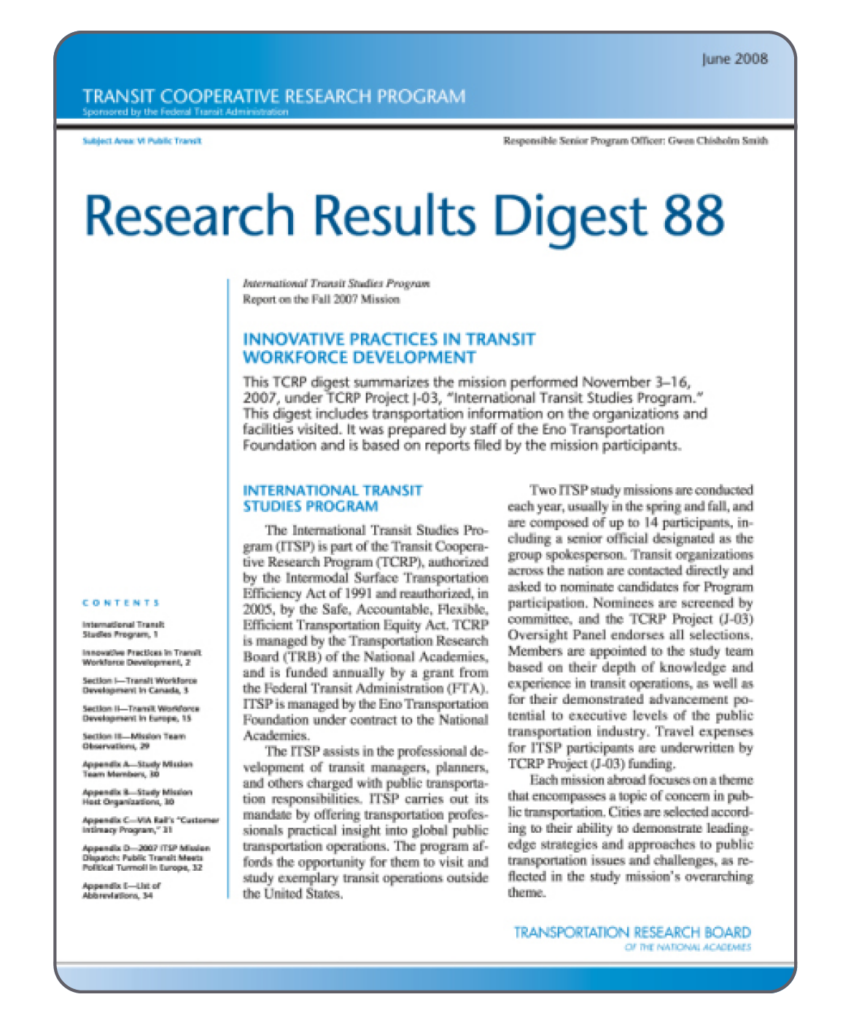
Innovative Practices in Transit Workforce Development
TRB’s Transit Cooperative Research Program (TCRP) Research Results Digest 88: Innovative Practices in Transit Workforce Development examines innovative practices in workforce development in several cities in Canada, France, and Belgium.
Transit Cooperative Research Program (TCRP)
June 2008
TOPICS: Hiring and Recruitment , Policy and Planning , Training
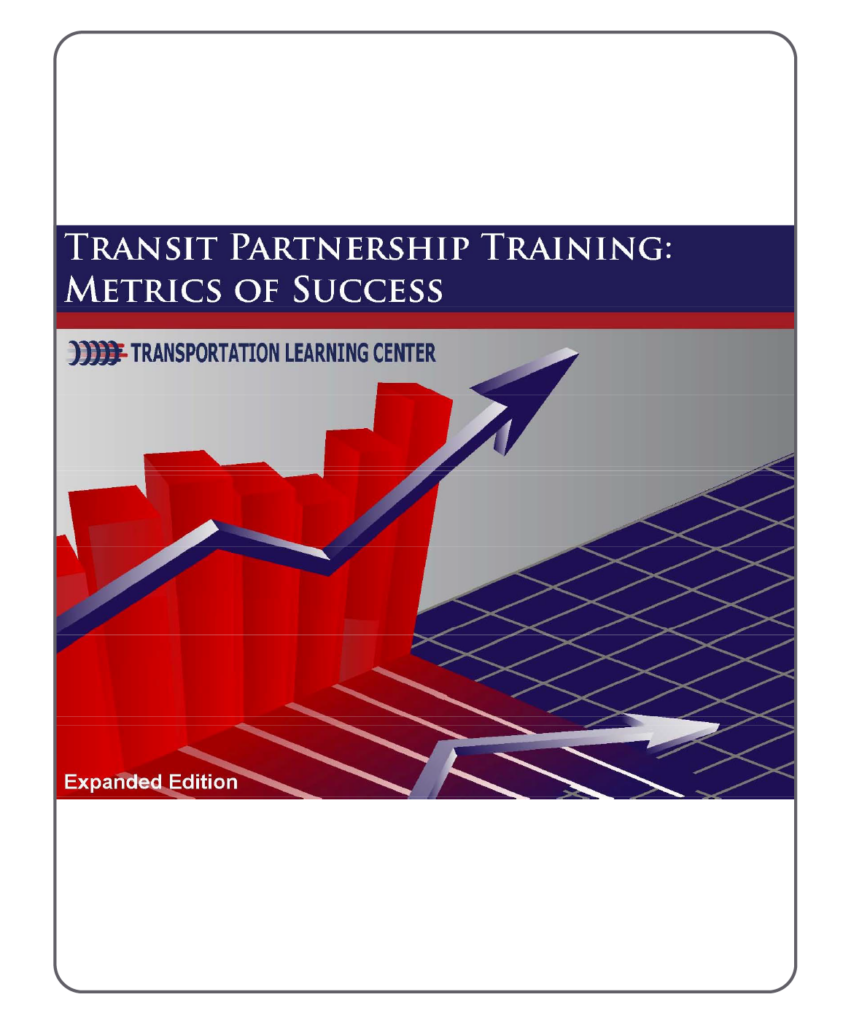
Metrics of Success Series
The Metrics of Success series chronicles measurable outcomes, in particular return on investment, of transit training partnerships in which the International Transportation Learning Center has had a substantial role. Each Metrics report focuses on quantitative data from a specific partnership, while Transit Partnership Training: Metrics of Success is an overview of key findings from all Metrics reports to date.
International Transportation Learning Center
May 2008
 Transit Partnership Training: Metrics of Success – Expanded Edition
Transit Partnership Training: Metrics of Success – Expanded Edition
 Smart Investment Partnership: New York State's Transit Workforce Training Proves its Worth
Smart Investment Partnership: New York State's Transit Workforce Training Proves its Worth
 Measuring Up: Keystone Training Partnership – Vol. 1
Measuring Up: Keystone Training Partnership – Vol. 1
 Measuring Up: Keystone Training Partnership – Vol. 2
Measuring Up: Keystone Training Partnership – Vol. 2
 Keystone – Making a Difference in Pennsylvania Transit
Keystone – Making a Difference in Pennsylvania Transit
 Keystone – Pennsylvania Transit on the High Road
Keystone – Pennsylvania Transit on the High Road
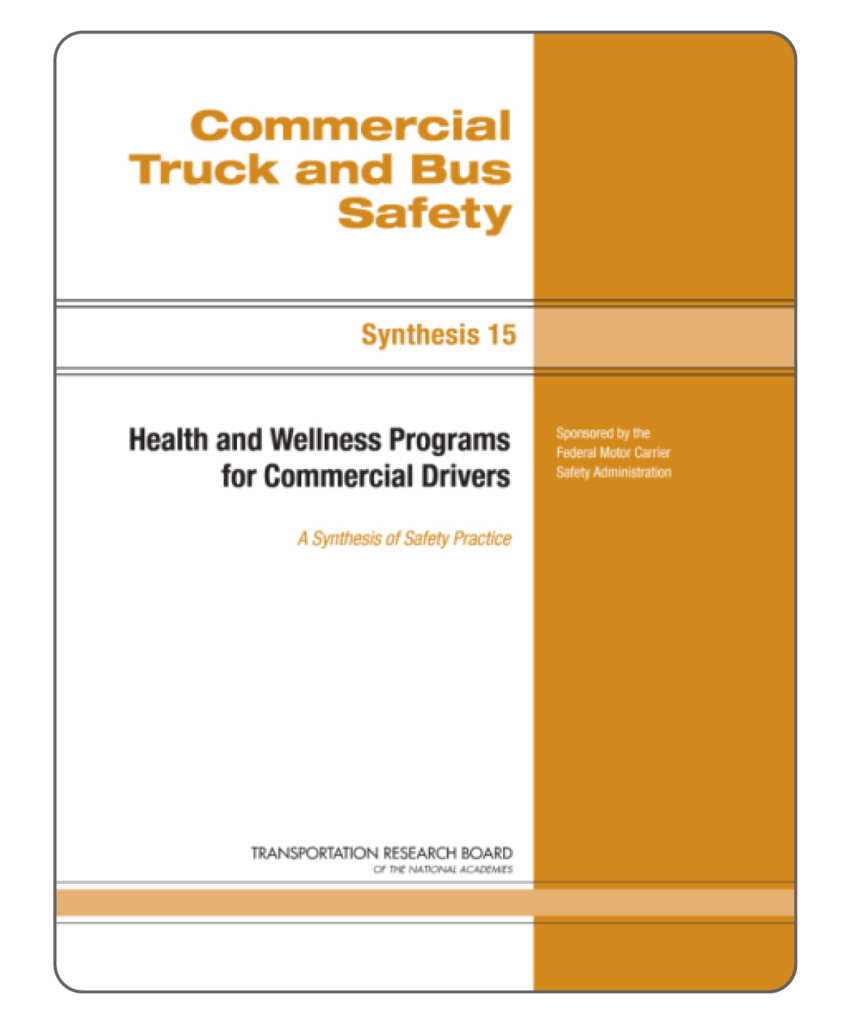
Health and Wellness Programs for Commercial Drivers
Commercial Truck and Bus Safety Synthesis Program
January 2007
TOPICS: Safety and Health
TRB’s Commercial Truck and Bus Safety Synthesis Program (CTBSSP) Synthesis 15: Health and Wellness Programs for Commercial Drivers explores health risks facing commercial truck and motorcoach drivers. The report examines the association between crash causation and functional impairments, elements of employee health and wellness programs that could be applied to commercial drivers, and existing trucking and motor coach employee health and wellness programs. In addition, the report includes several case studies on employee health and wellness programs in the truck and motorbus industries, focusing on the elements that appear to work effectively.
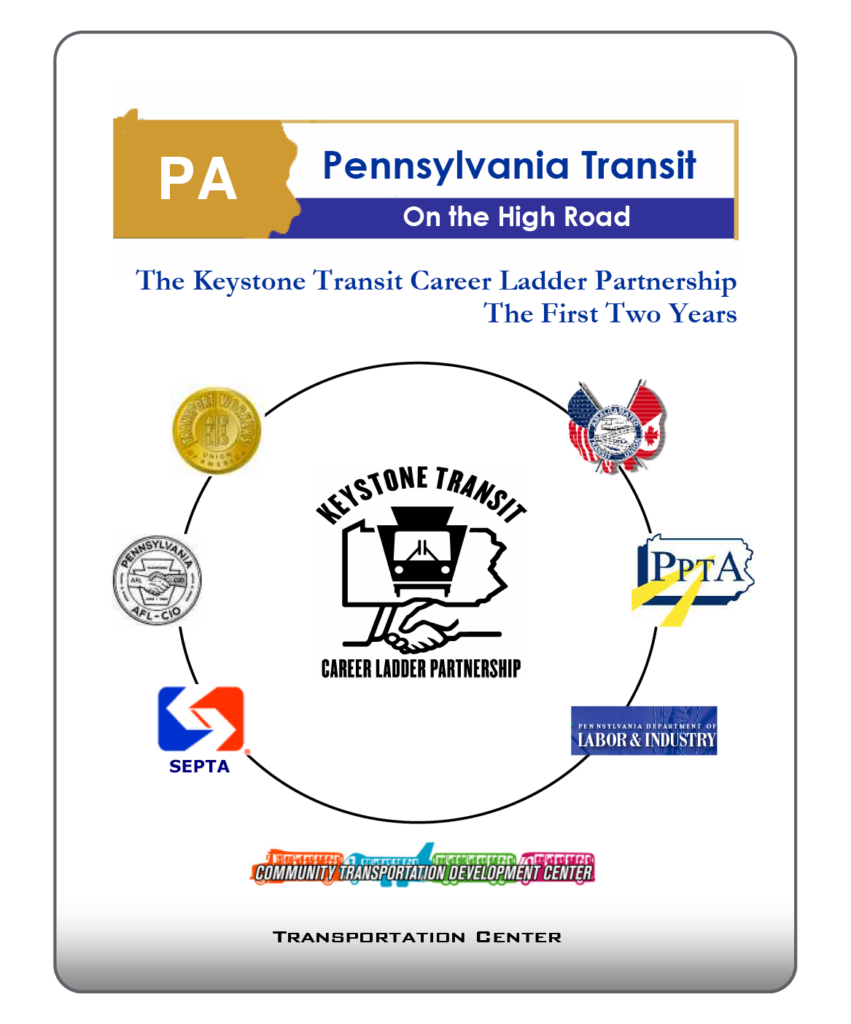
Pennsylvania Transit on the High Road
This report is part of a larger case study that chronicles the development of the Keystone Transit Career Ladder Partnership, including the process of job task/work task analysis, skills gap analysis, and data-driven training development.
International Transportation Learning Center
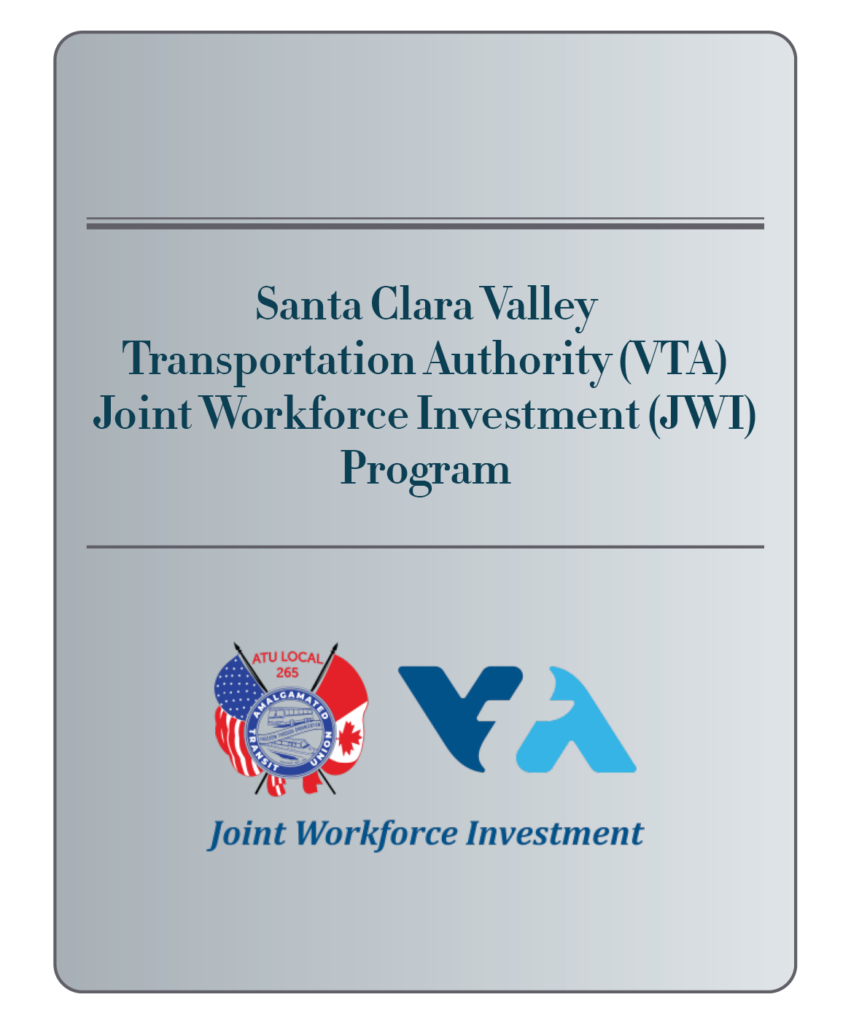
Santa Clara Valley Transportation Authority (VTA) Joint Workforce Investment Program
This case study examines the Joint Workforce Investment (JWI), established in 2006, which is a joint labor management partnership between the Santa Clara Valley Transportation Authority (VTA) and the Amalgamated Transit Union Local 265 (ATU). It includes discussion of three primary programs brought together under the JWI initiative: the Maintenance Career Ladders Training Project (MCLTP), New Operator/Mentor Pilot Project, and Health and Wellness Project.
ICF International
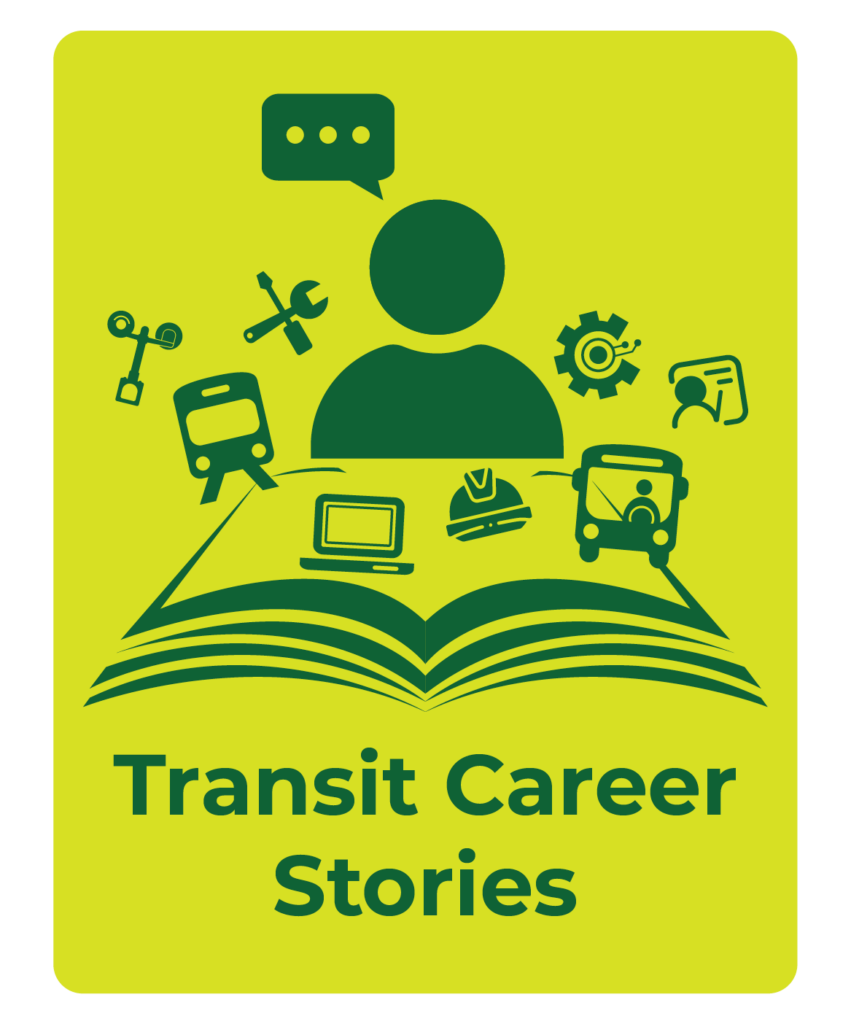
Transit Career Stories
Transit Workforce Center
TOPICS: Career Pathways , Community Engagement , Mentorship
These Transit Career Stories showcase workers’ journeys and career pathways to help increase awareness of transit careers. Learn from these professionals and community leaders through their own telling of what they do, how they got there, and what makes their work exciting and rewarding.







